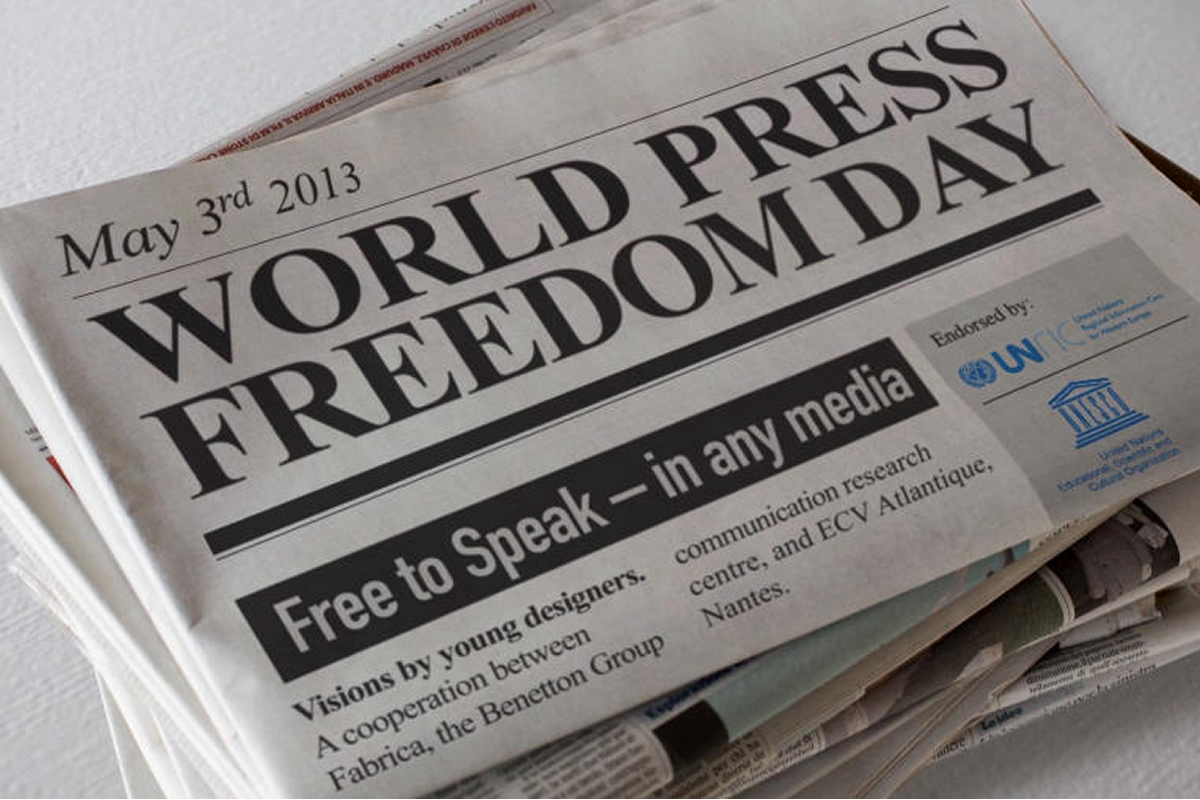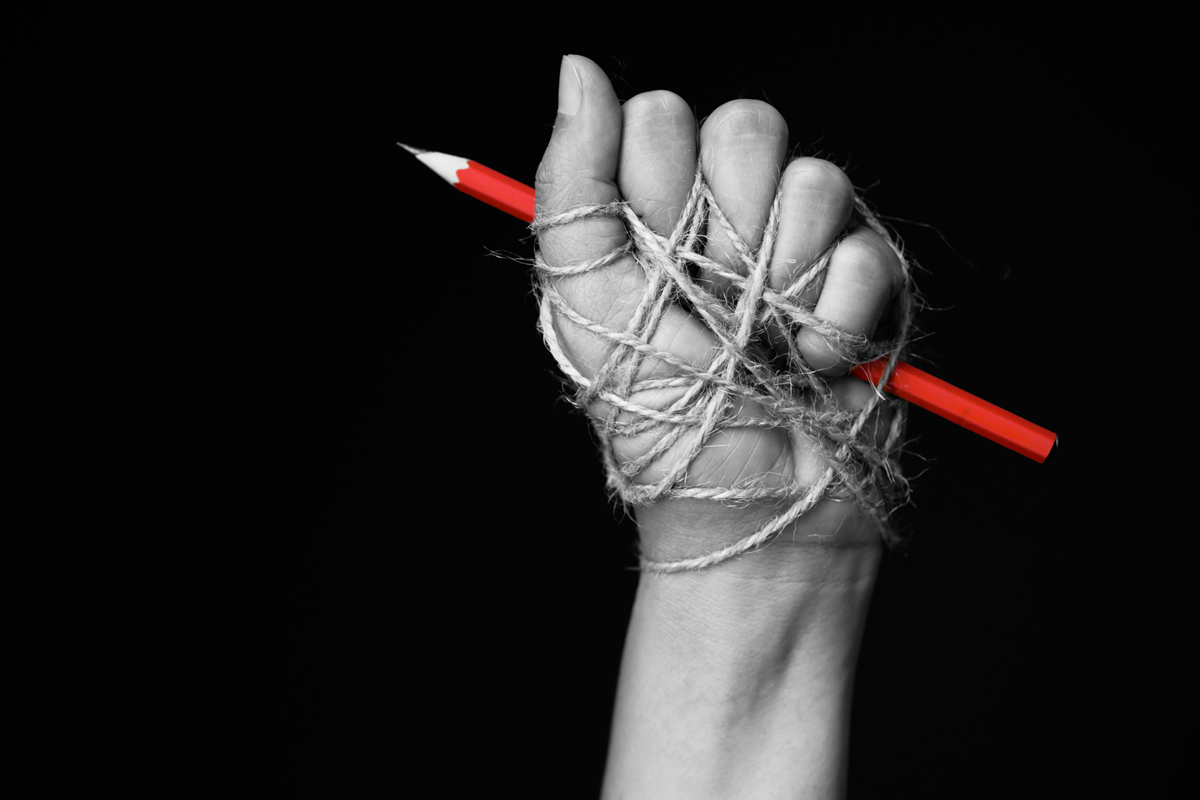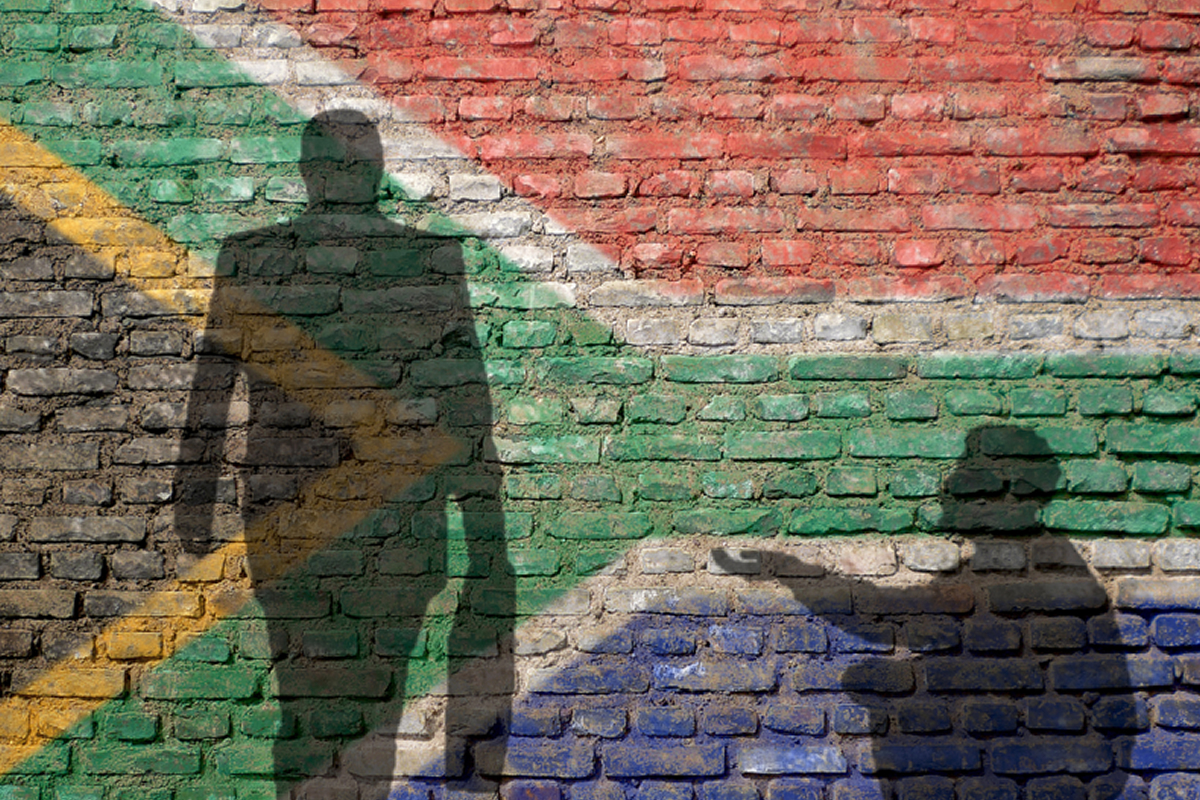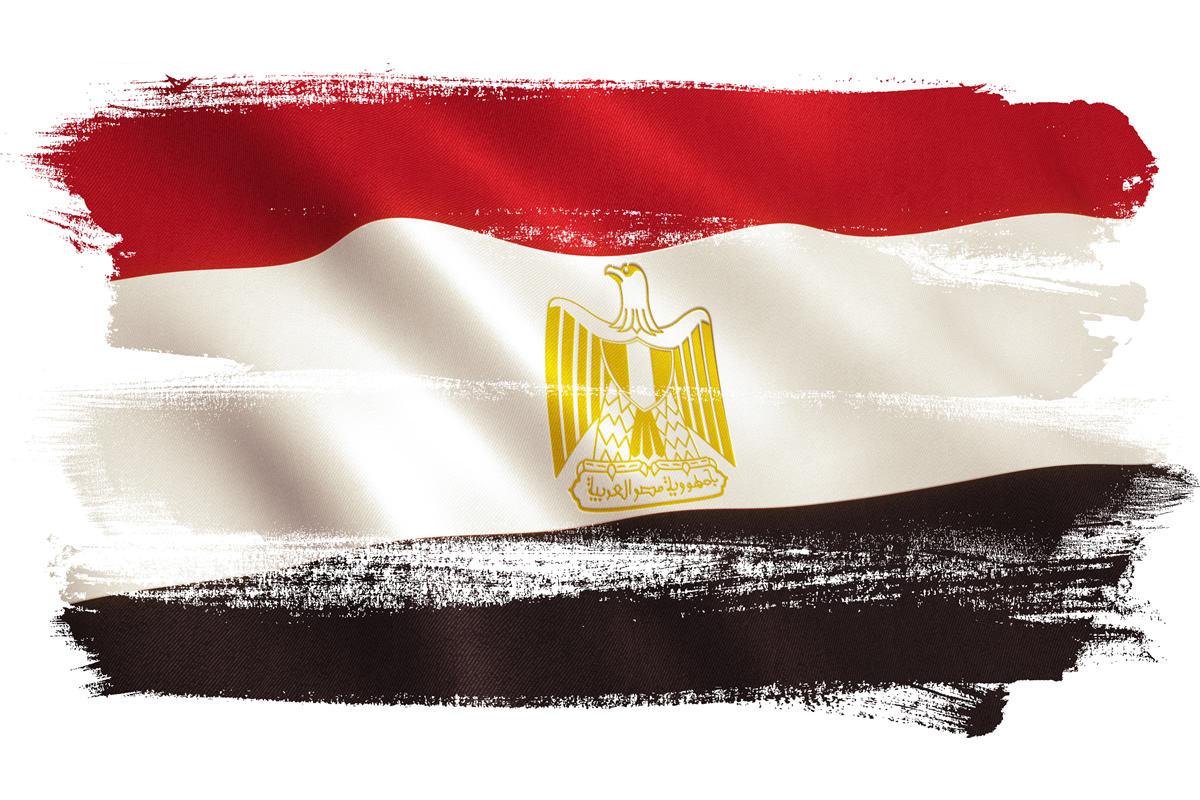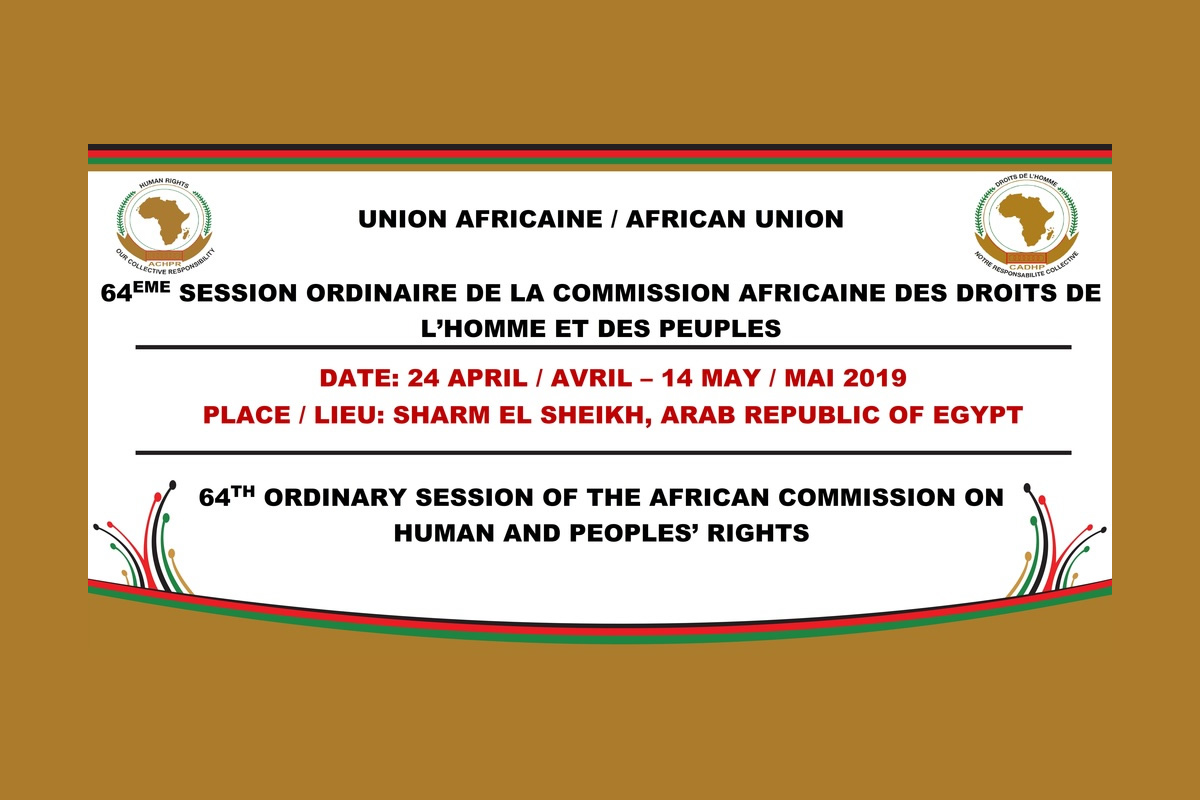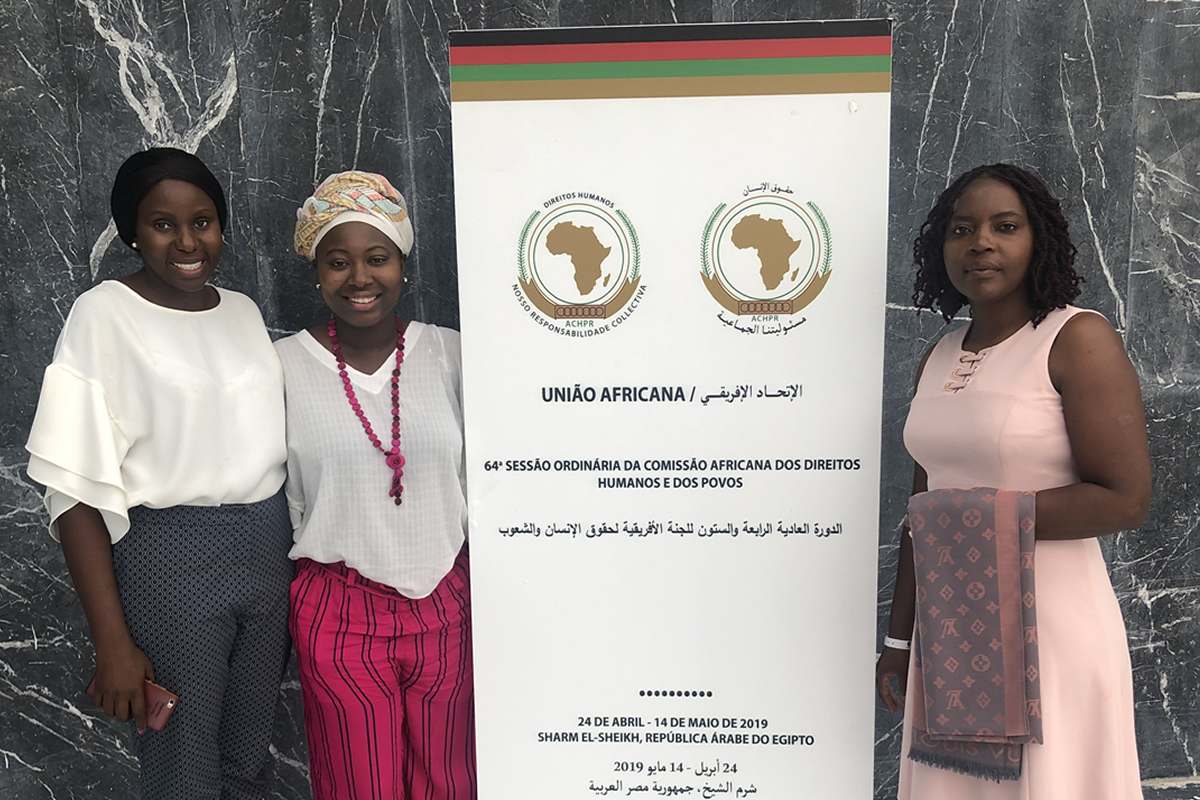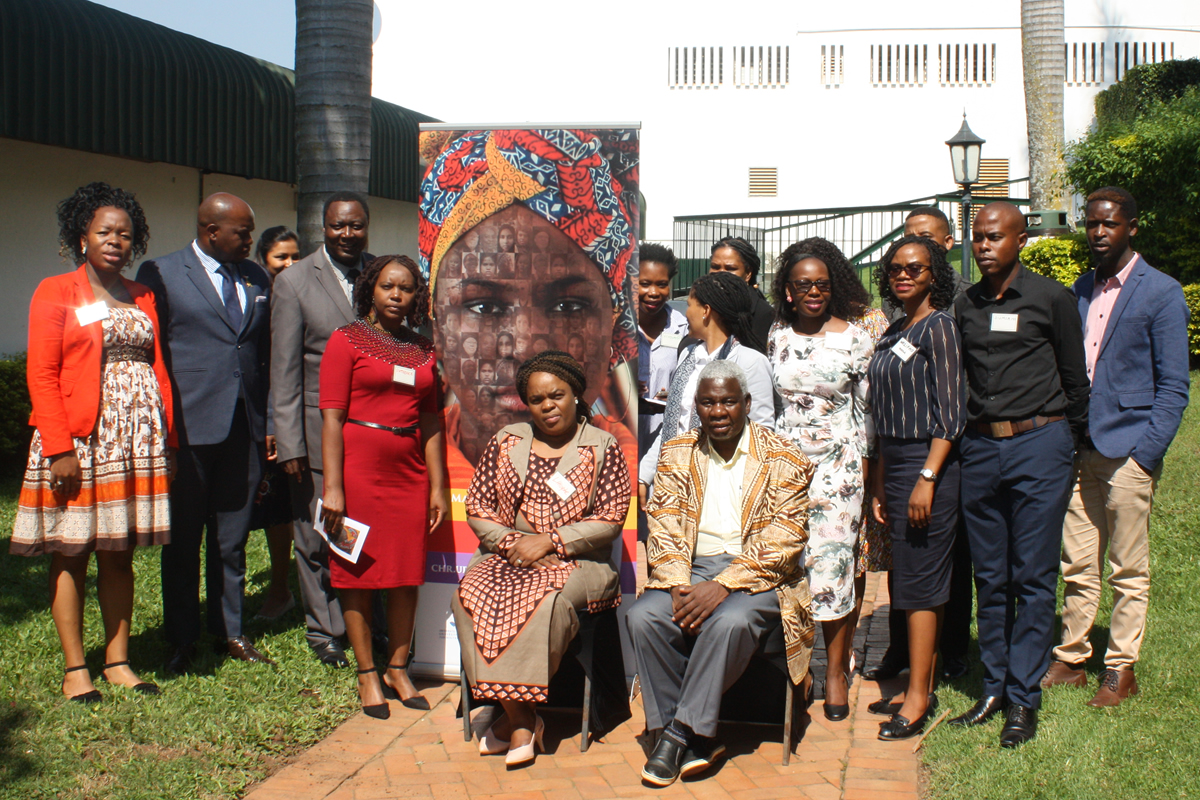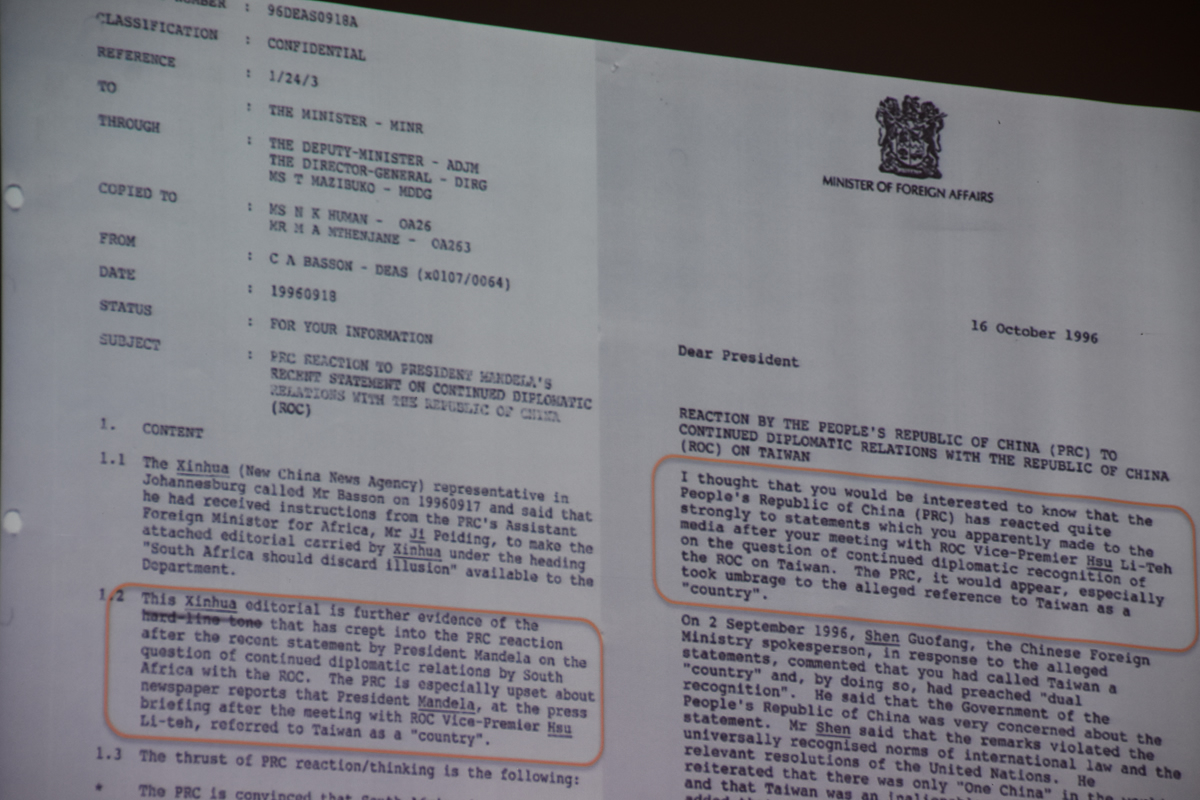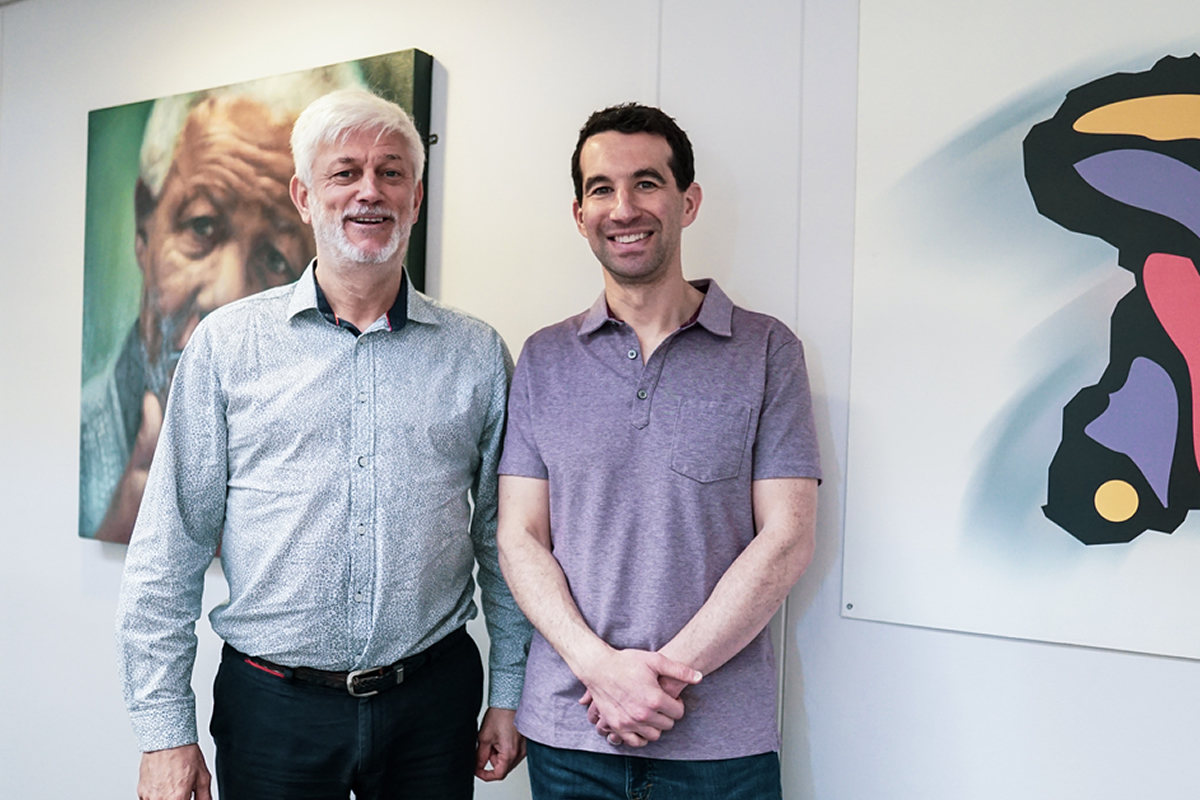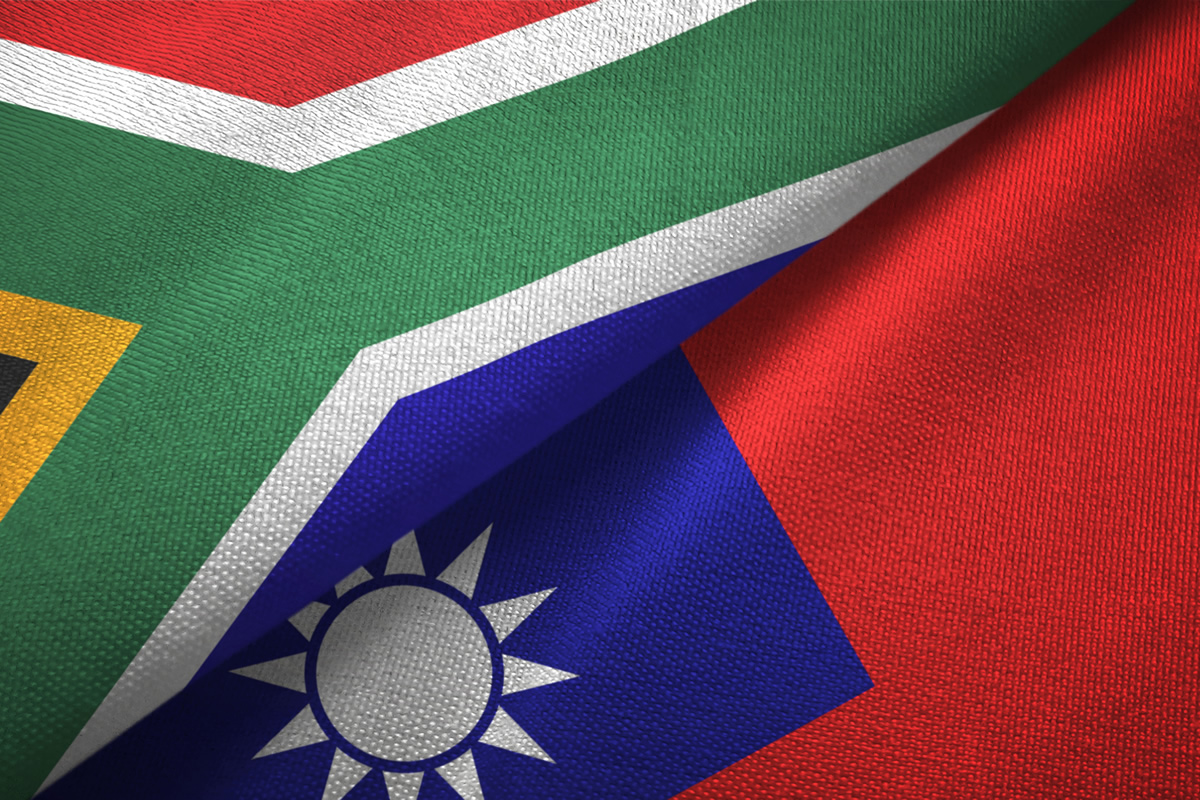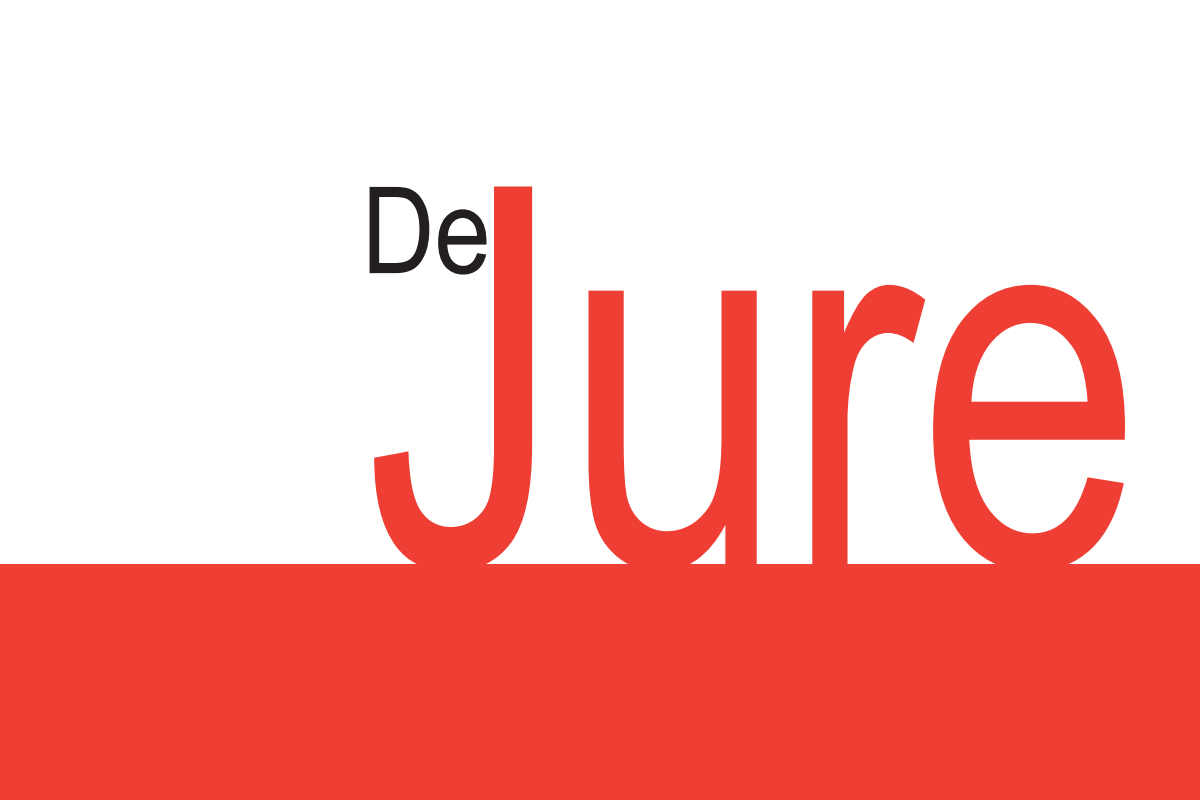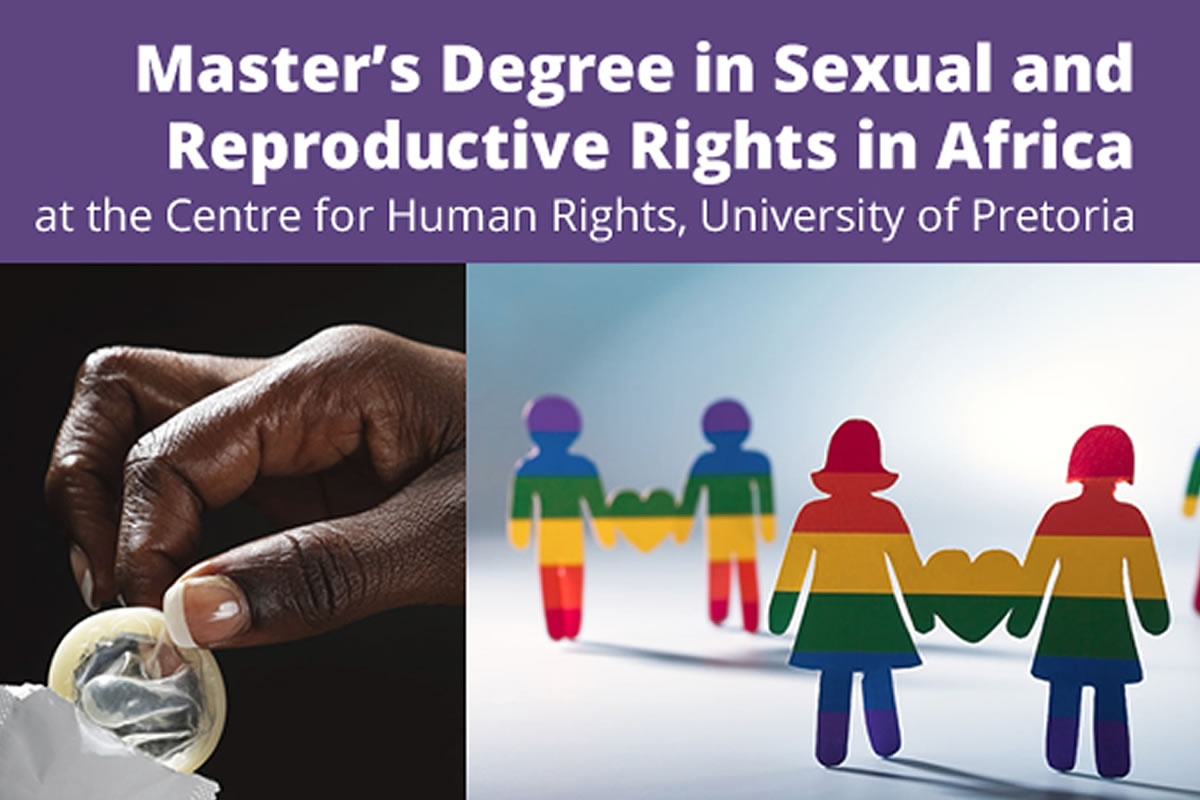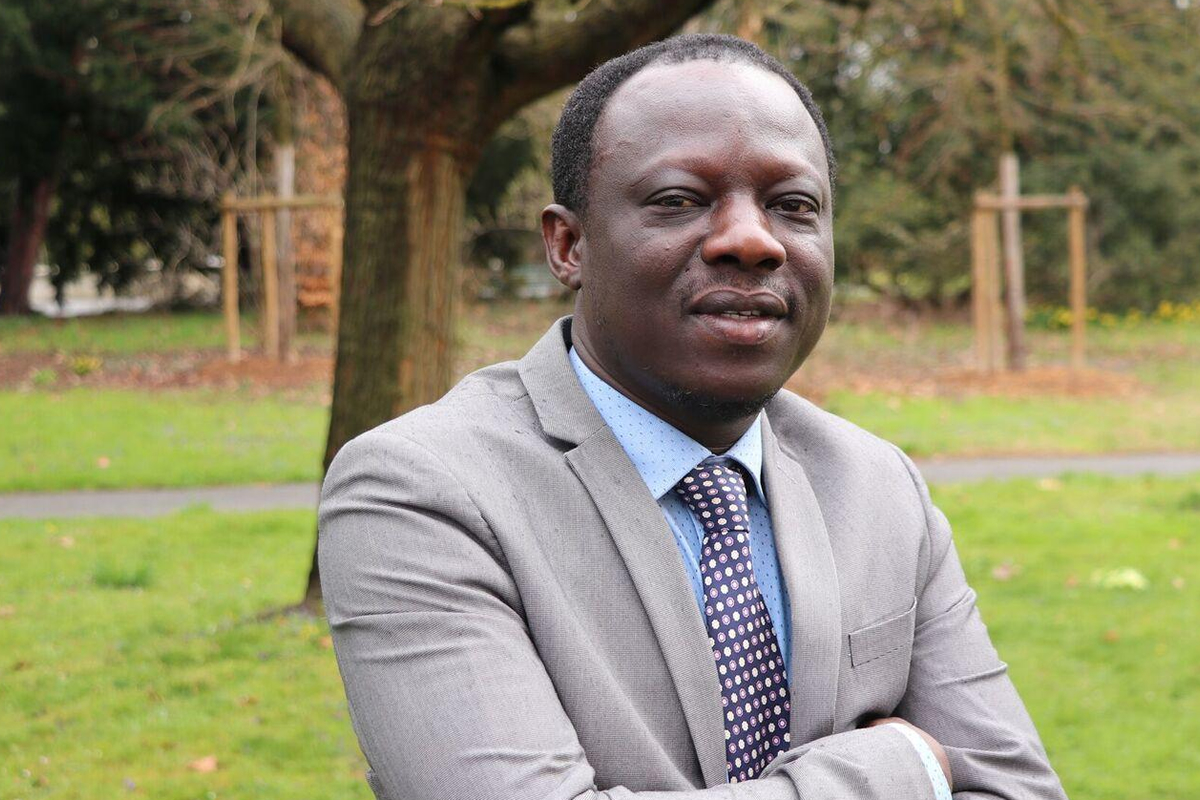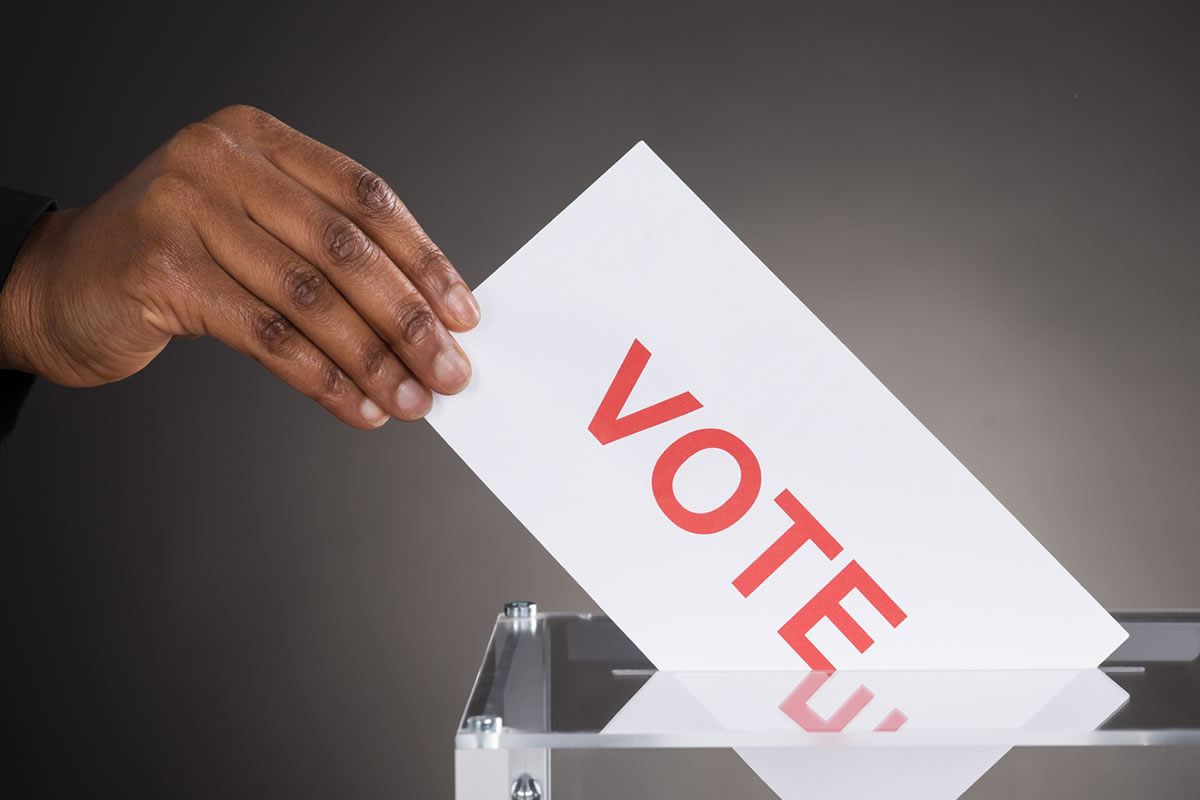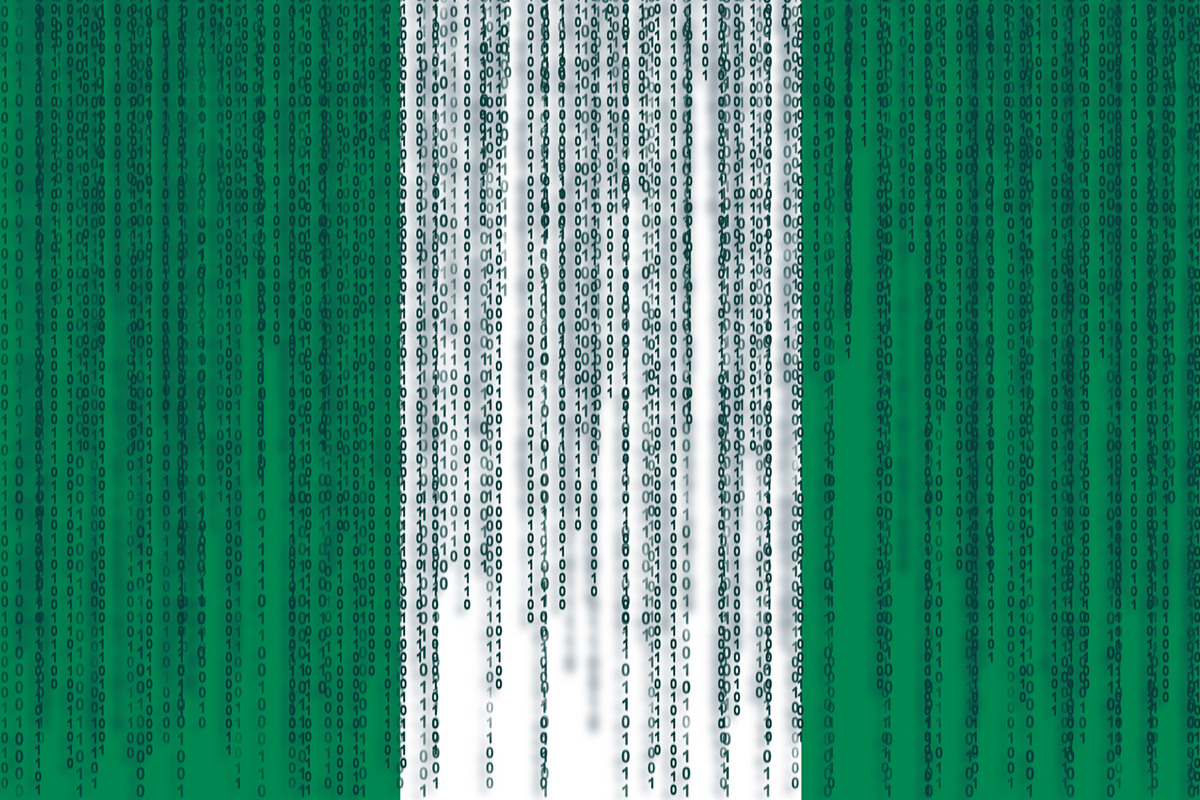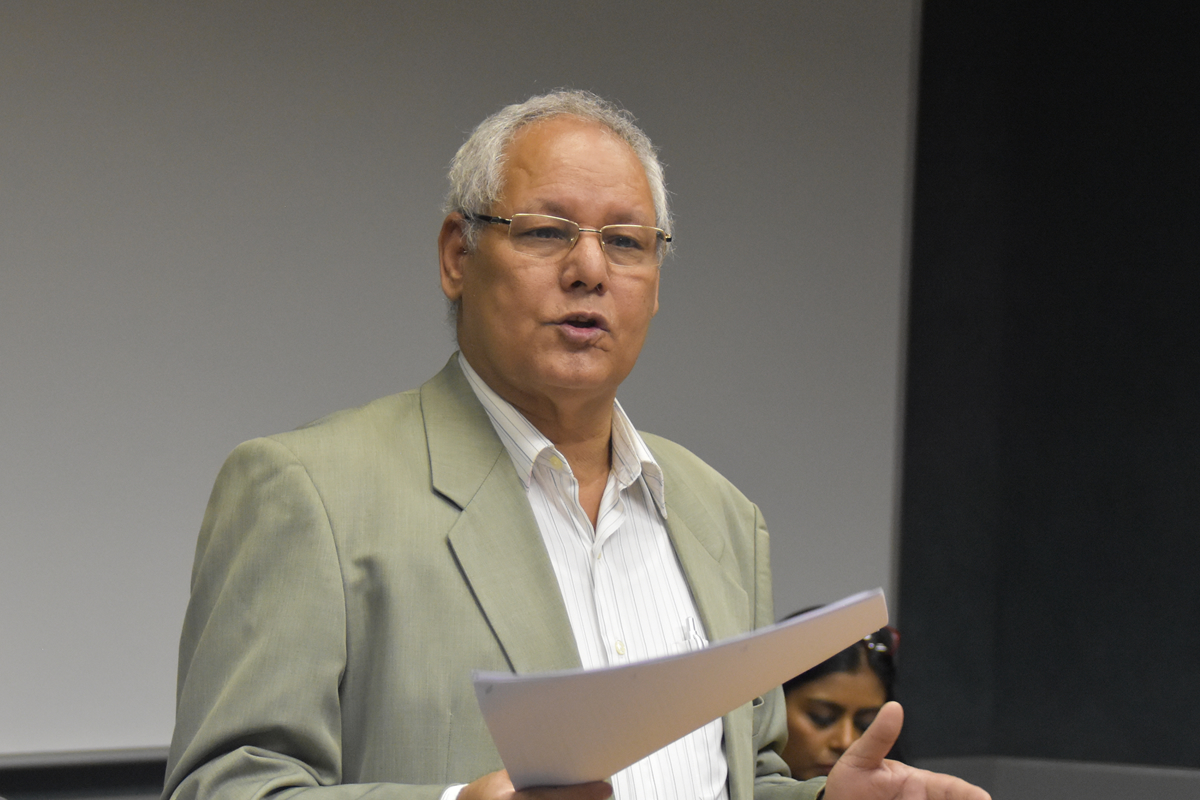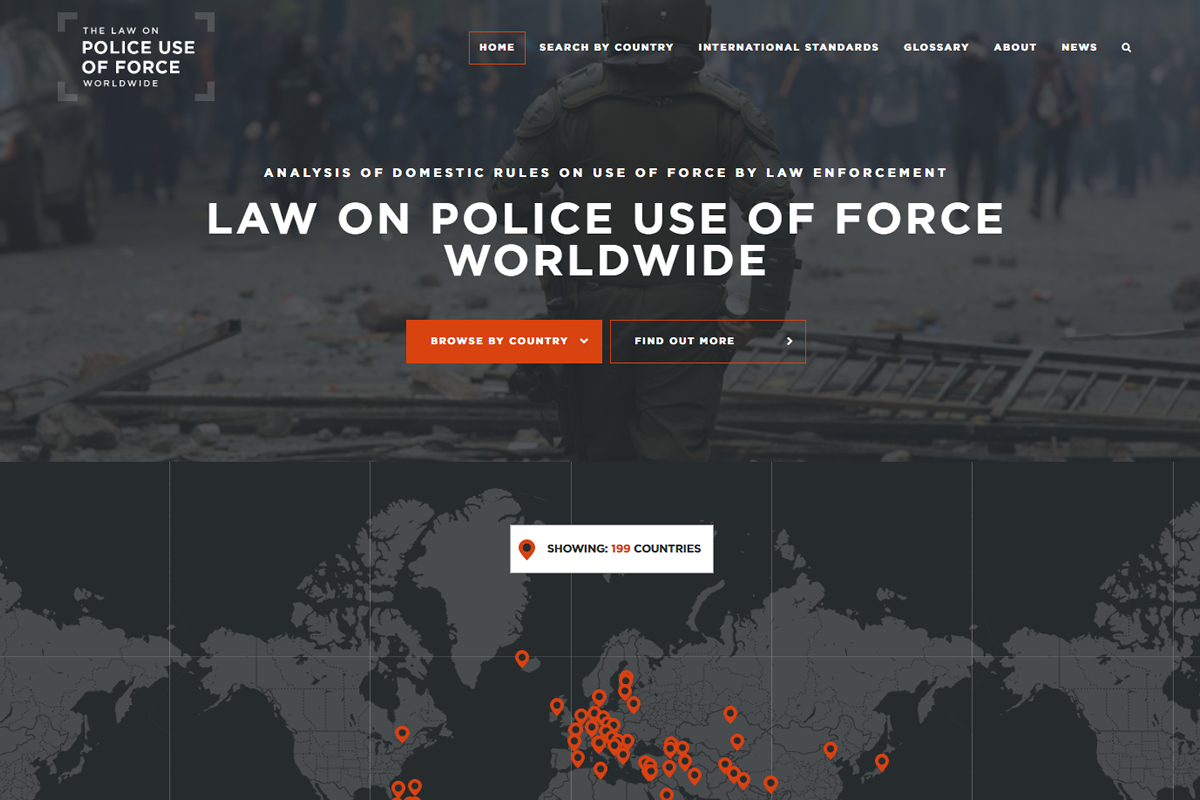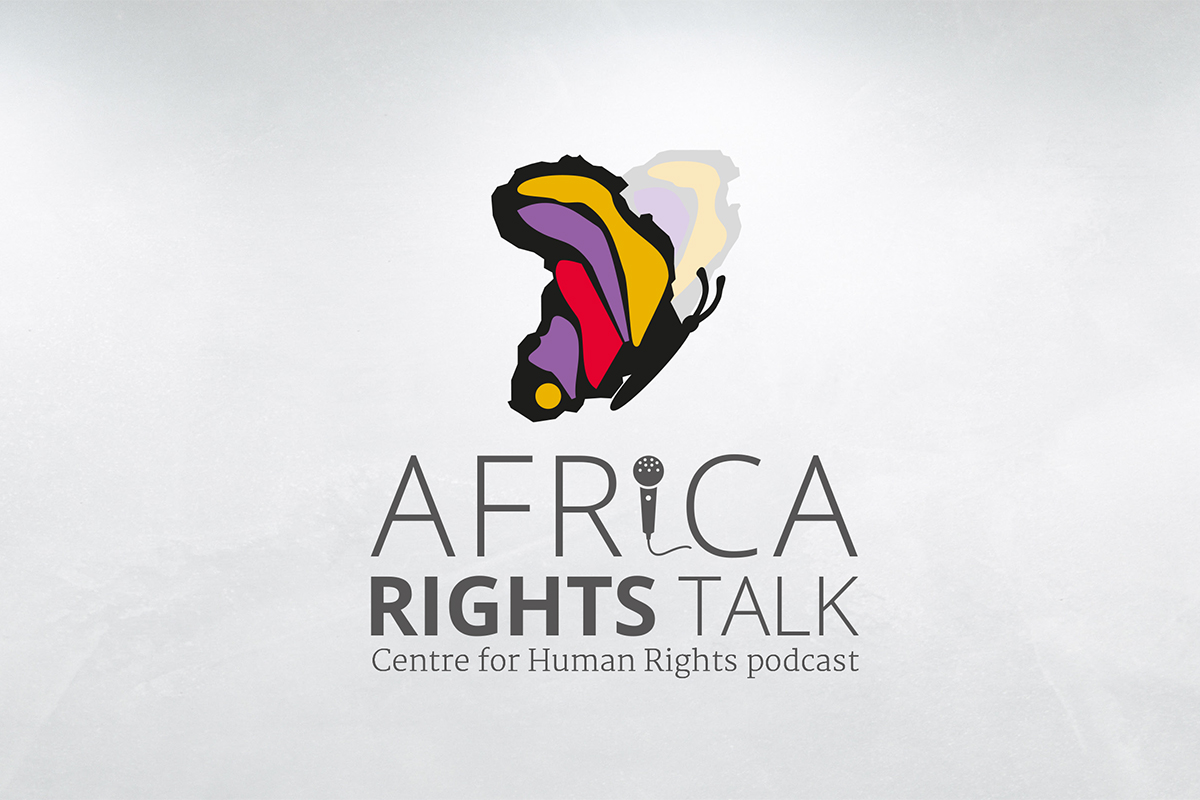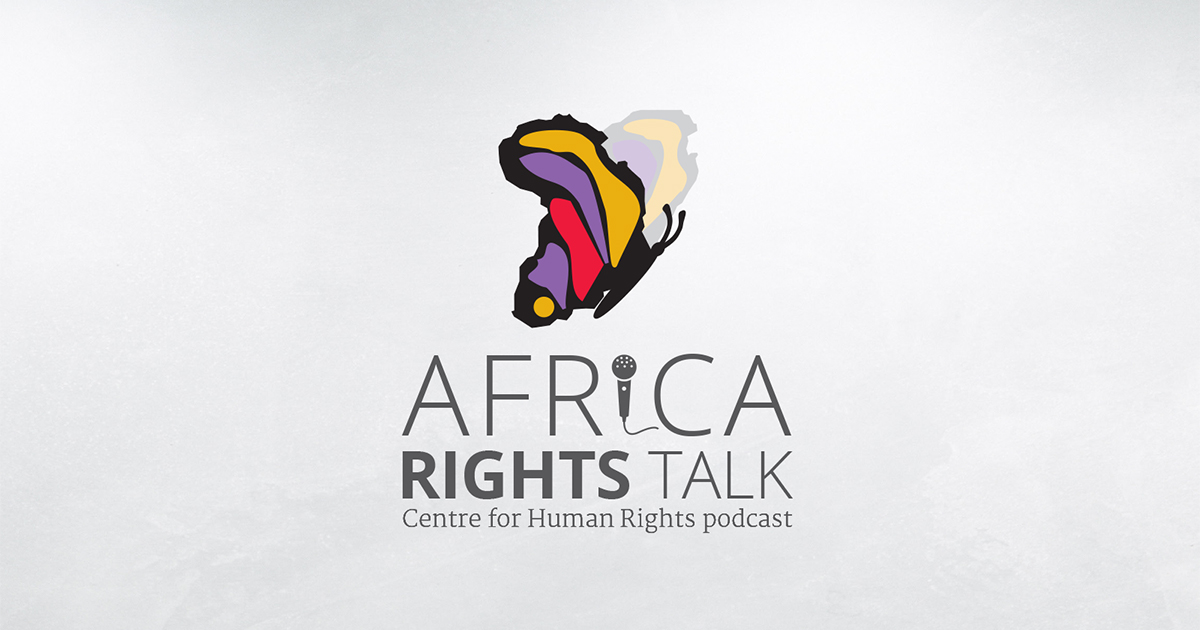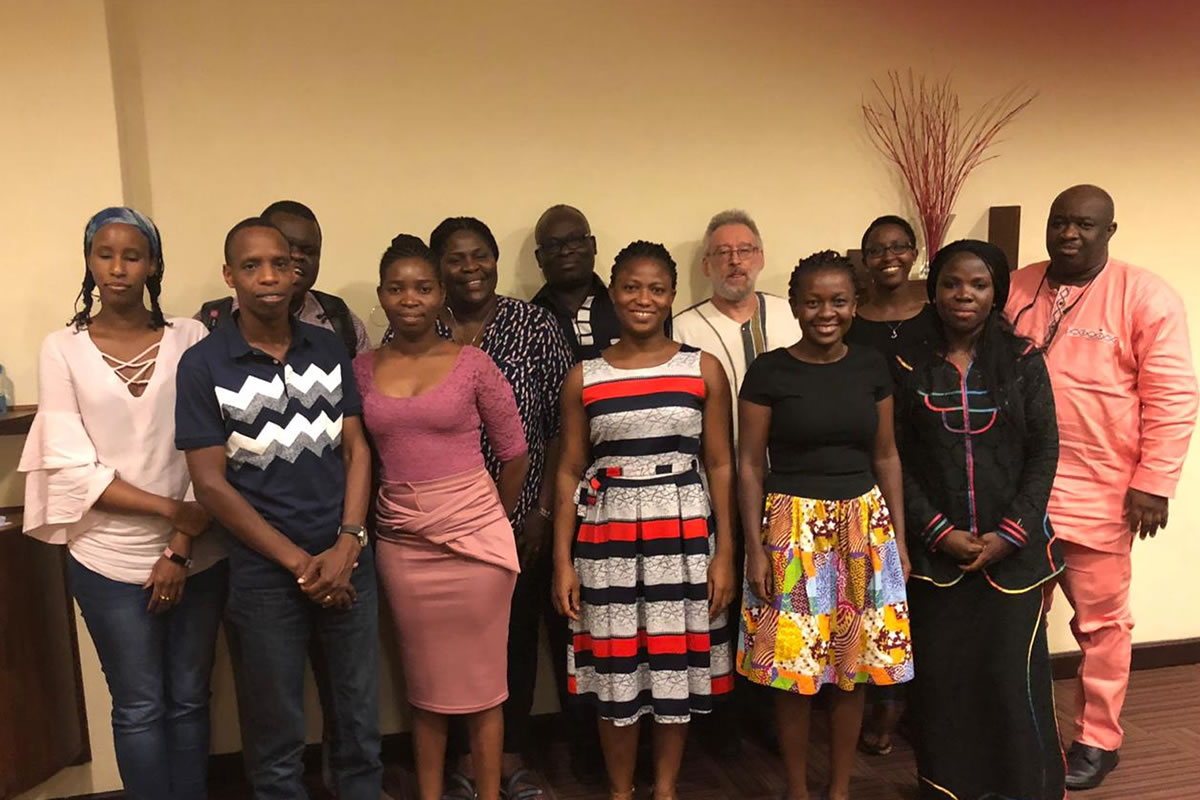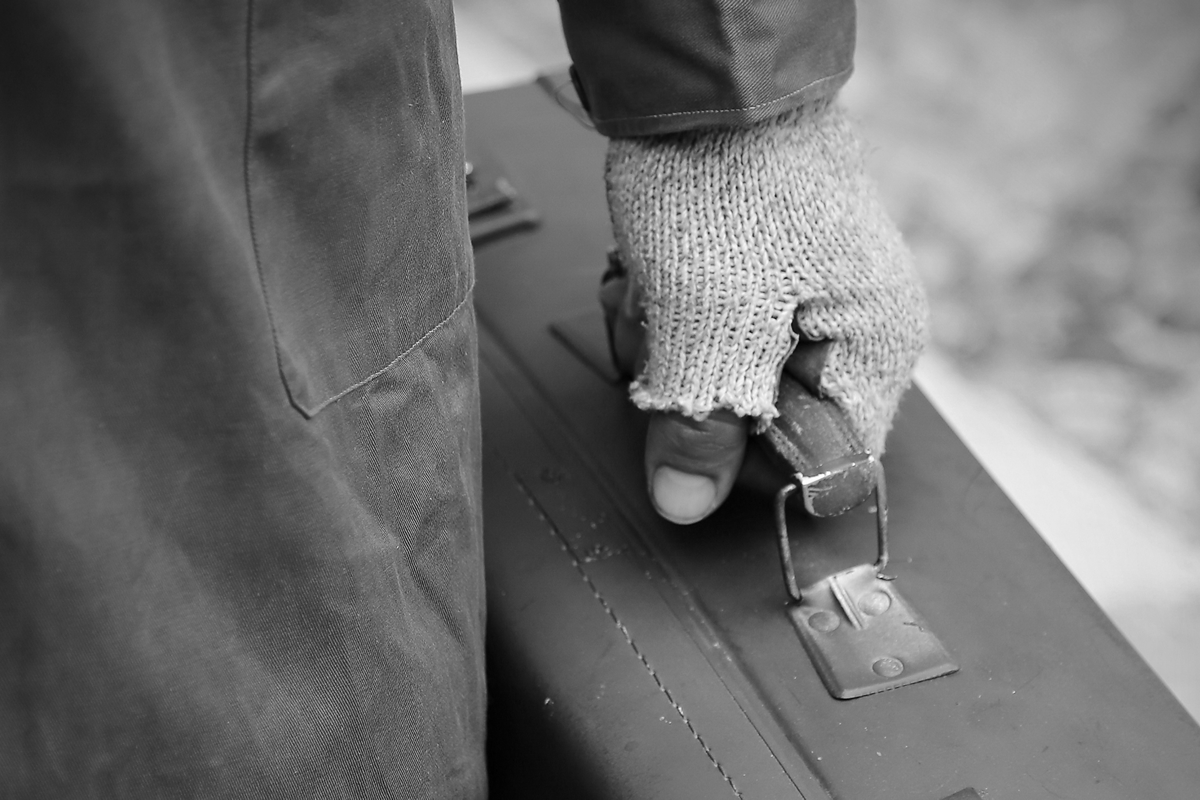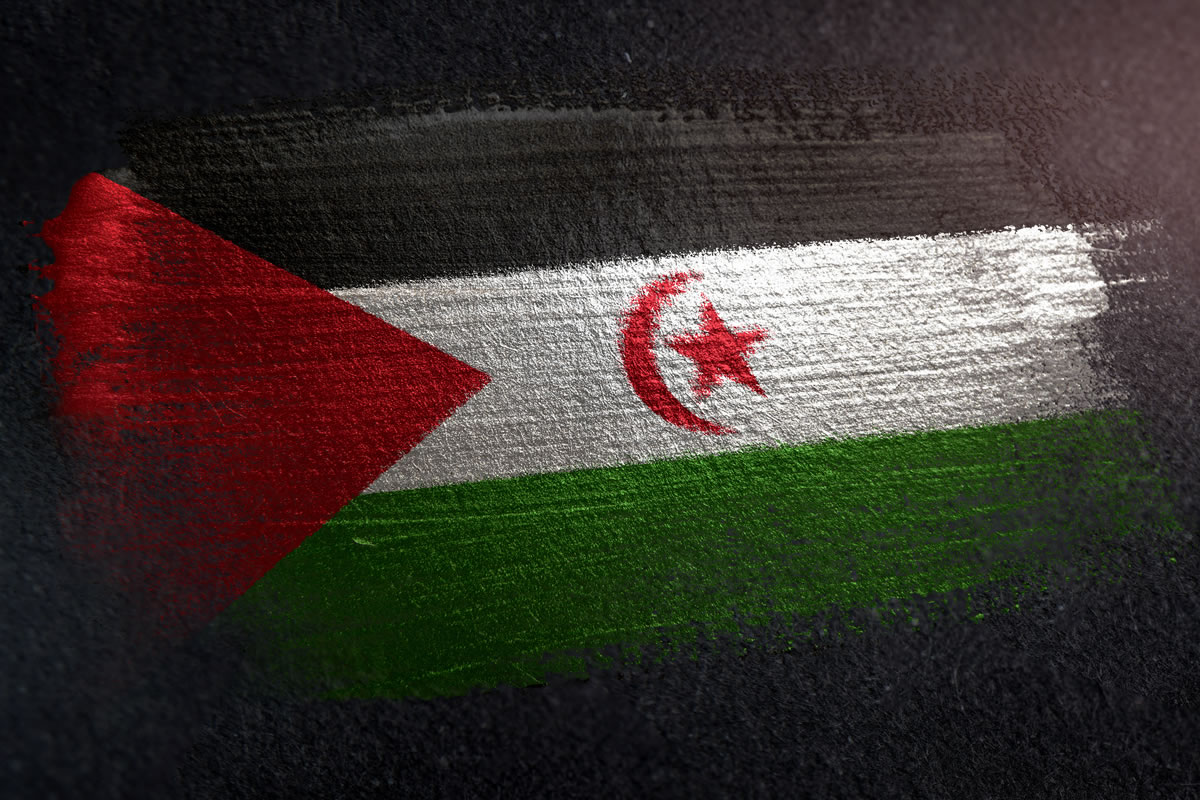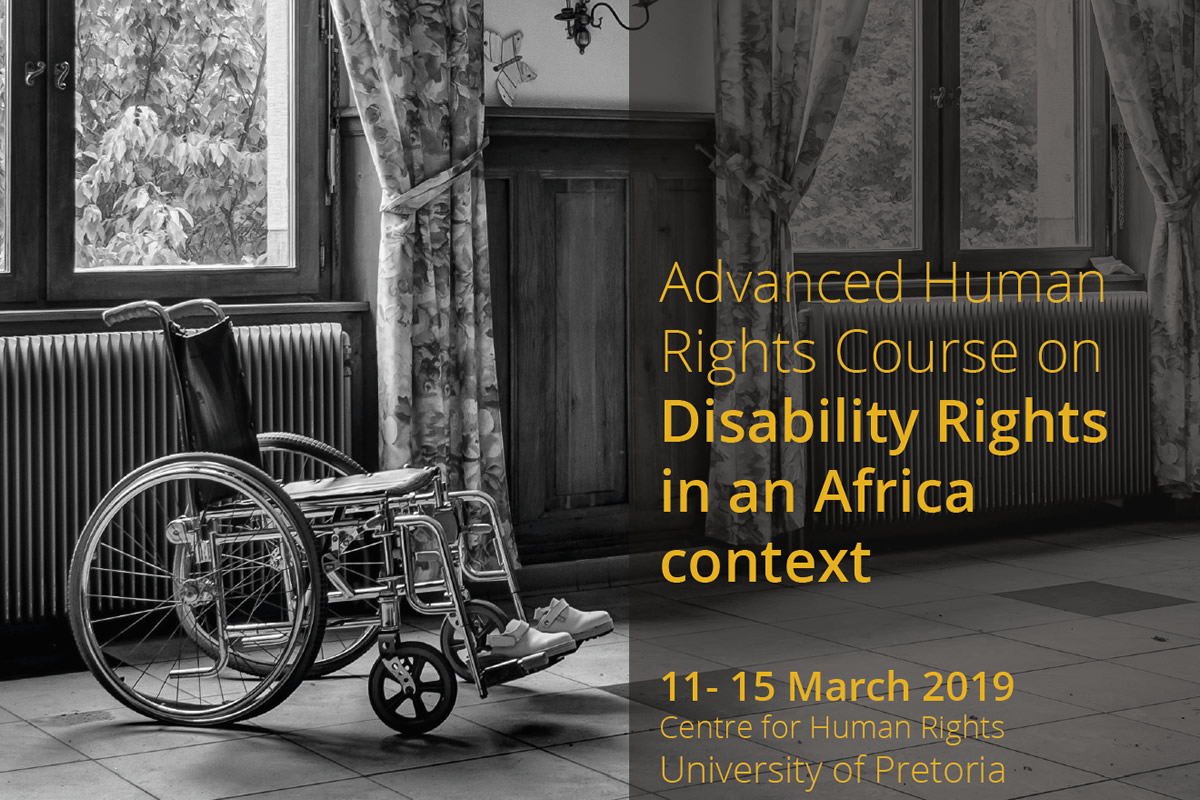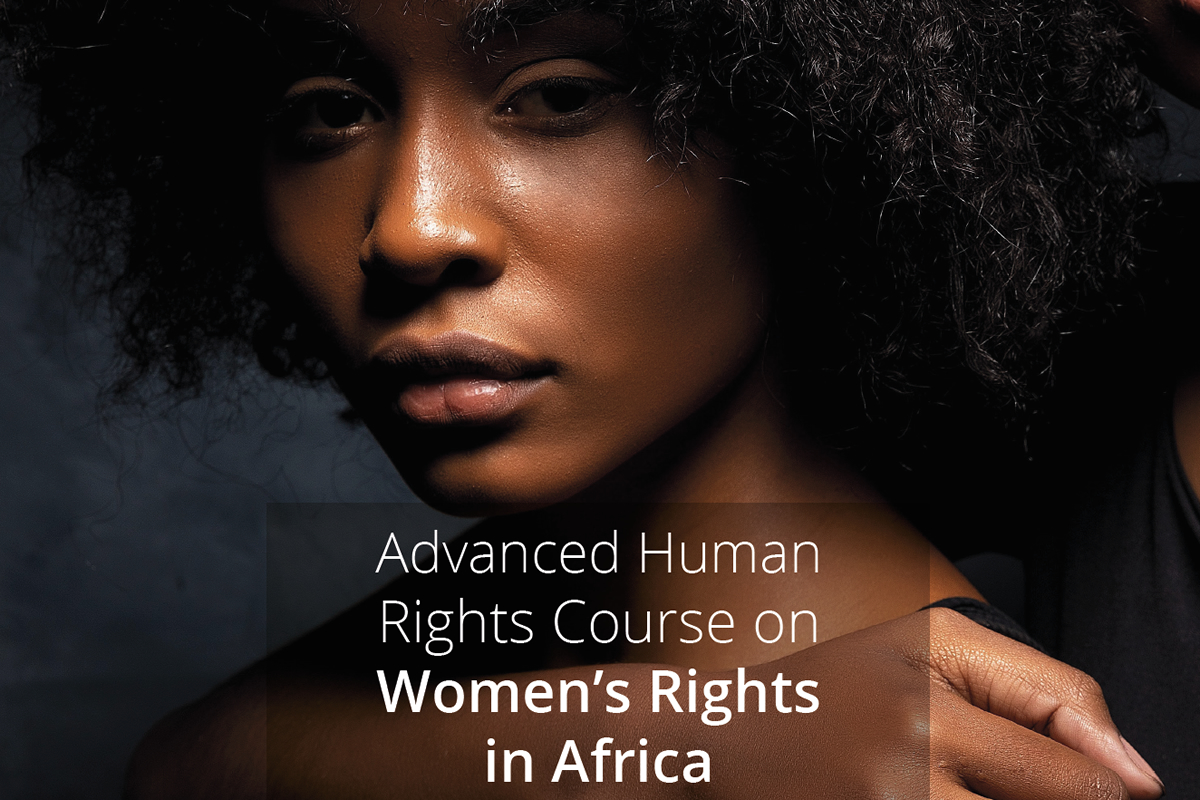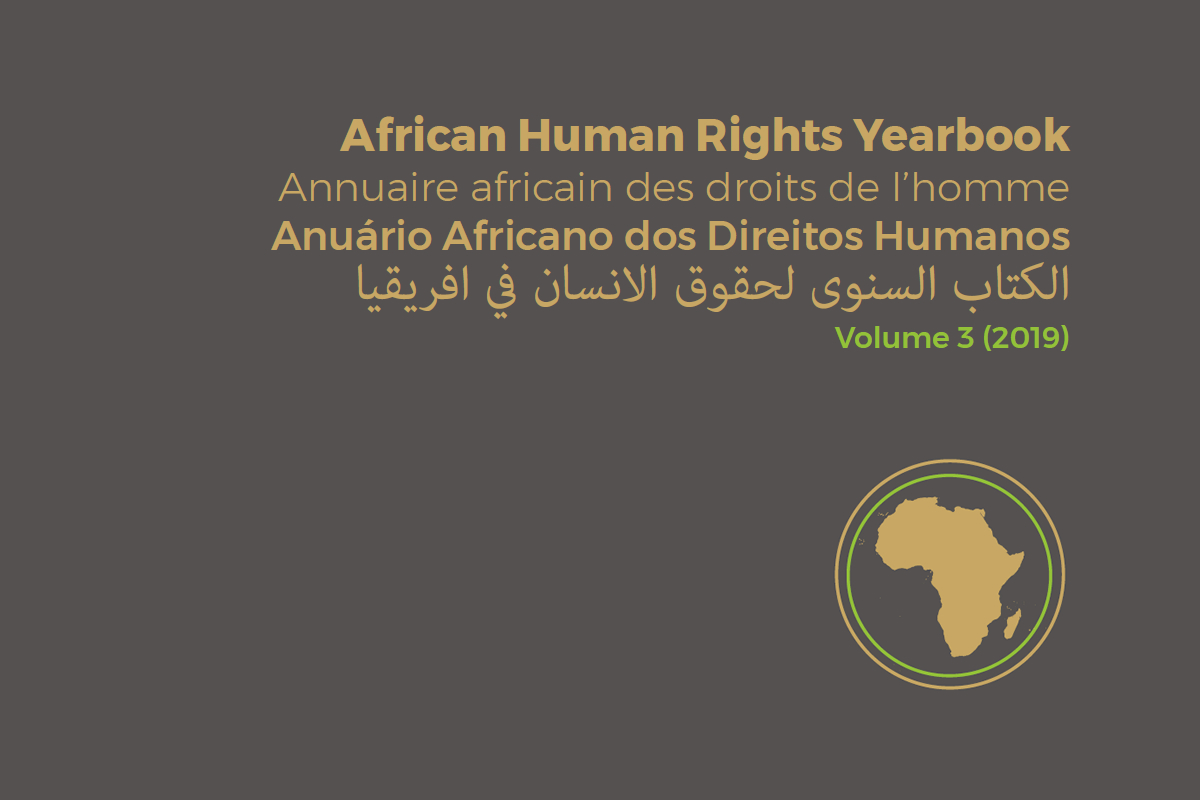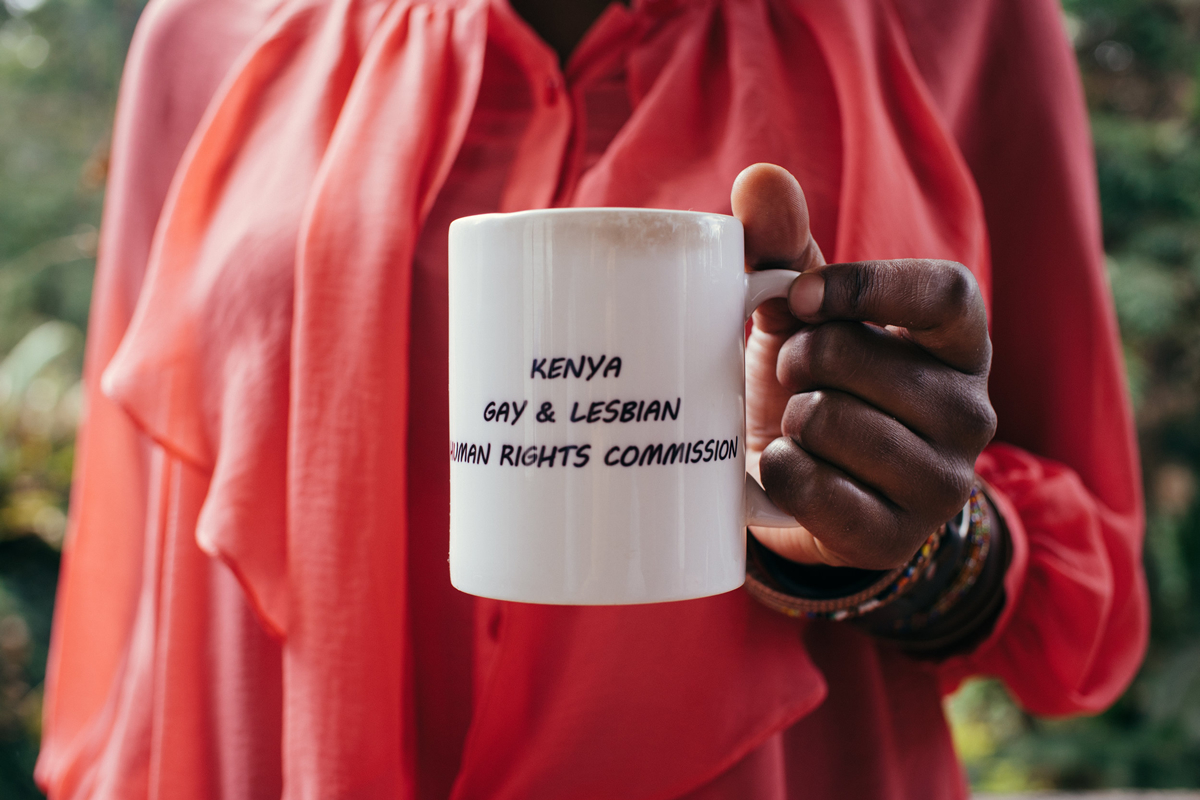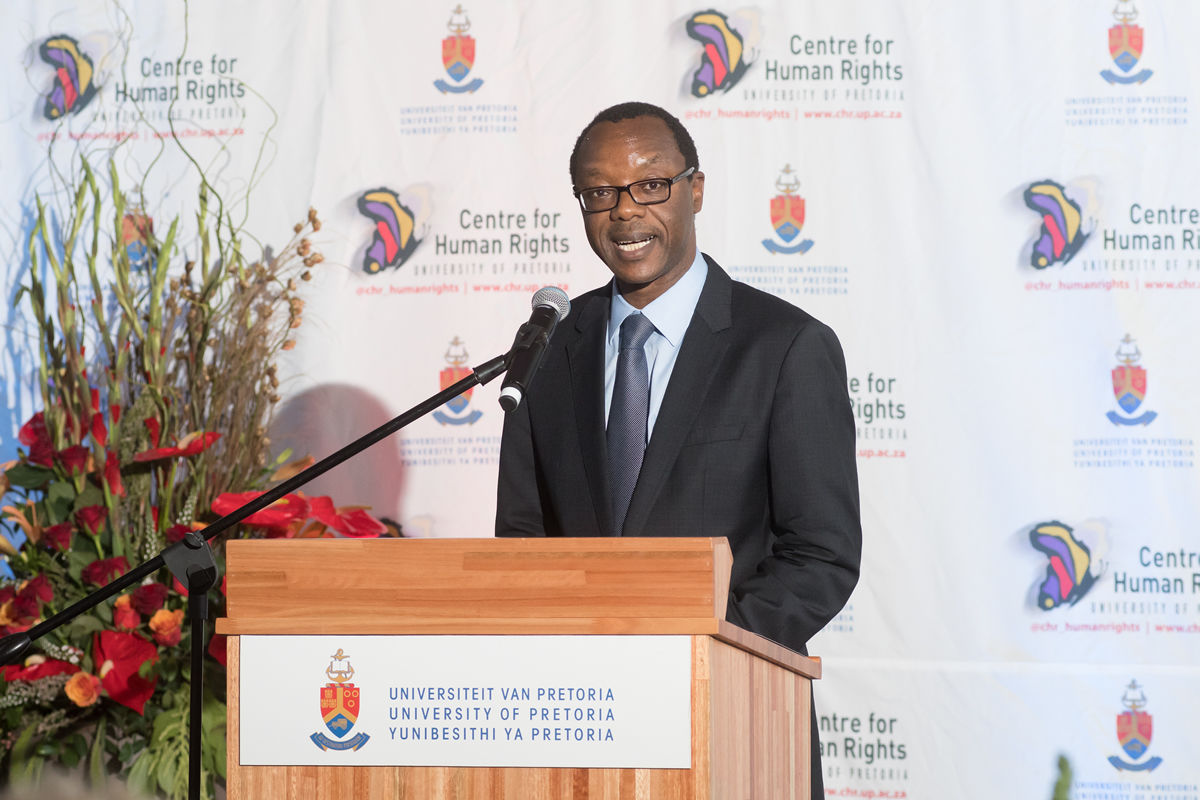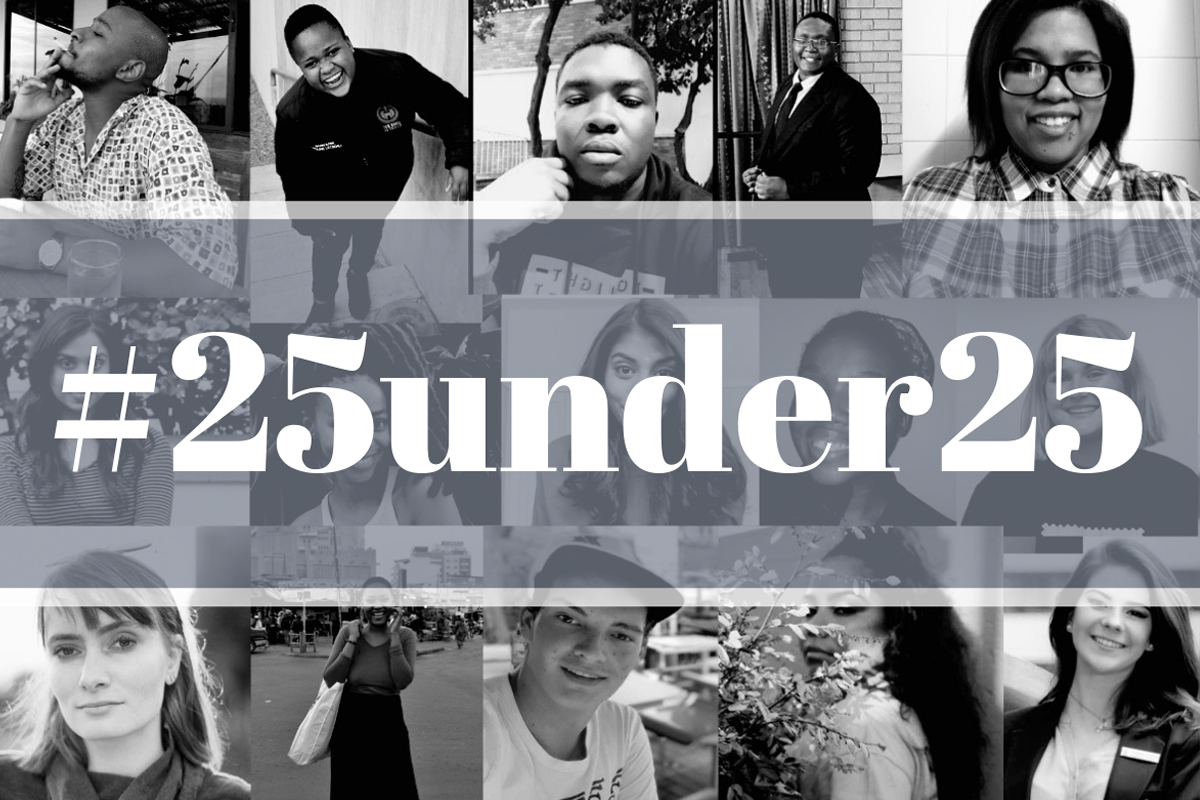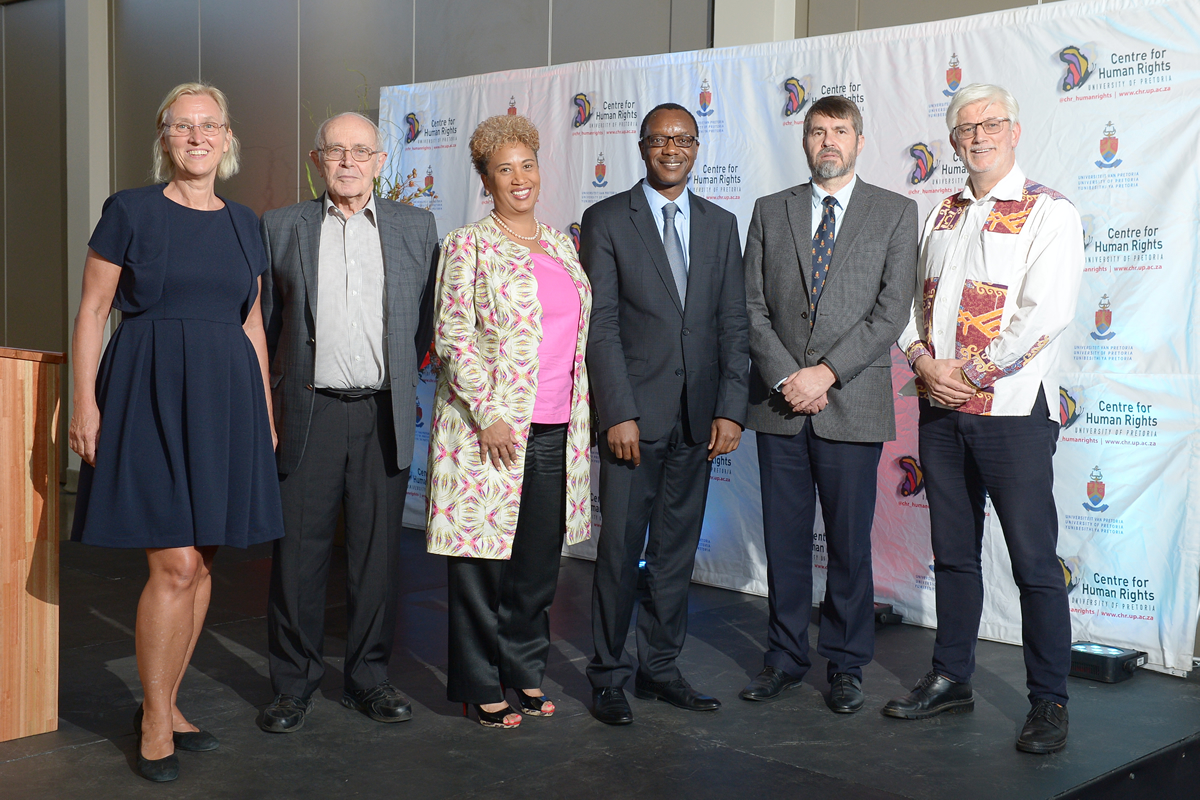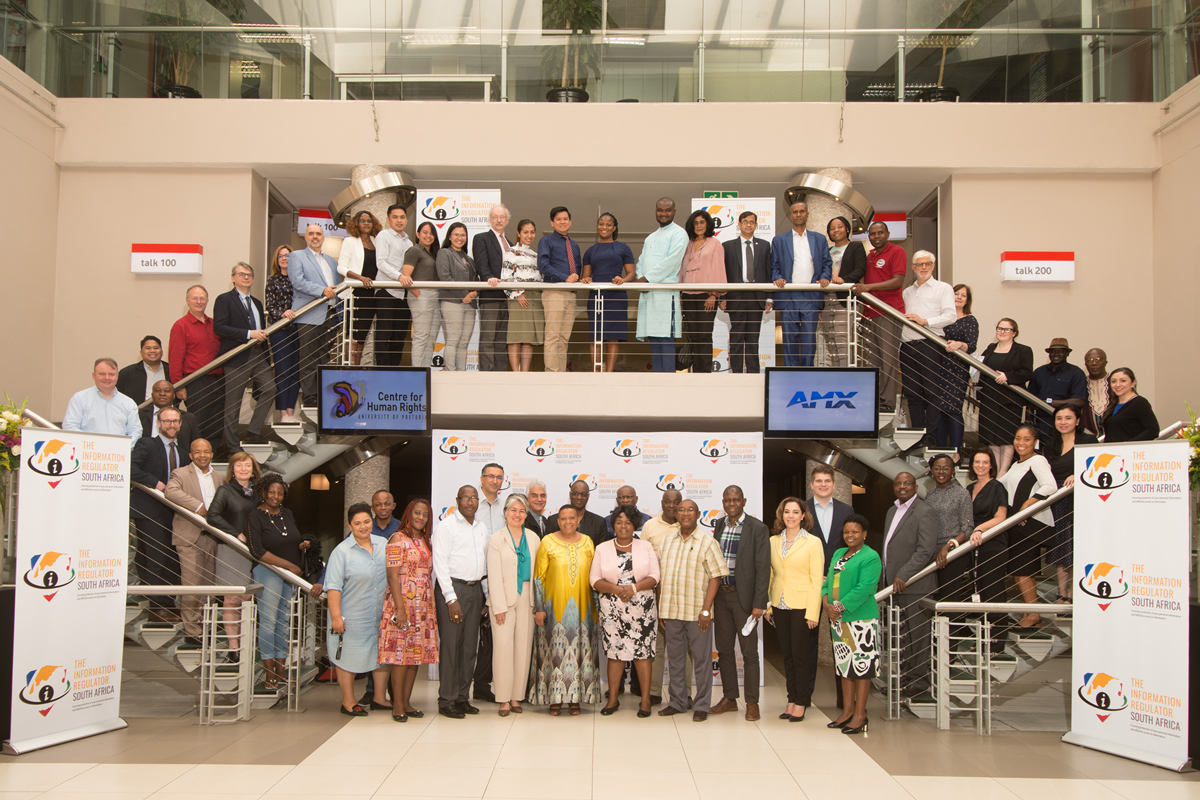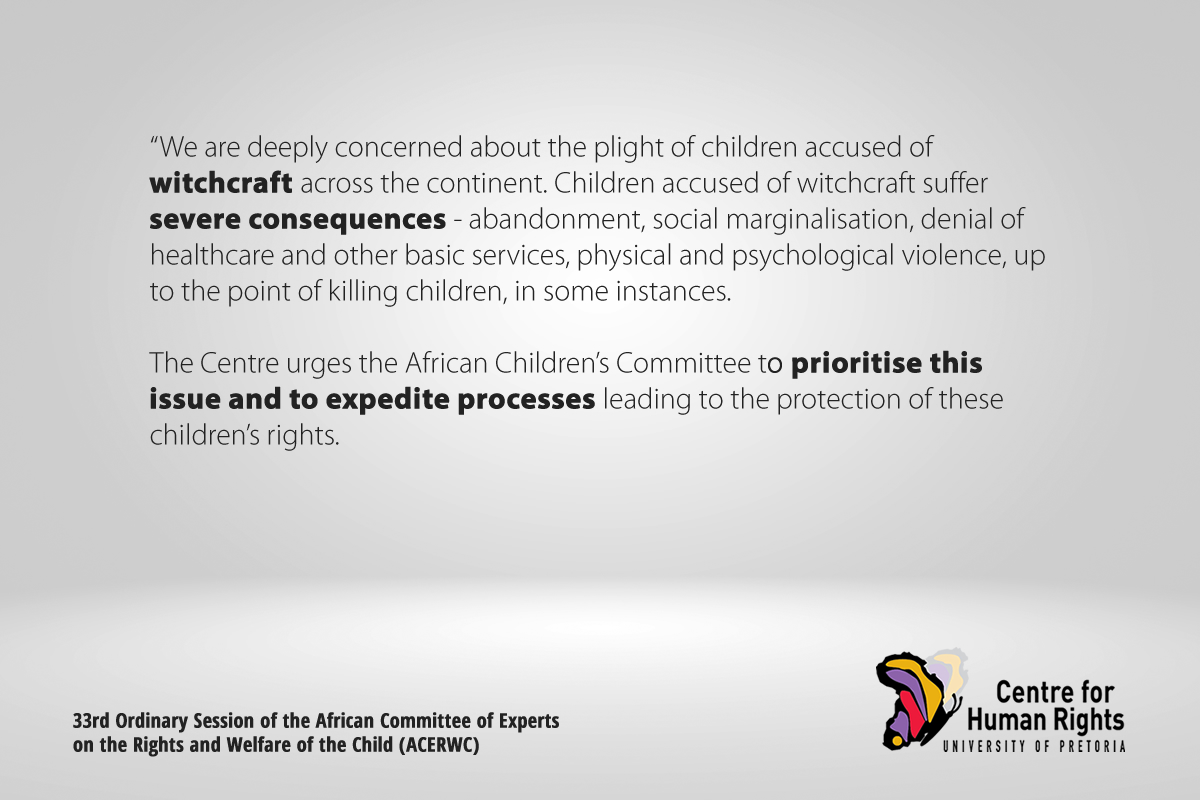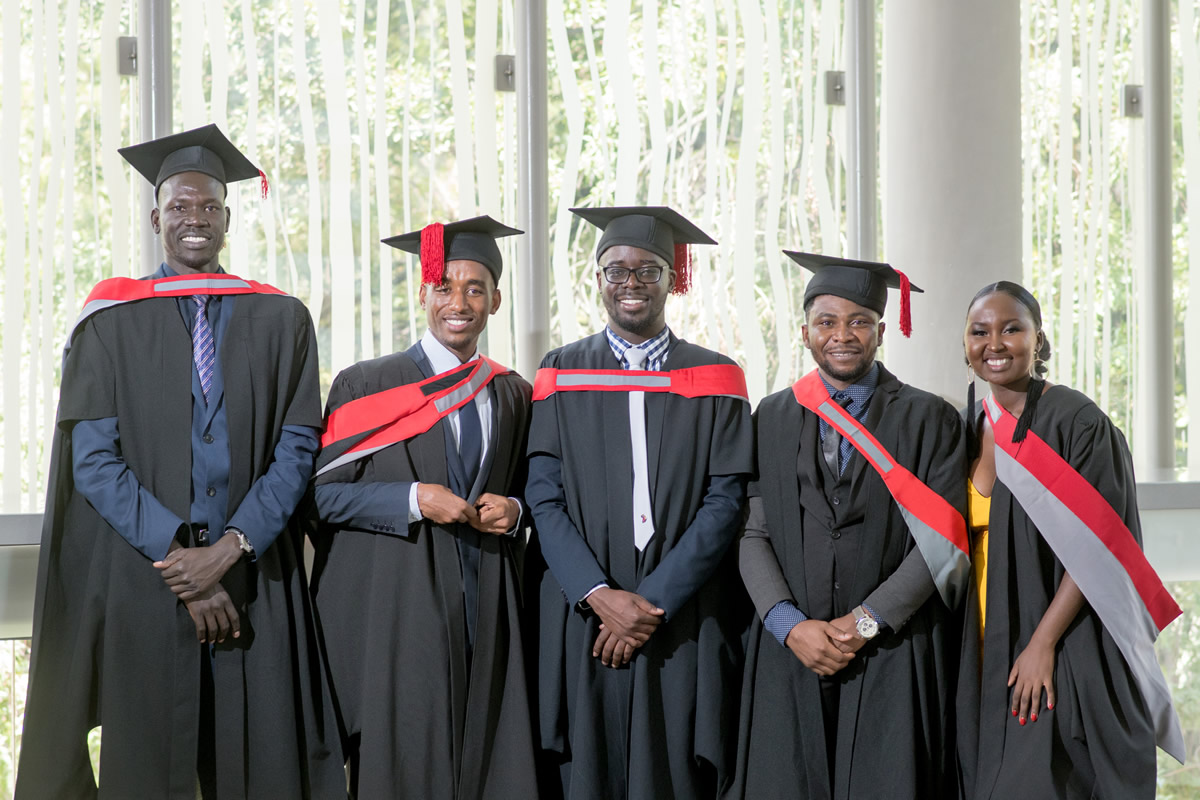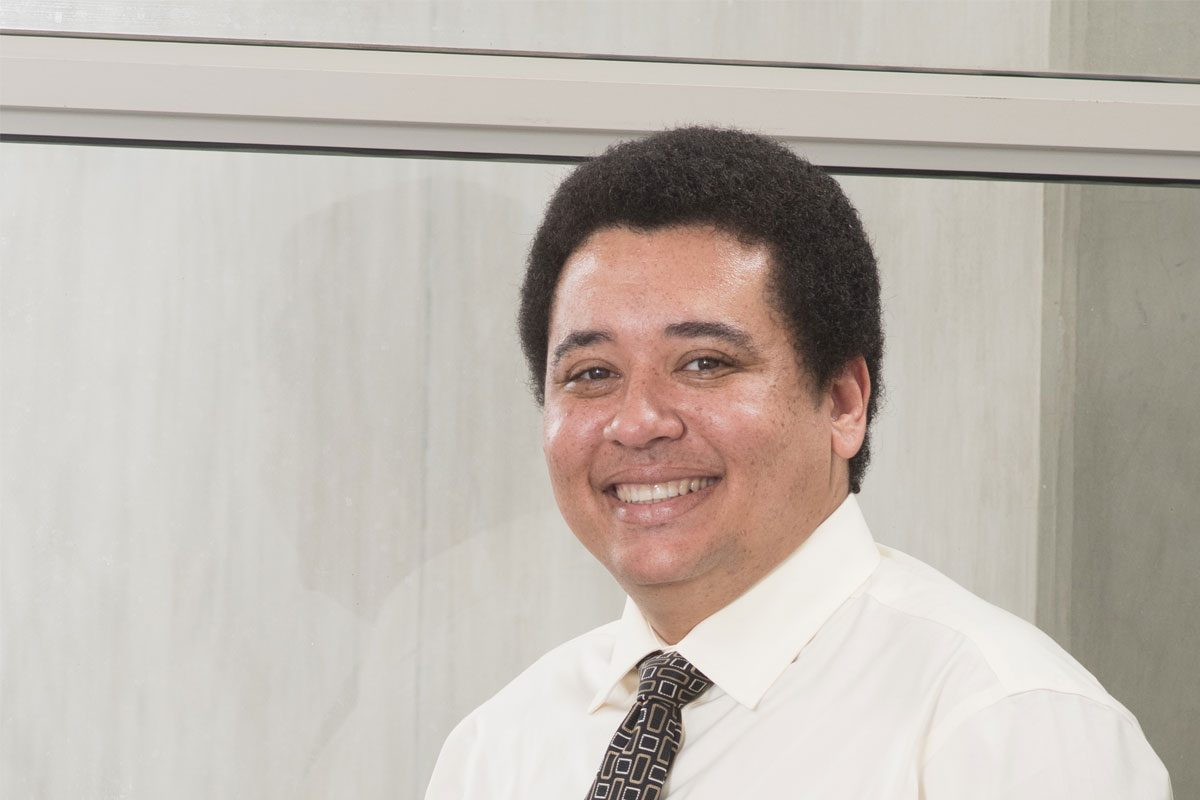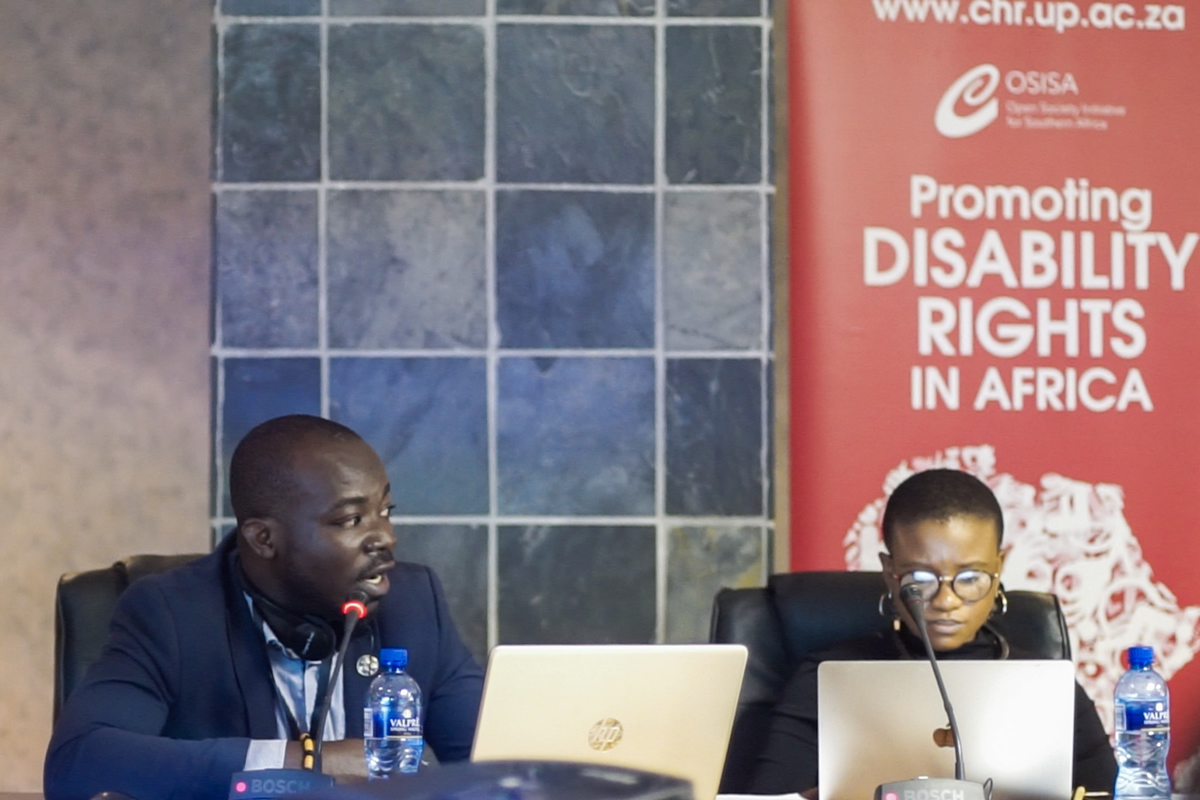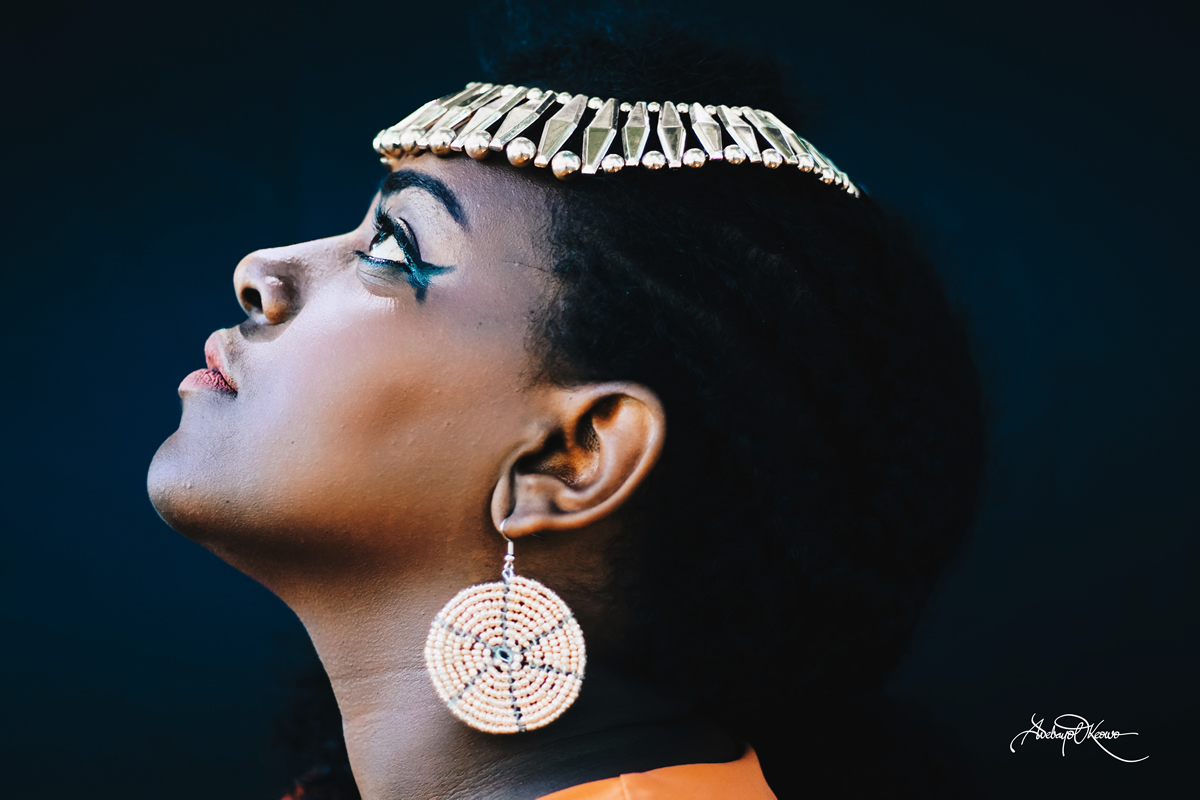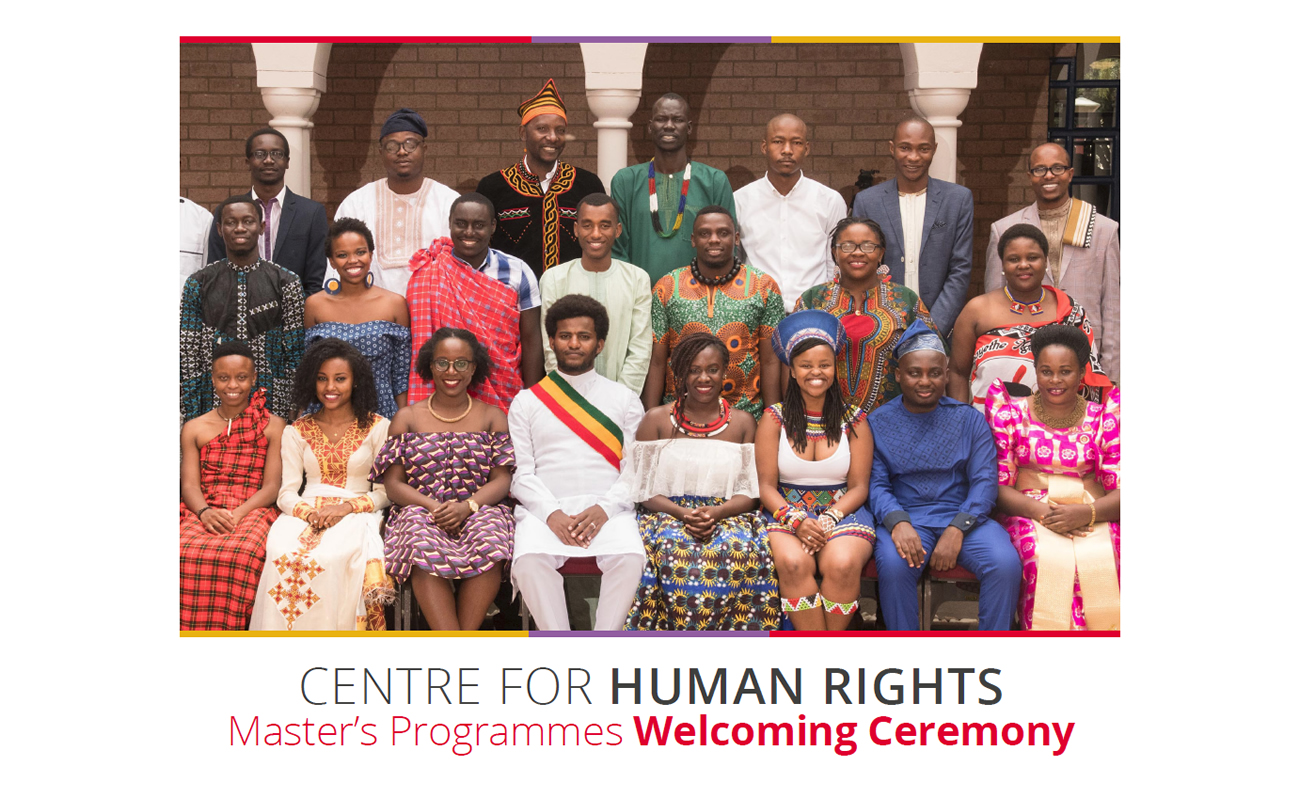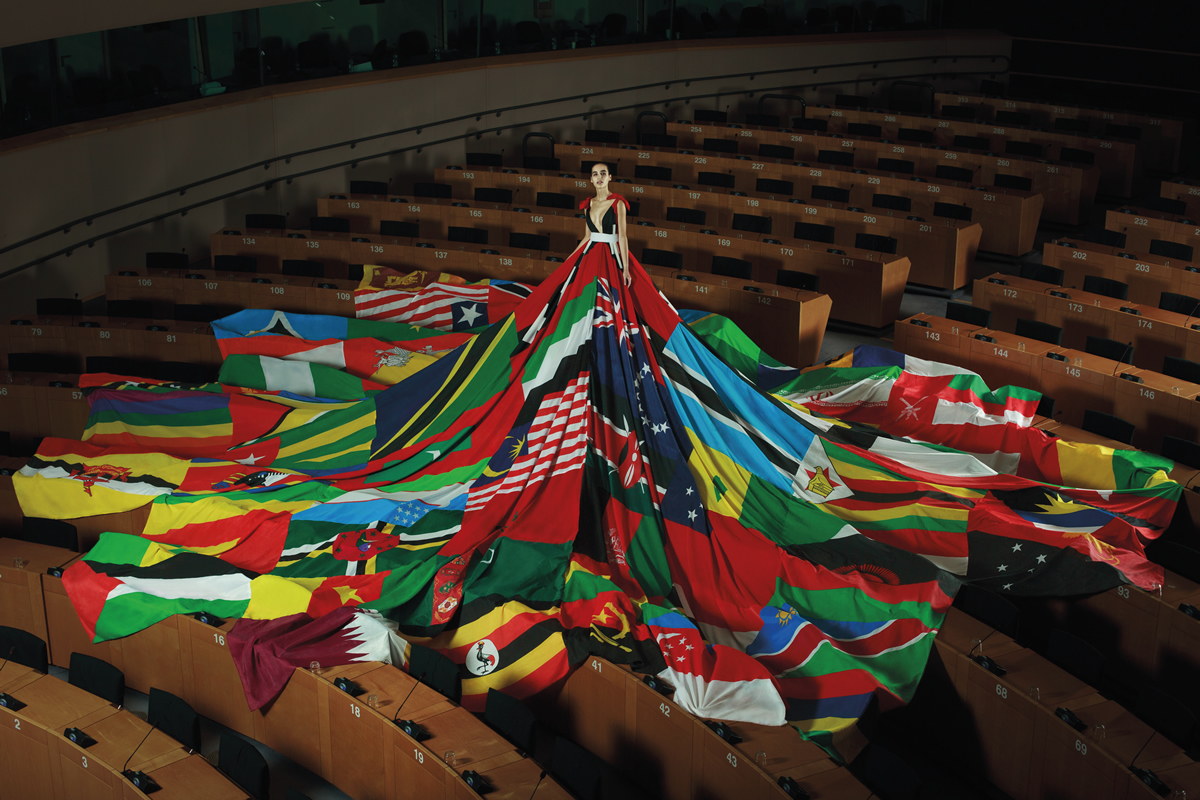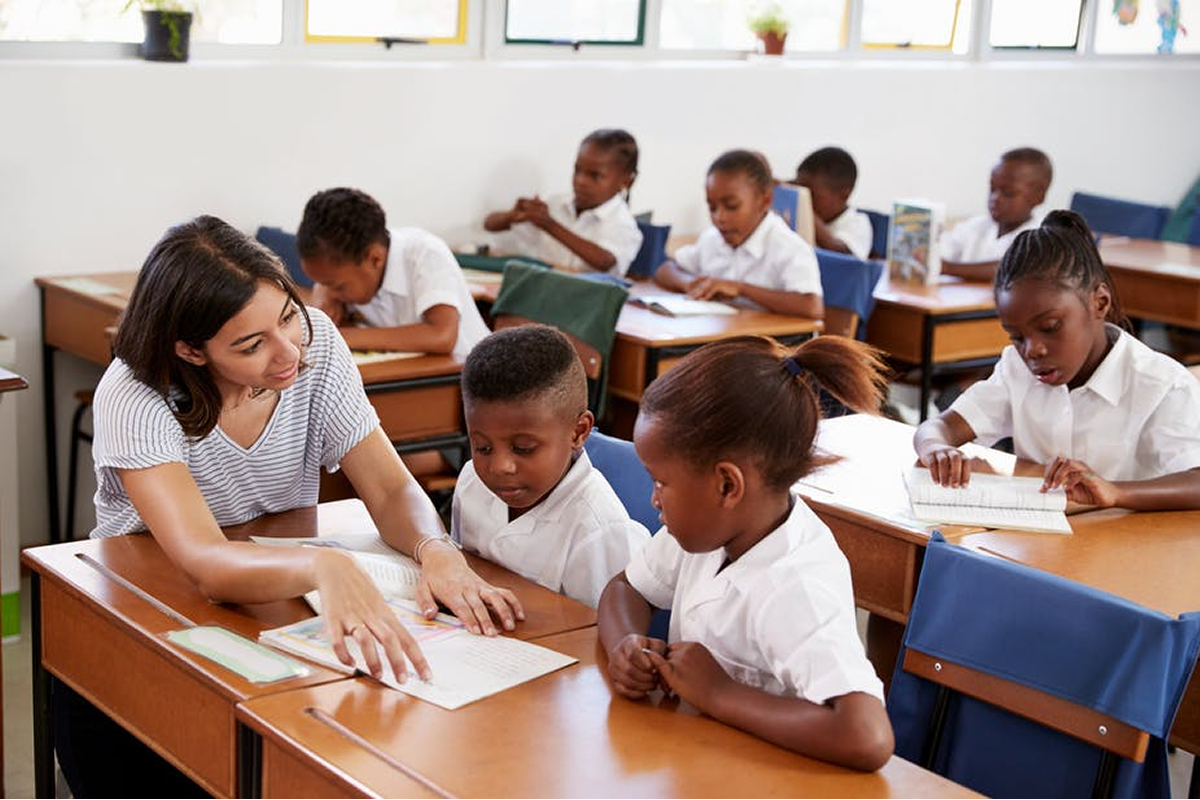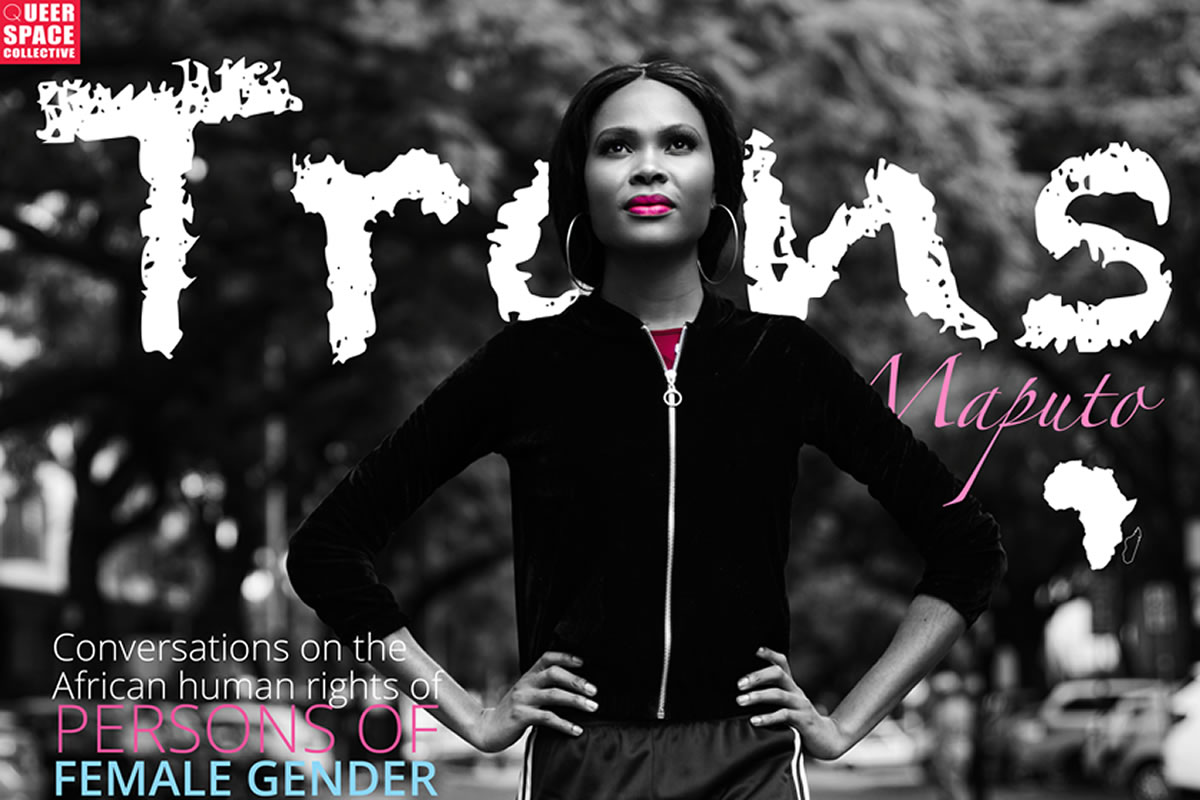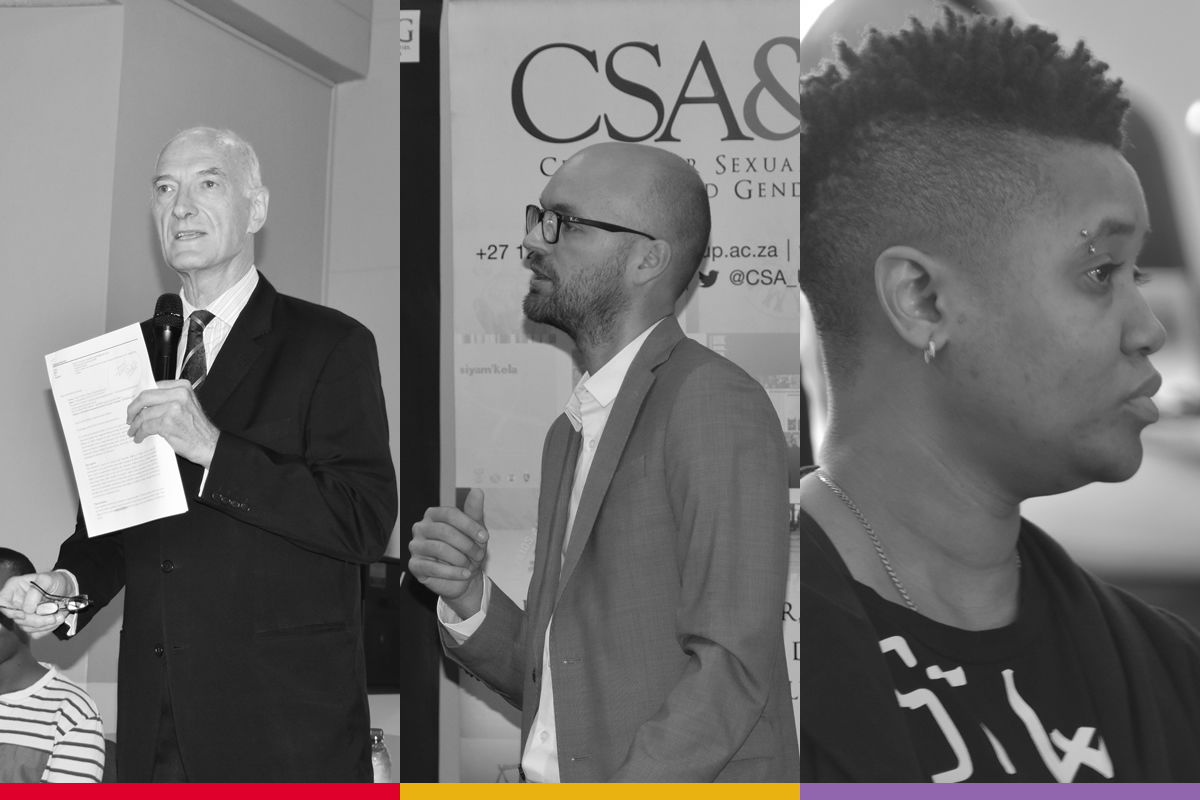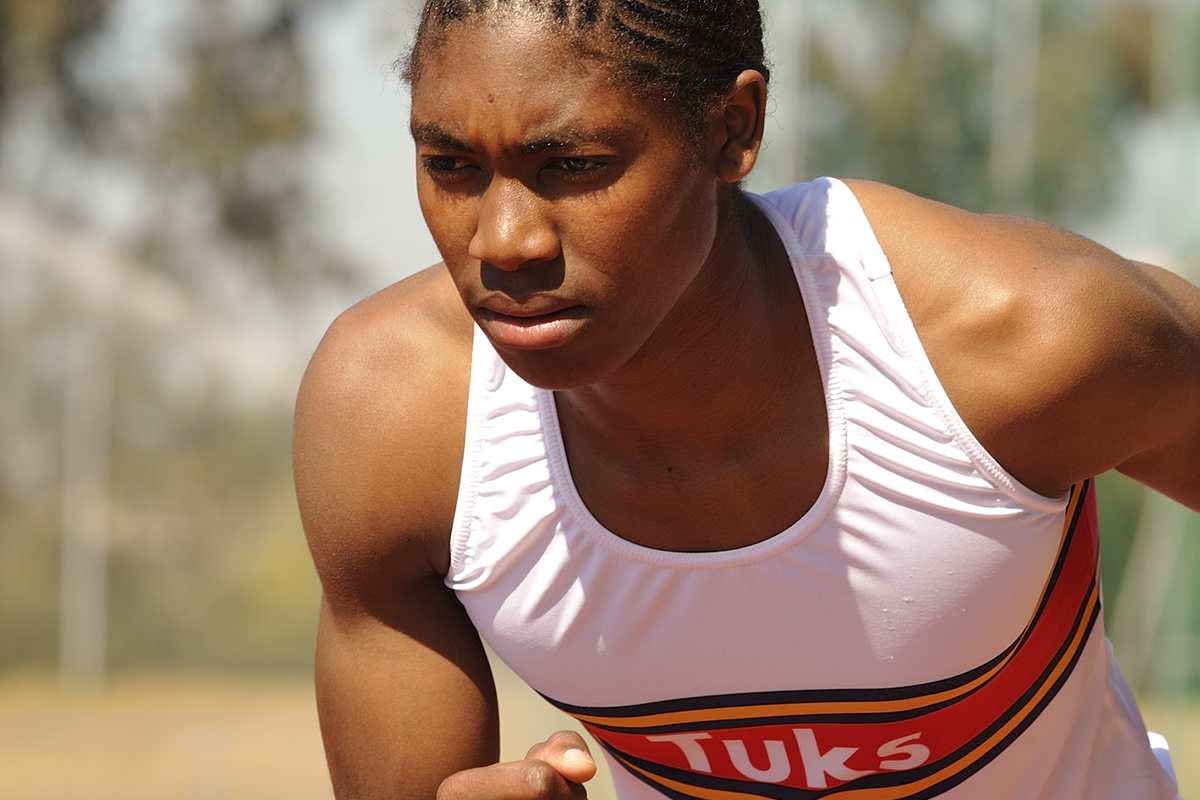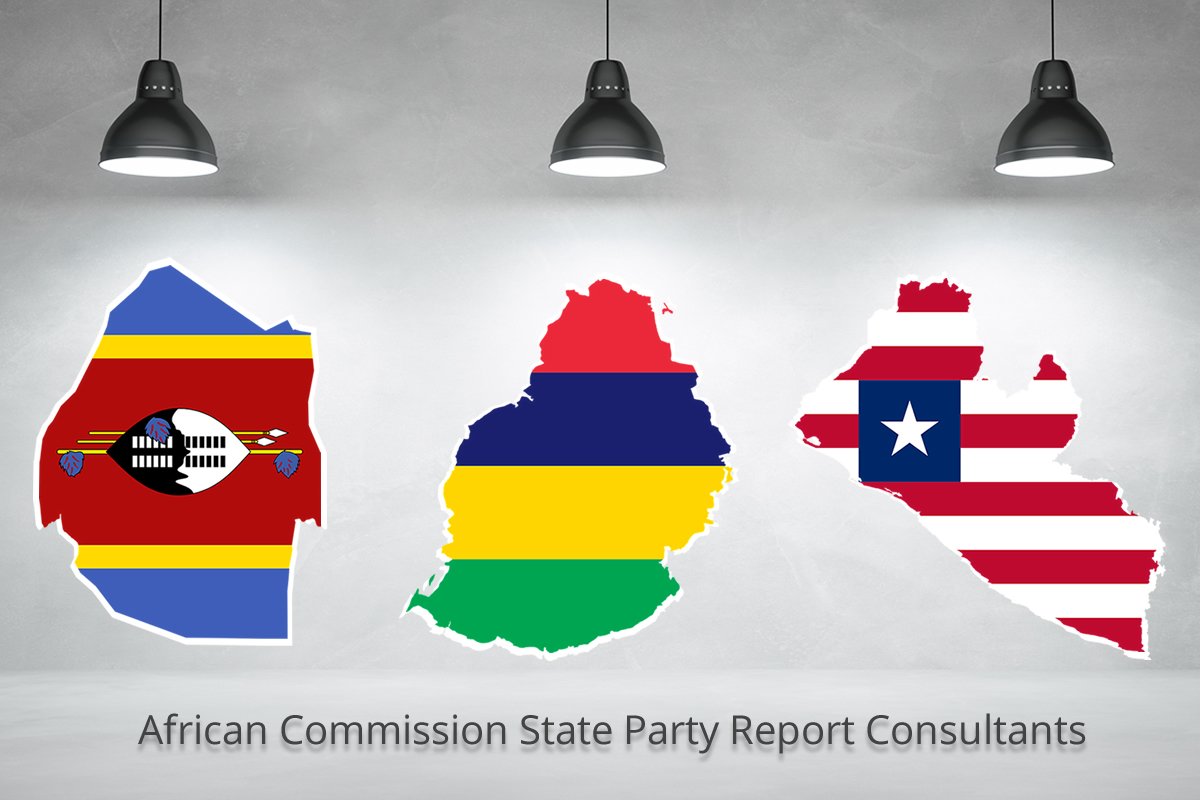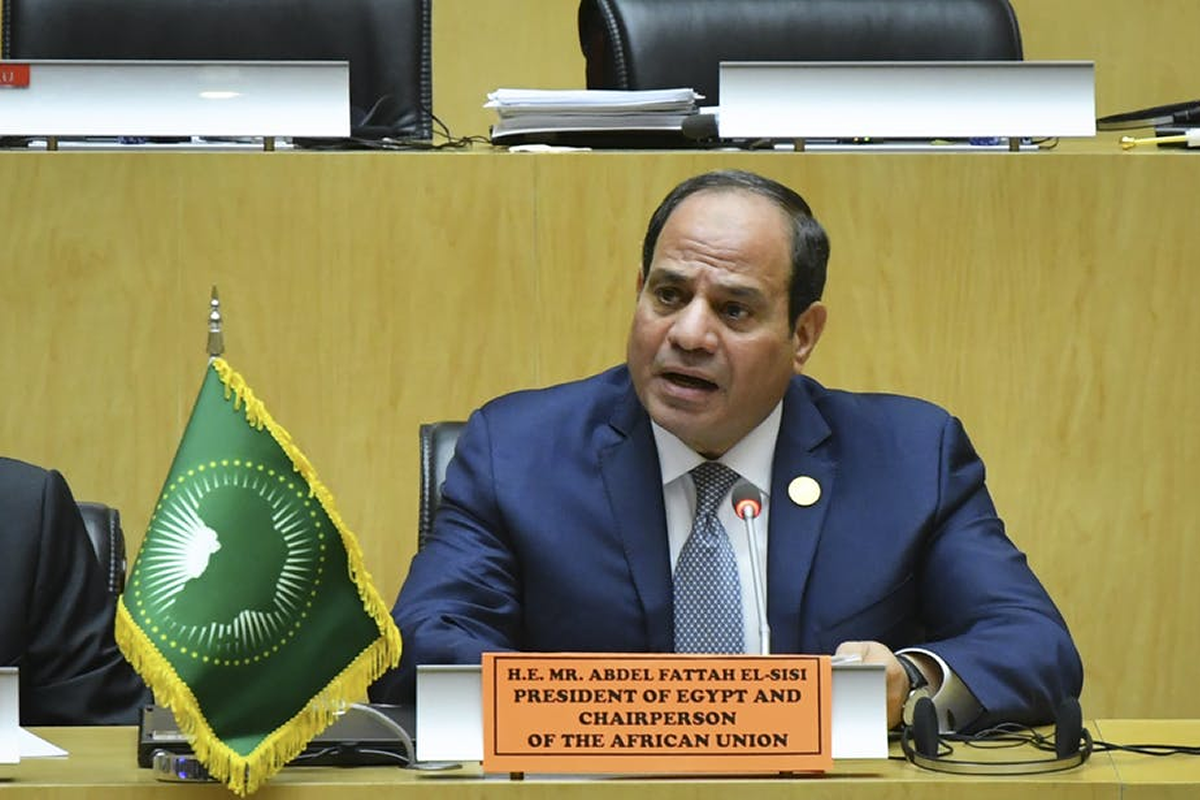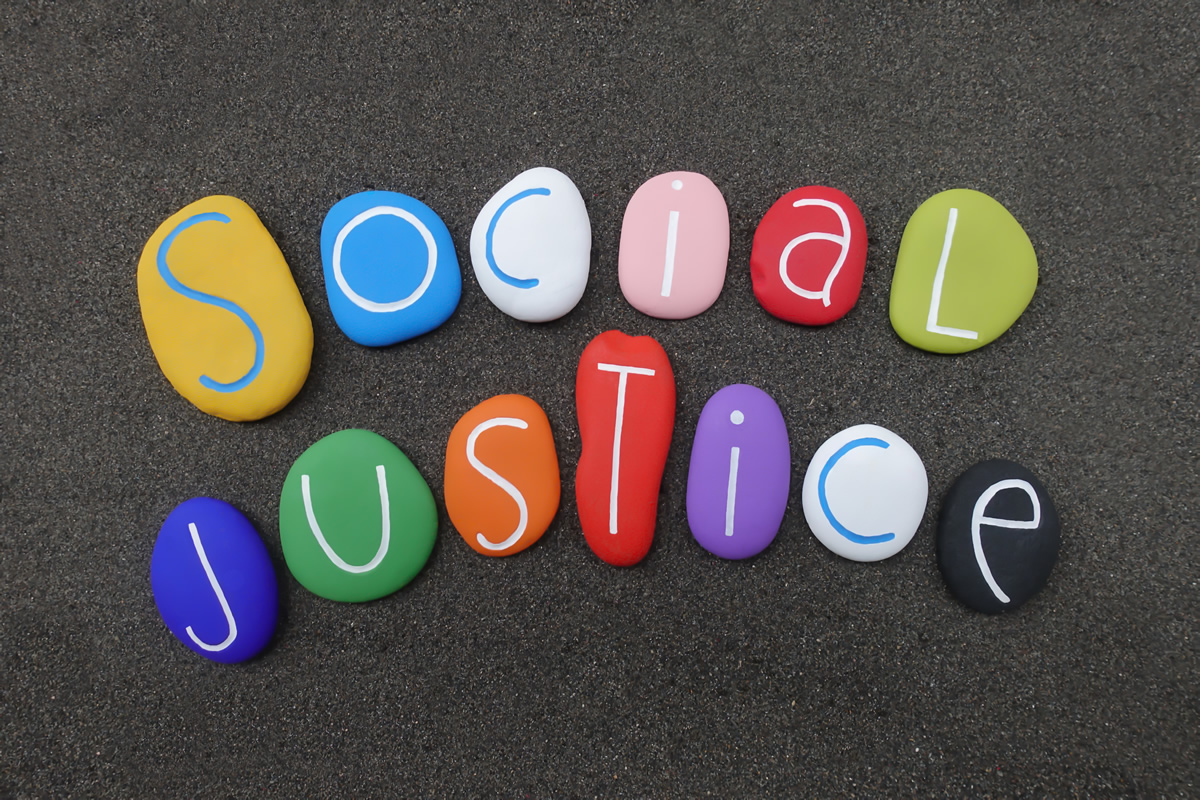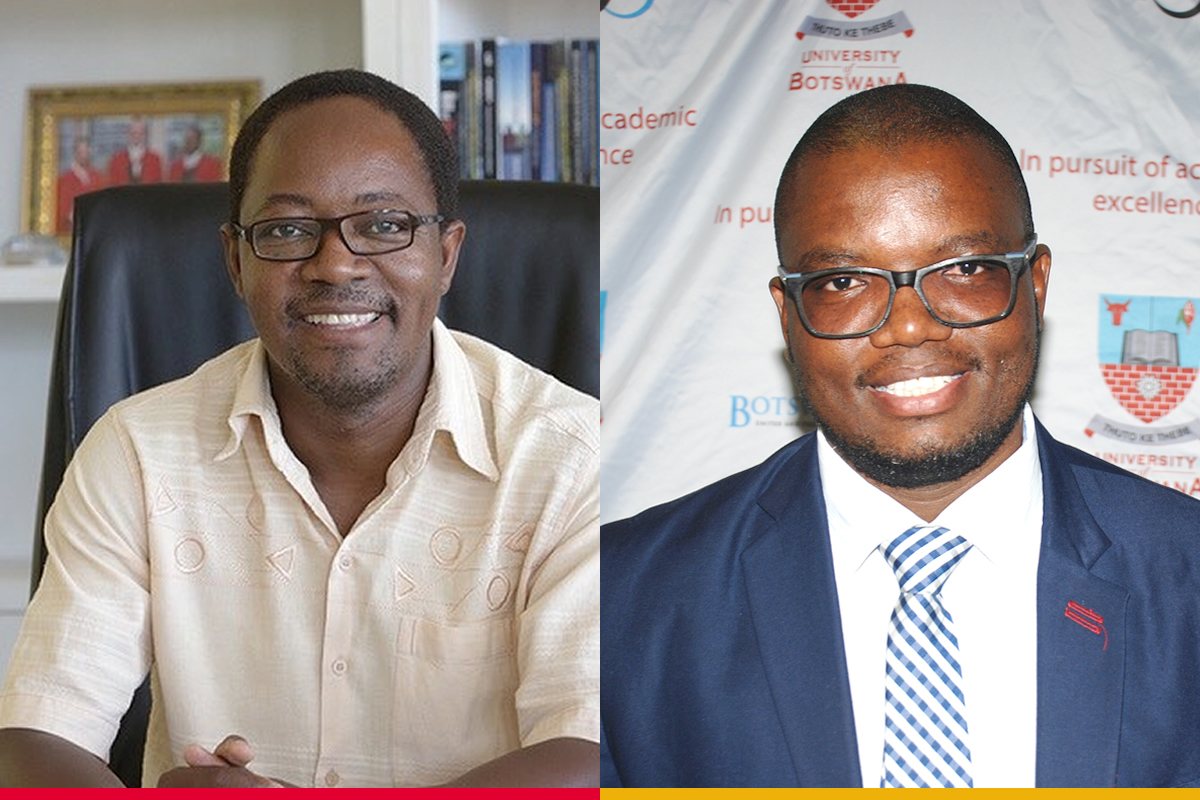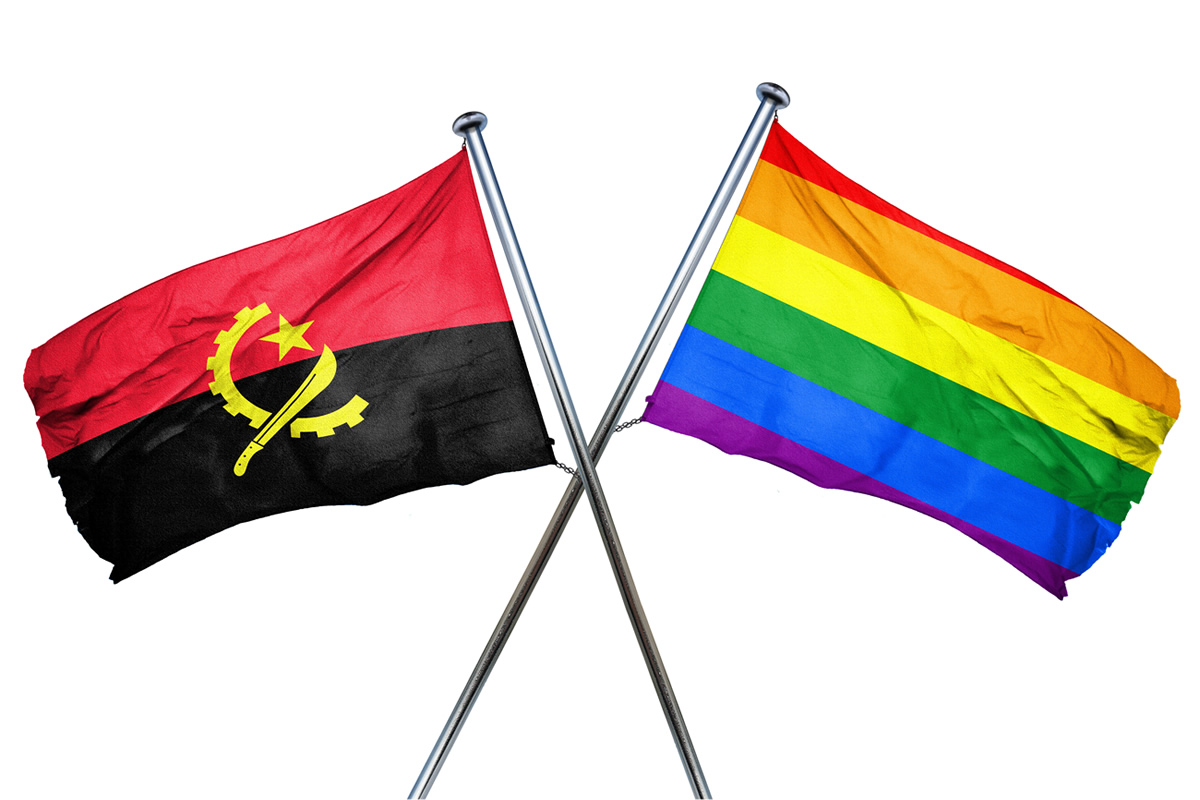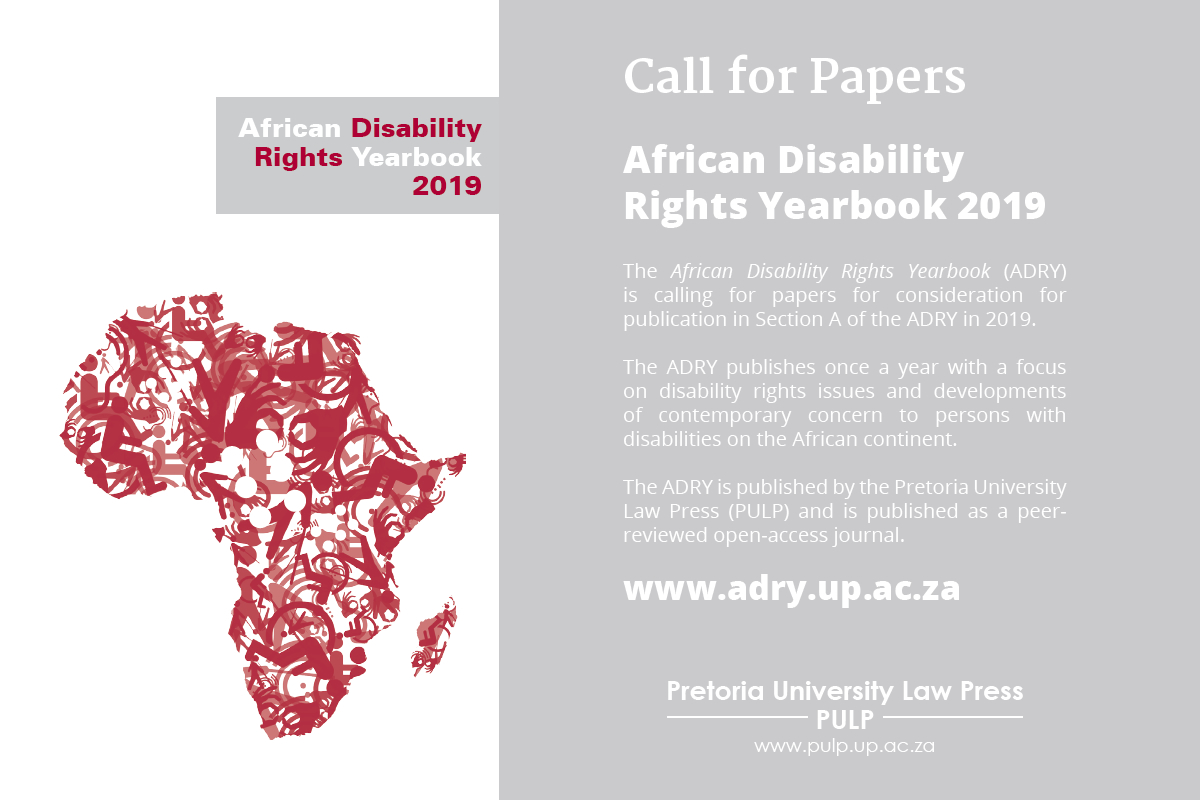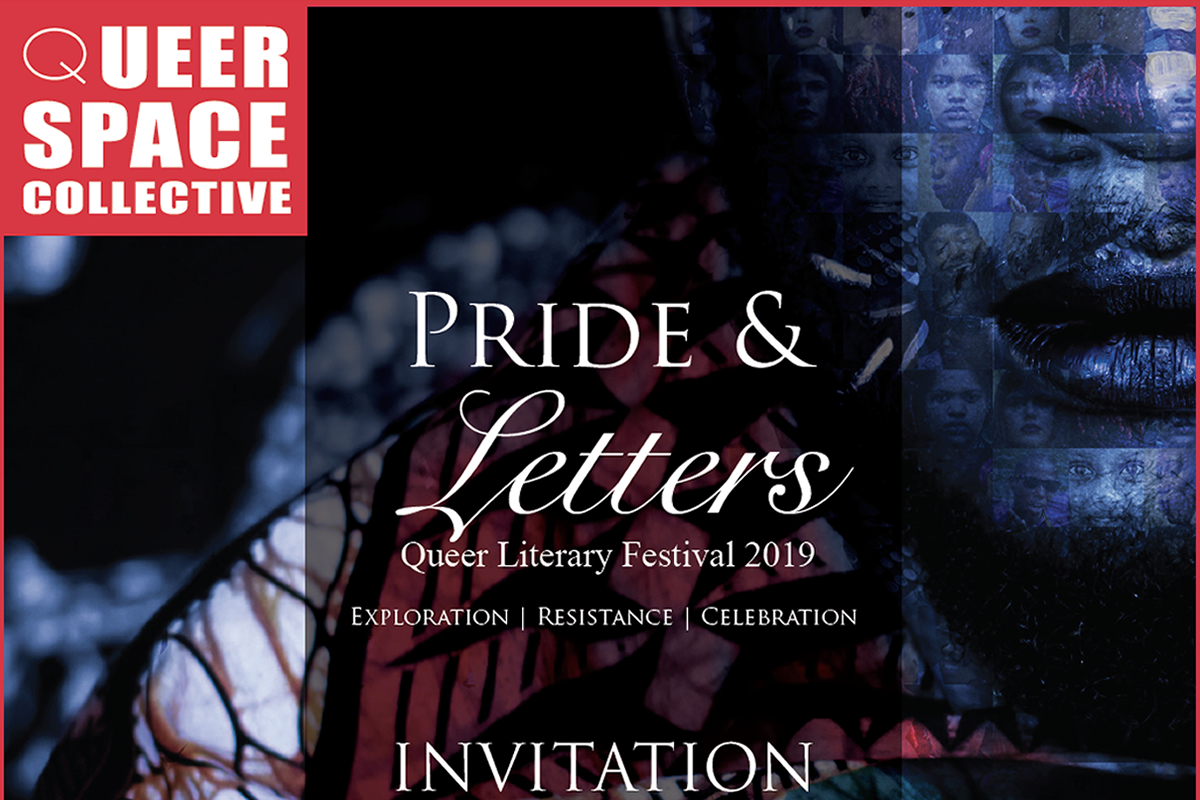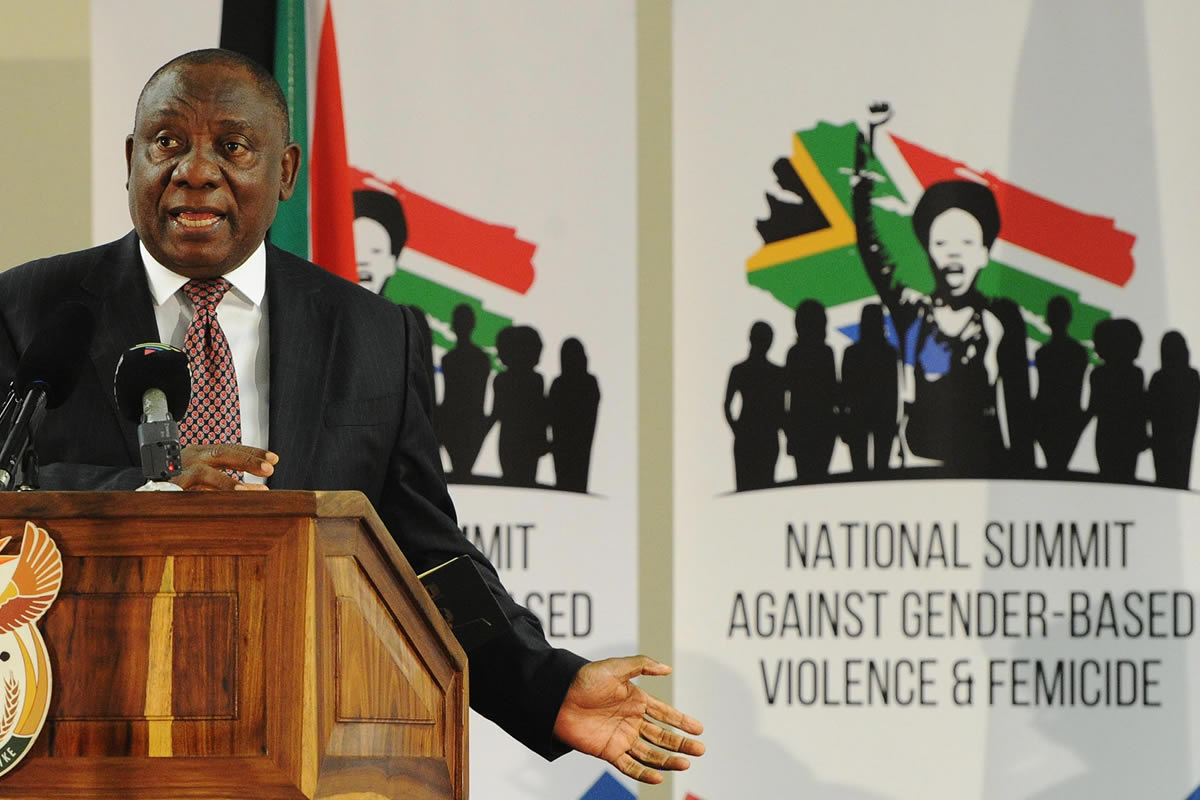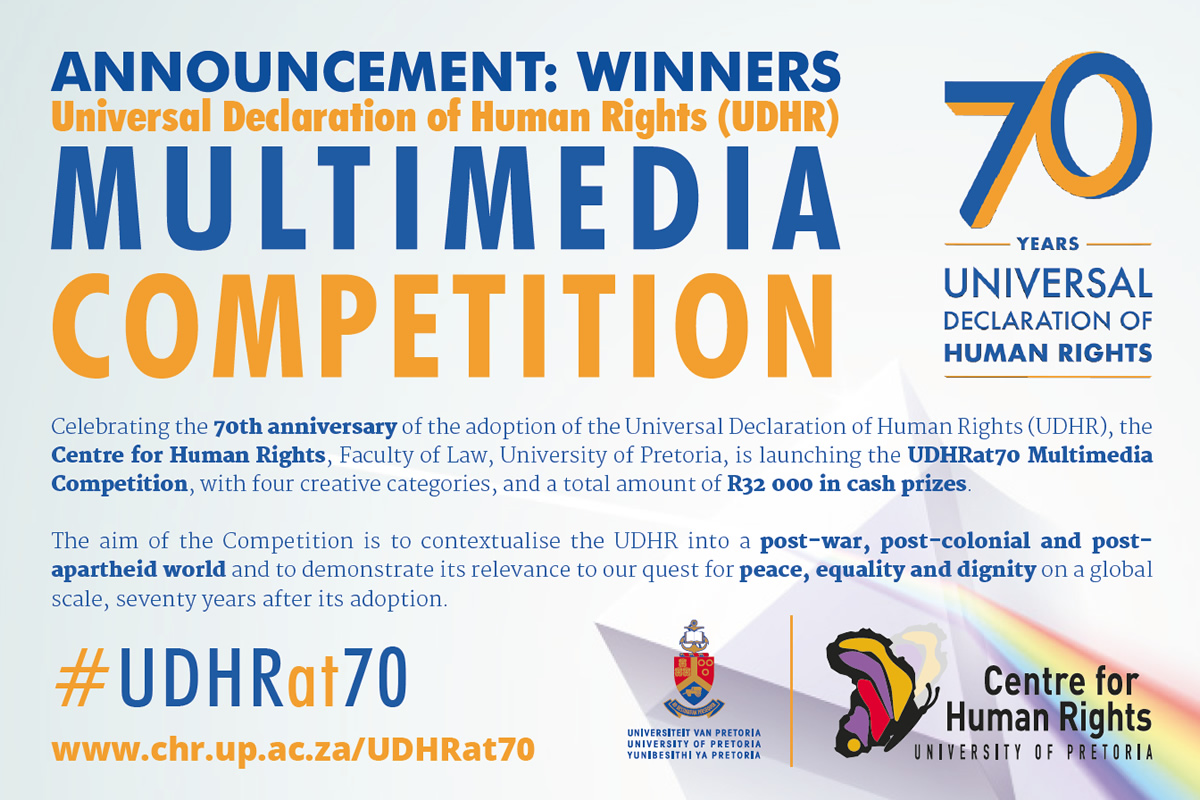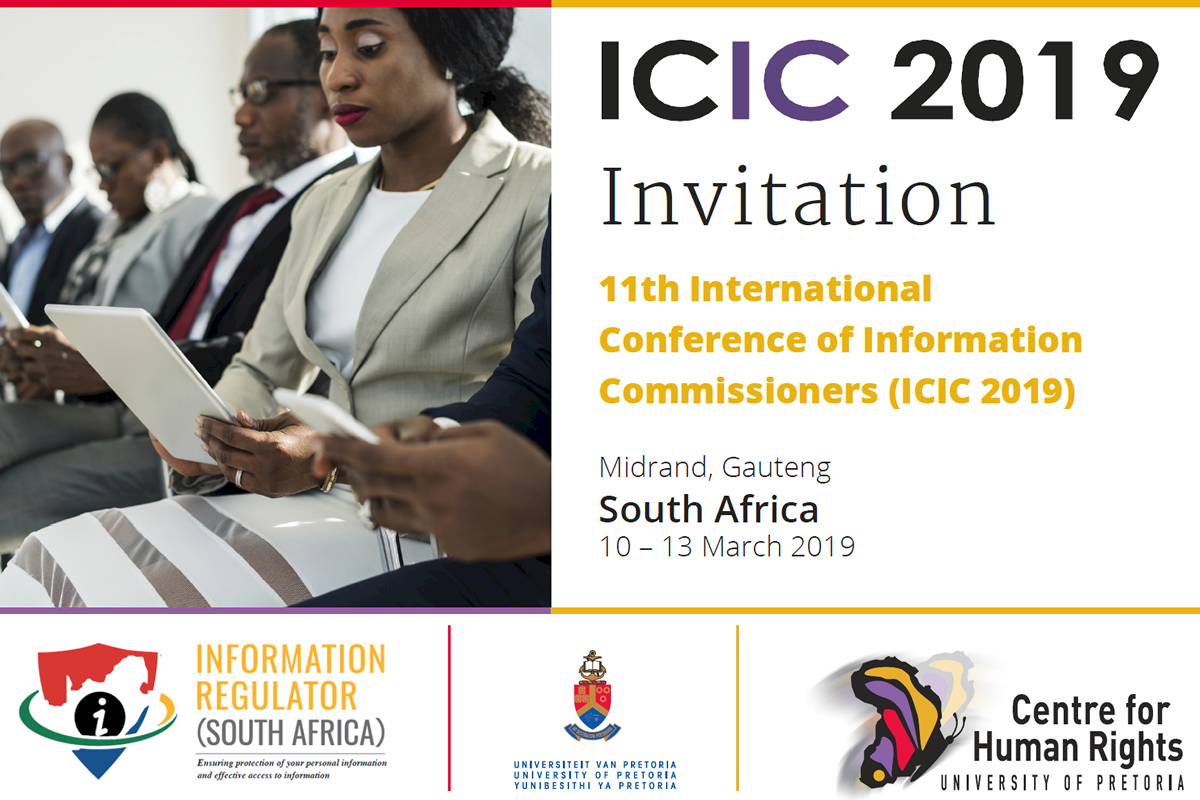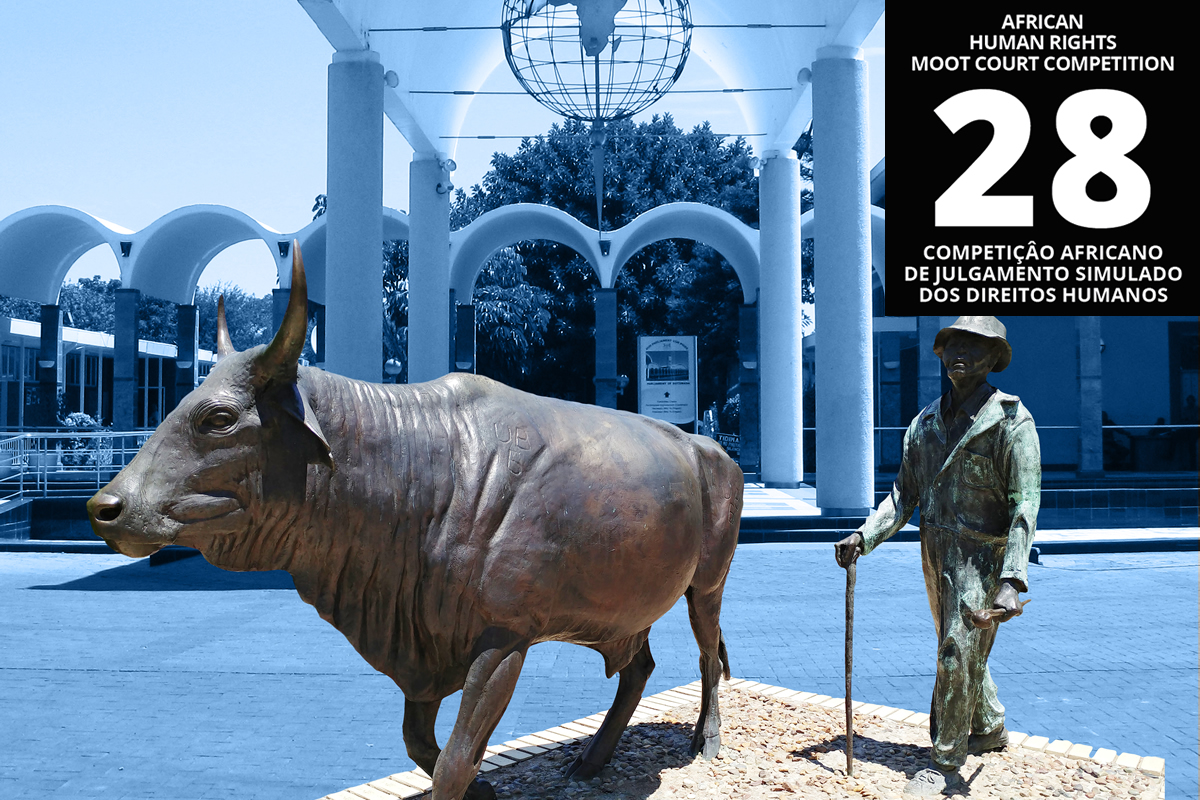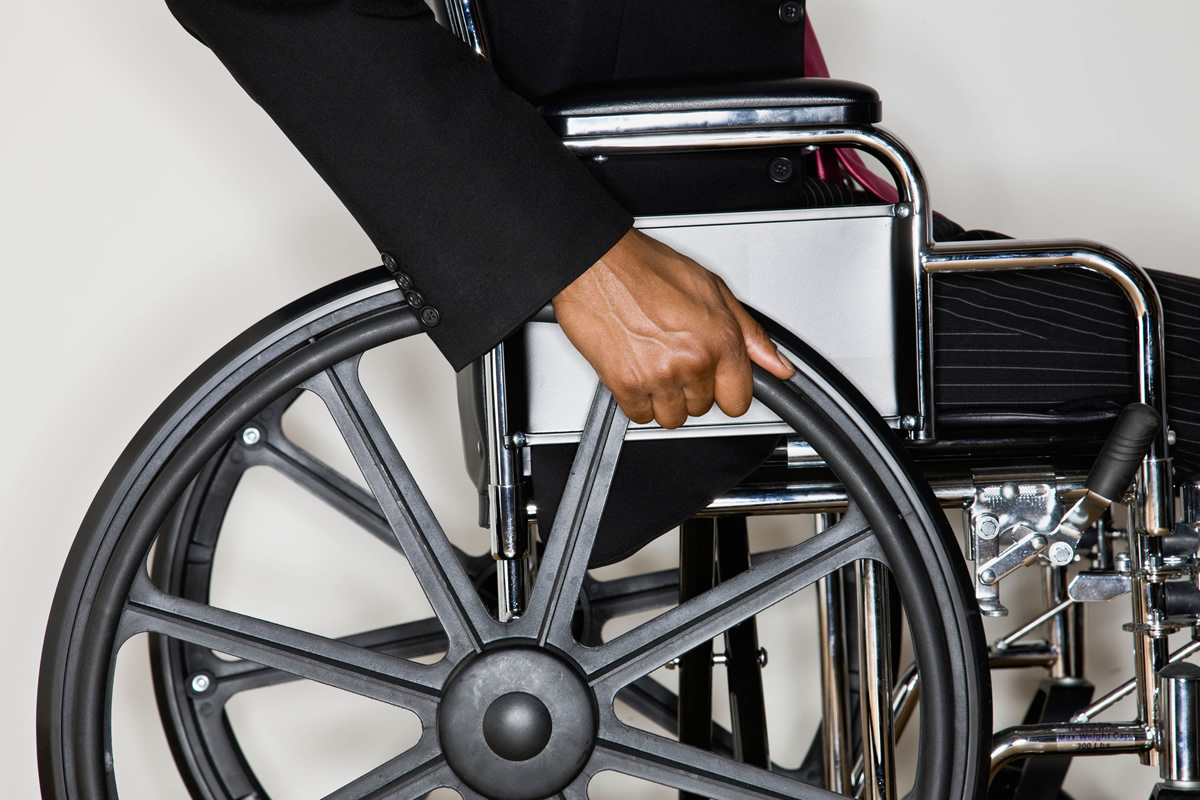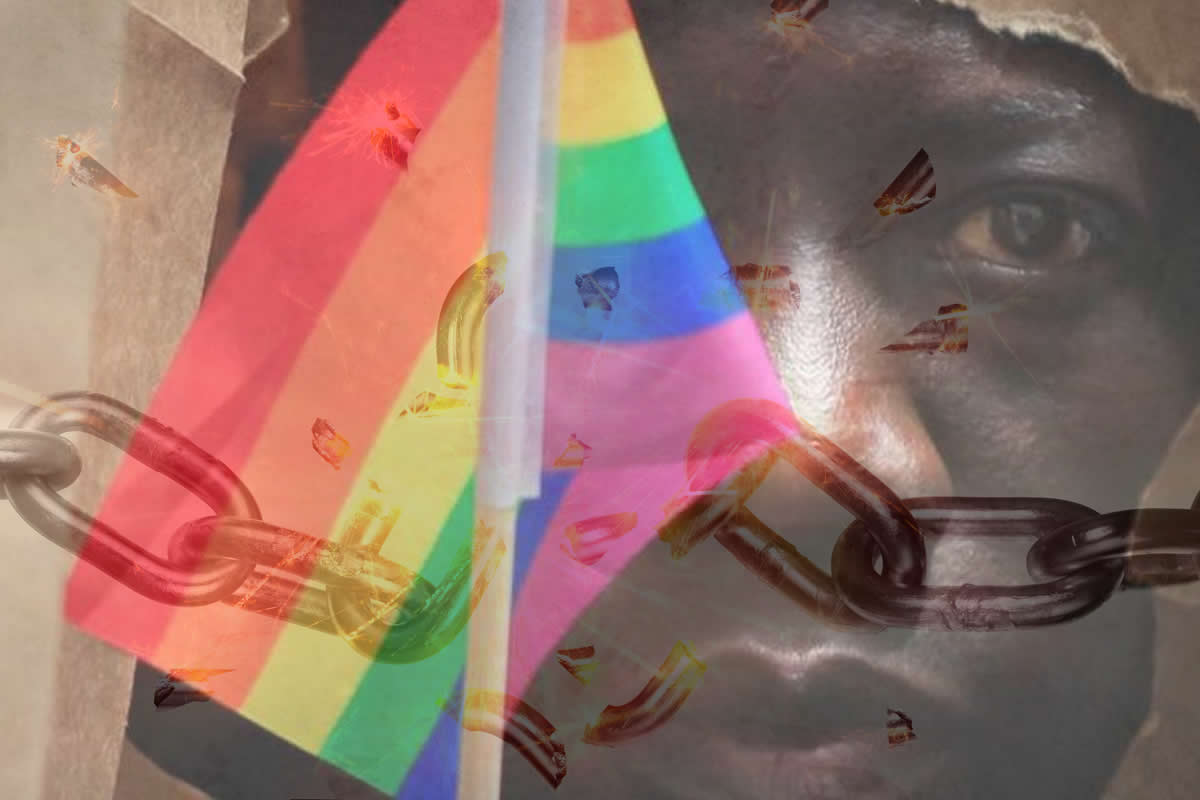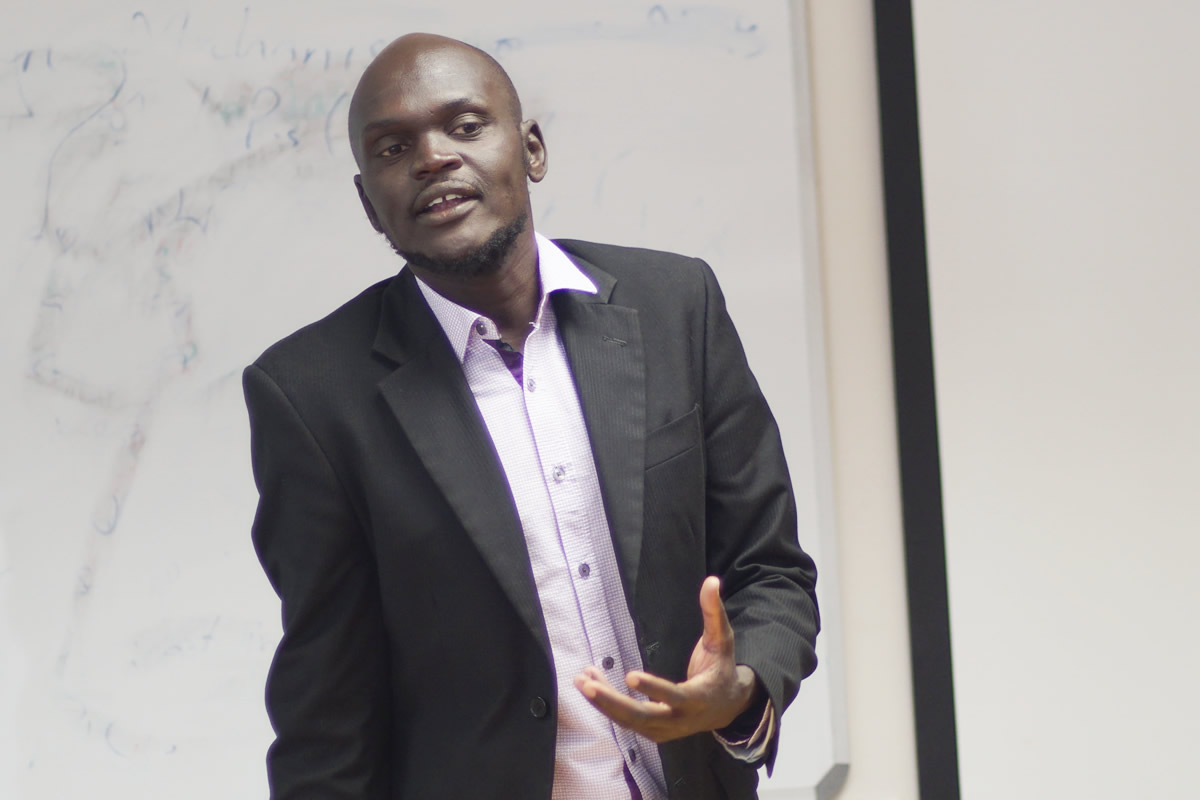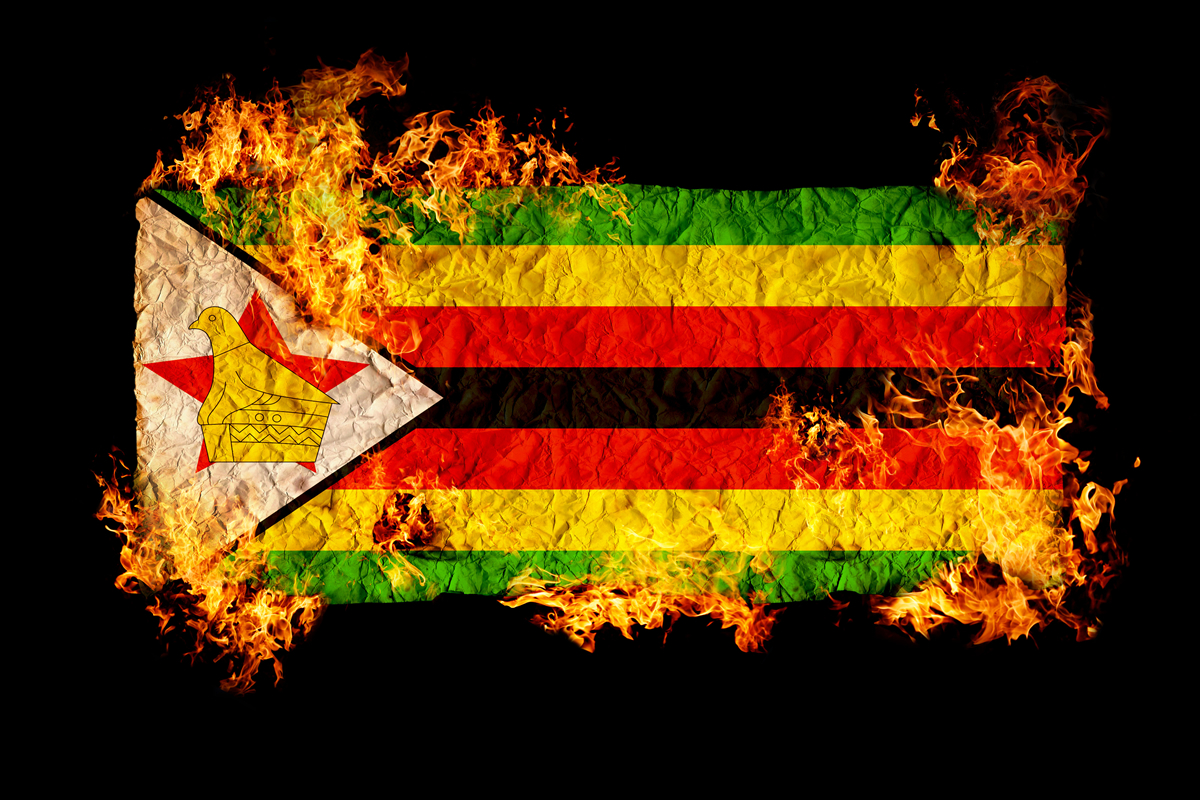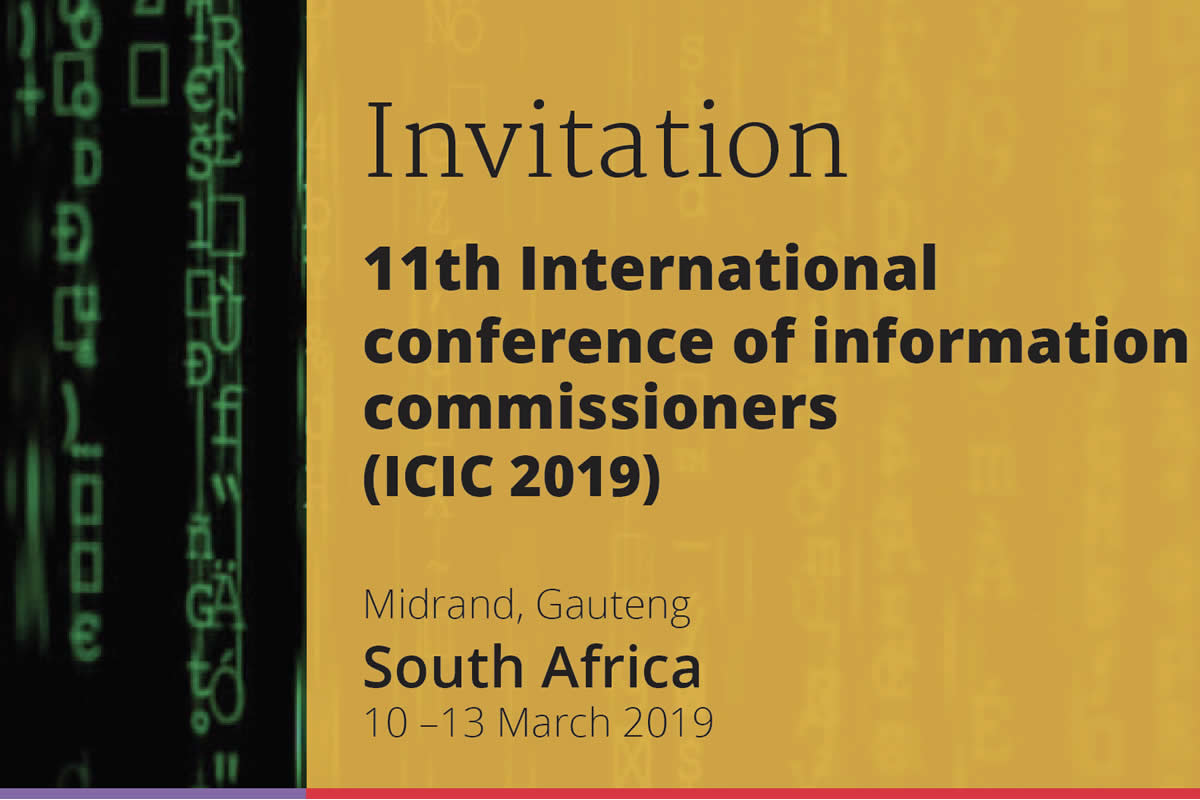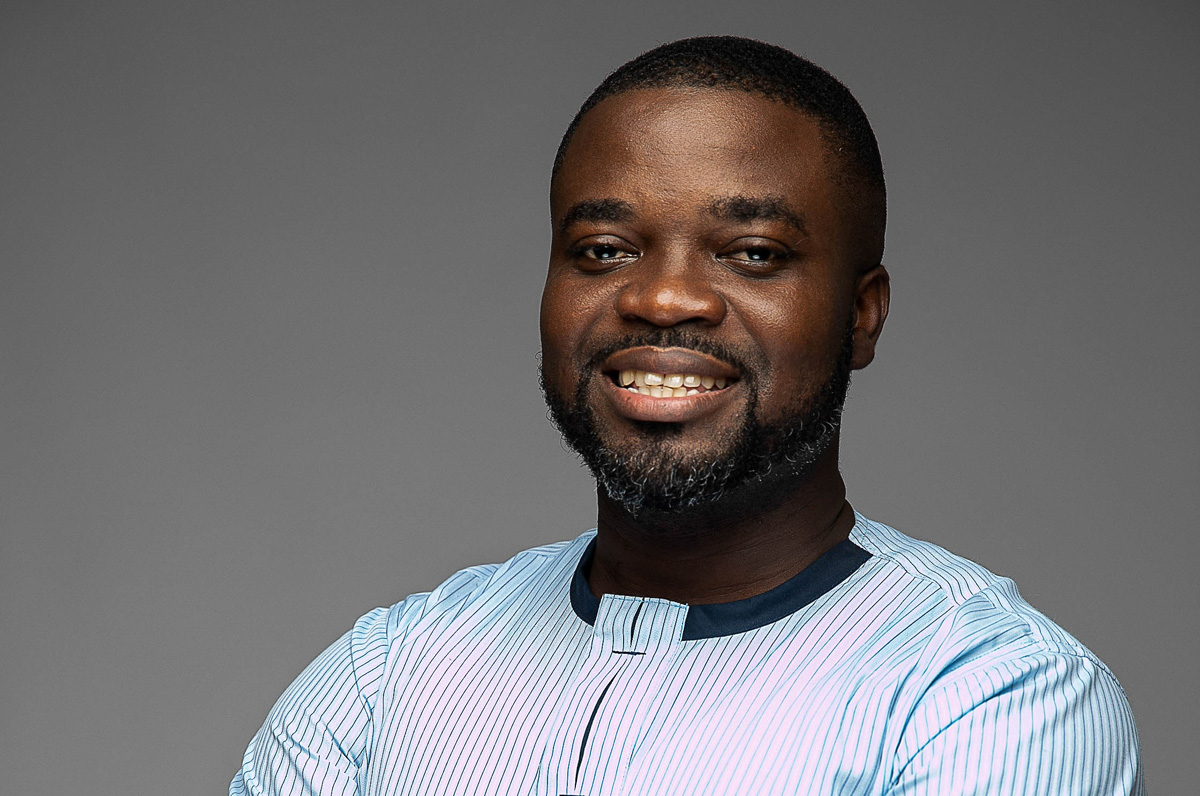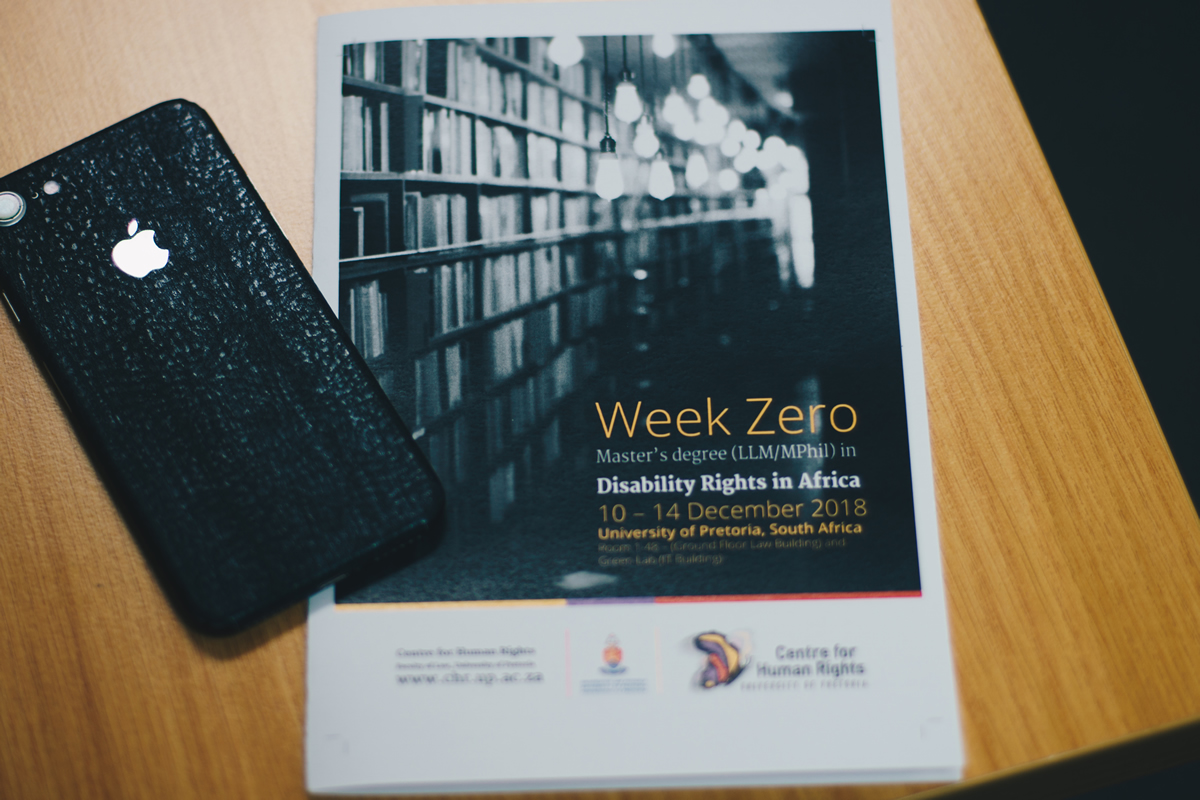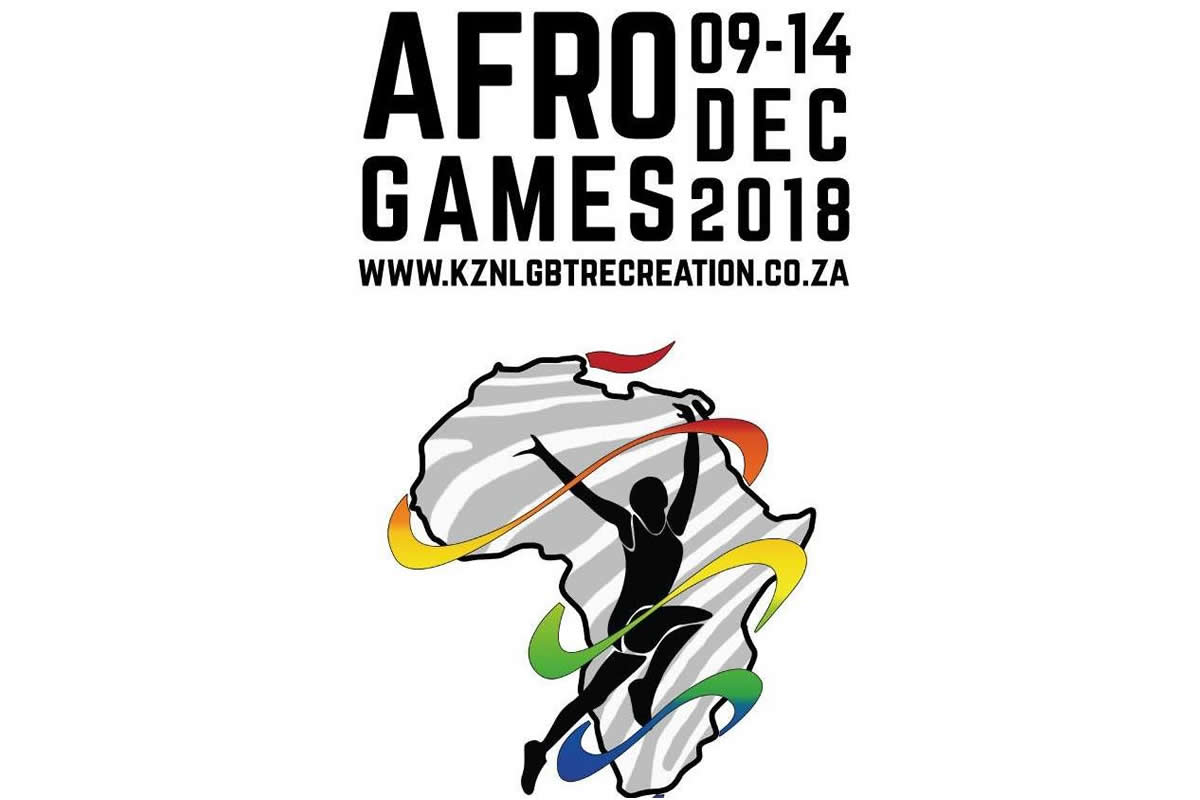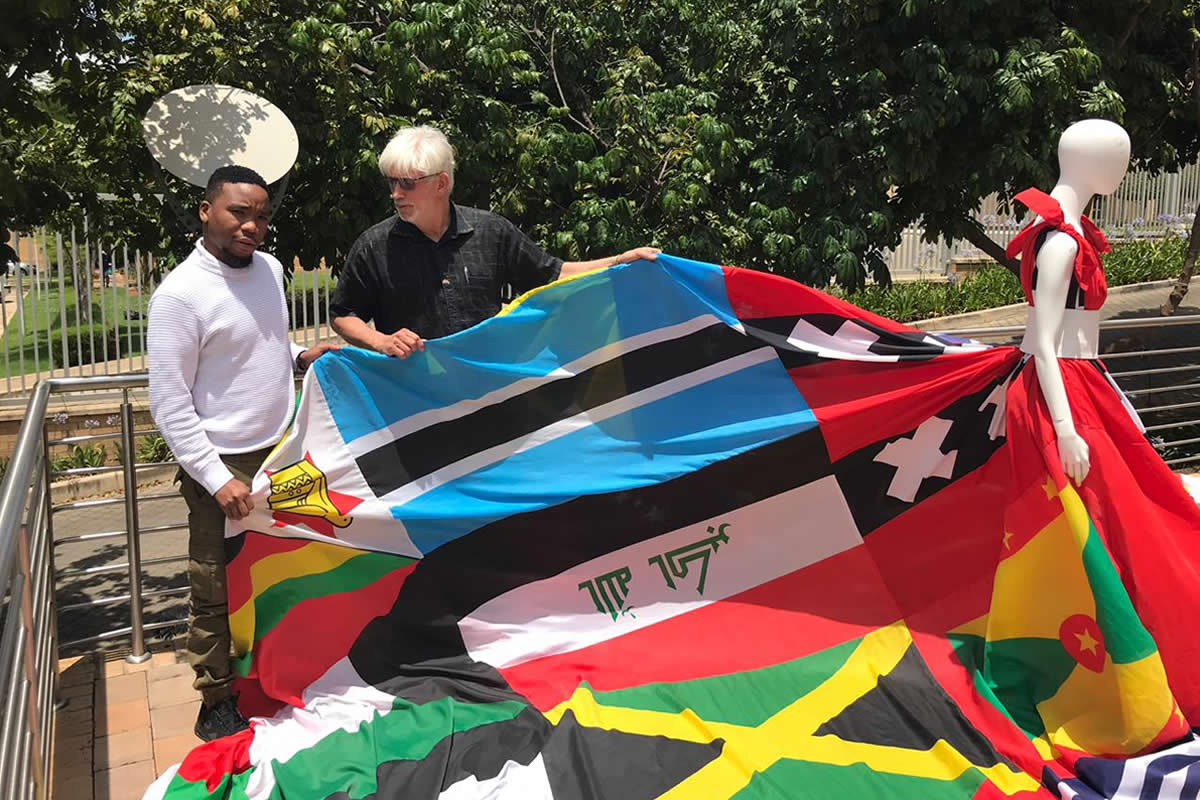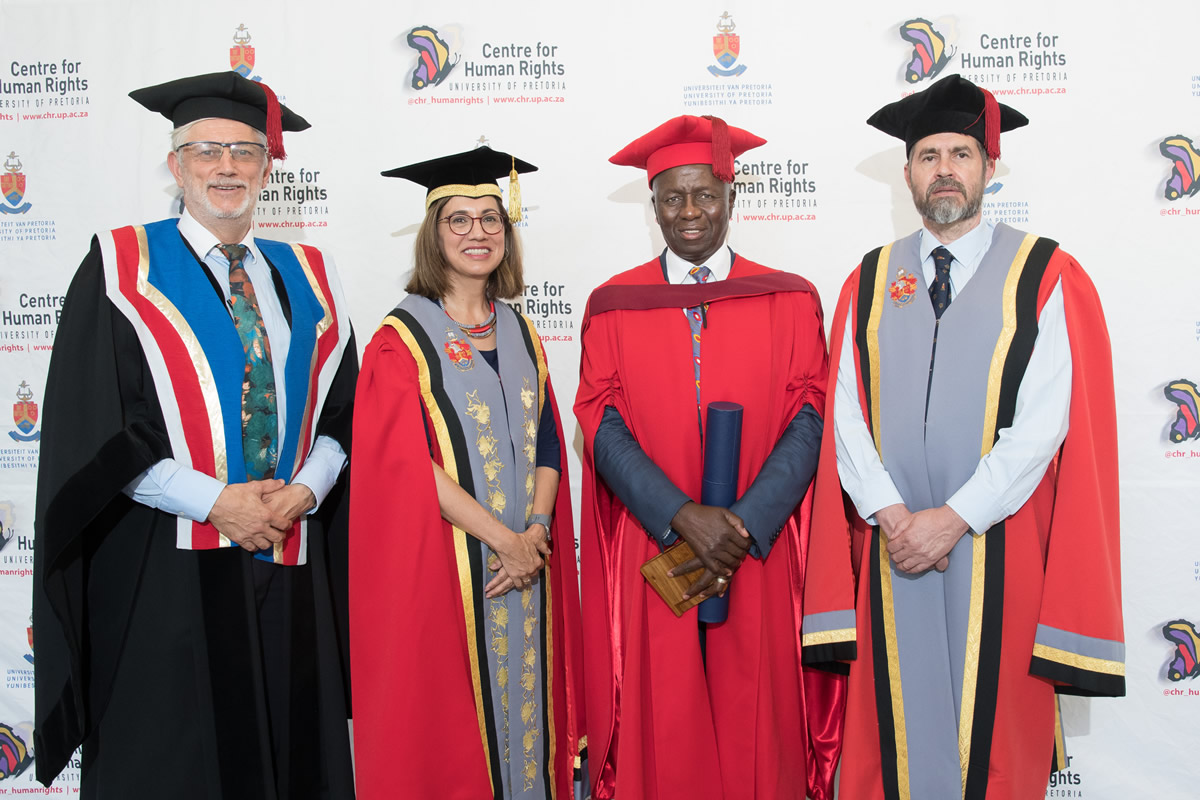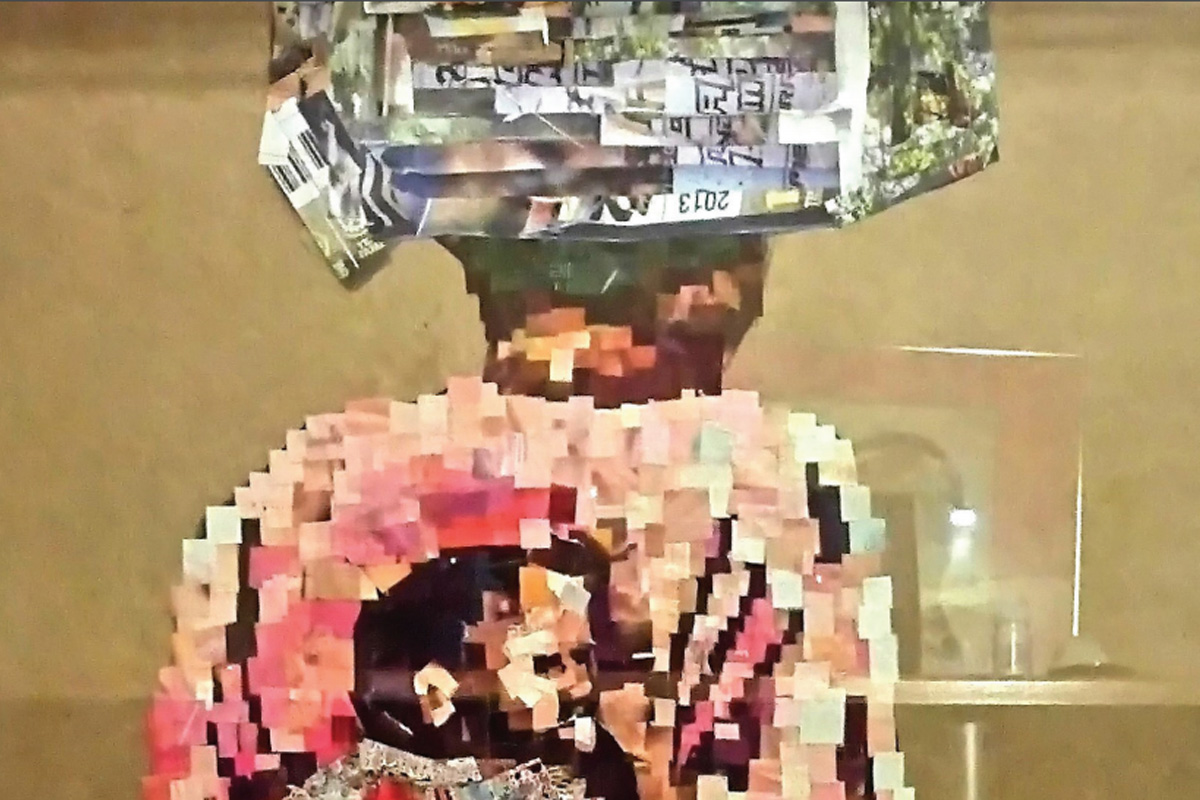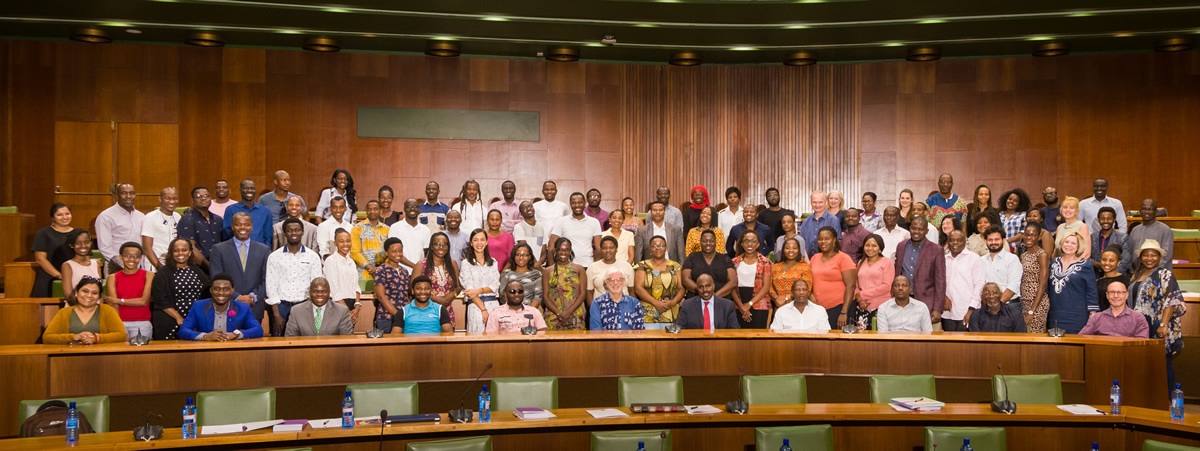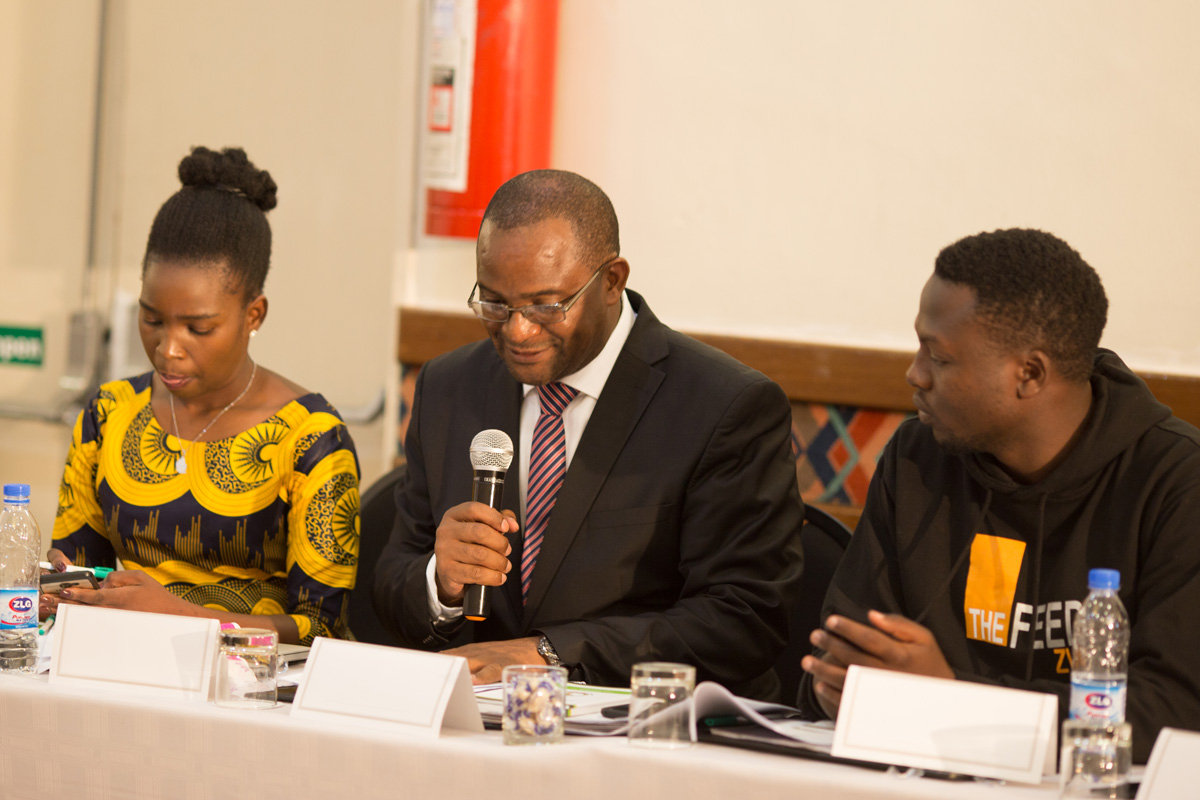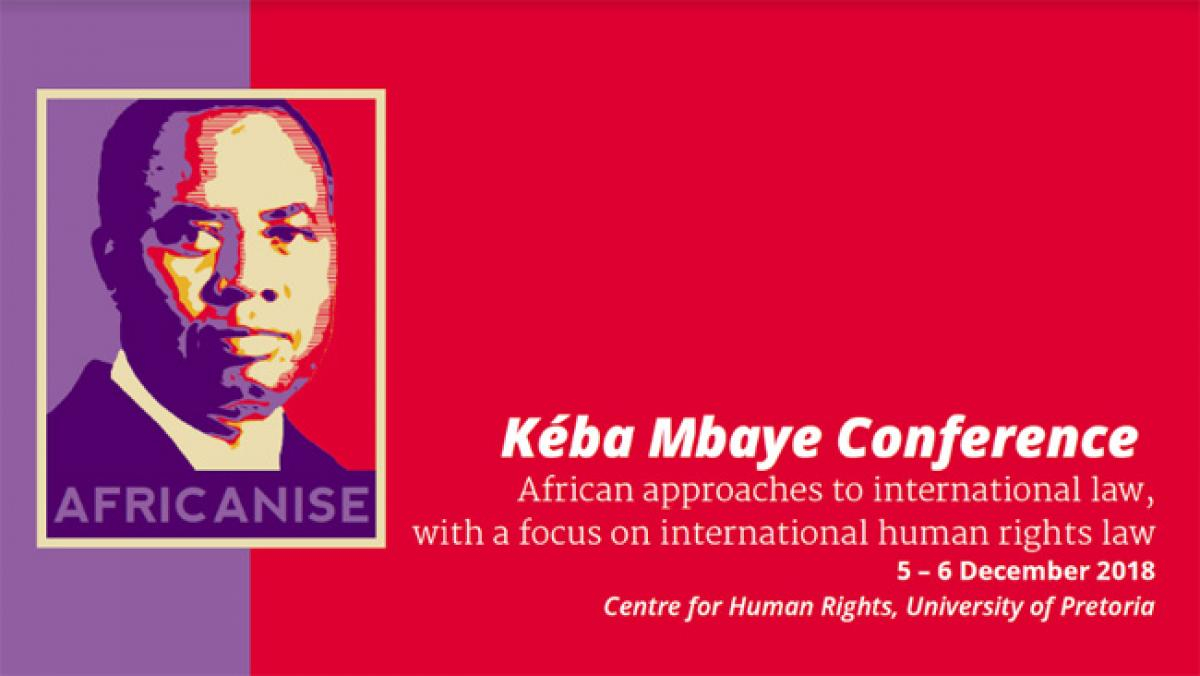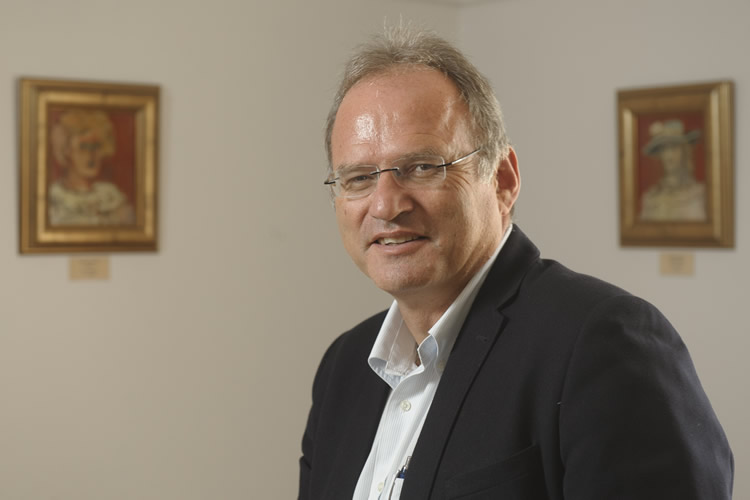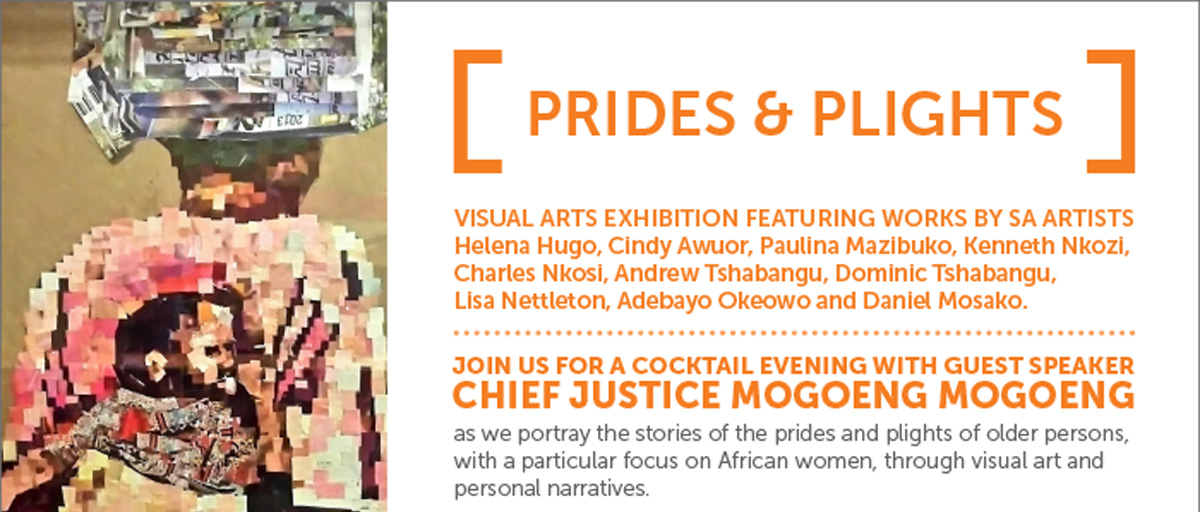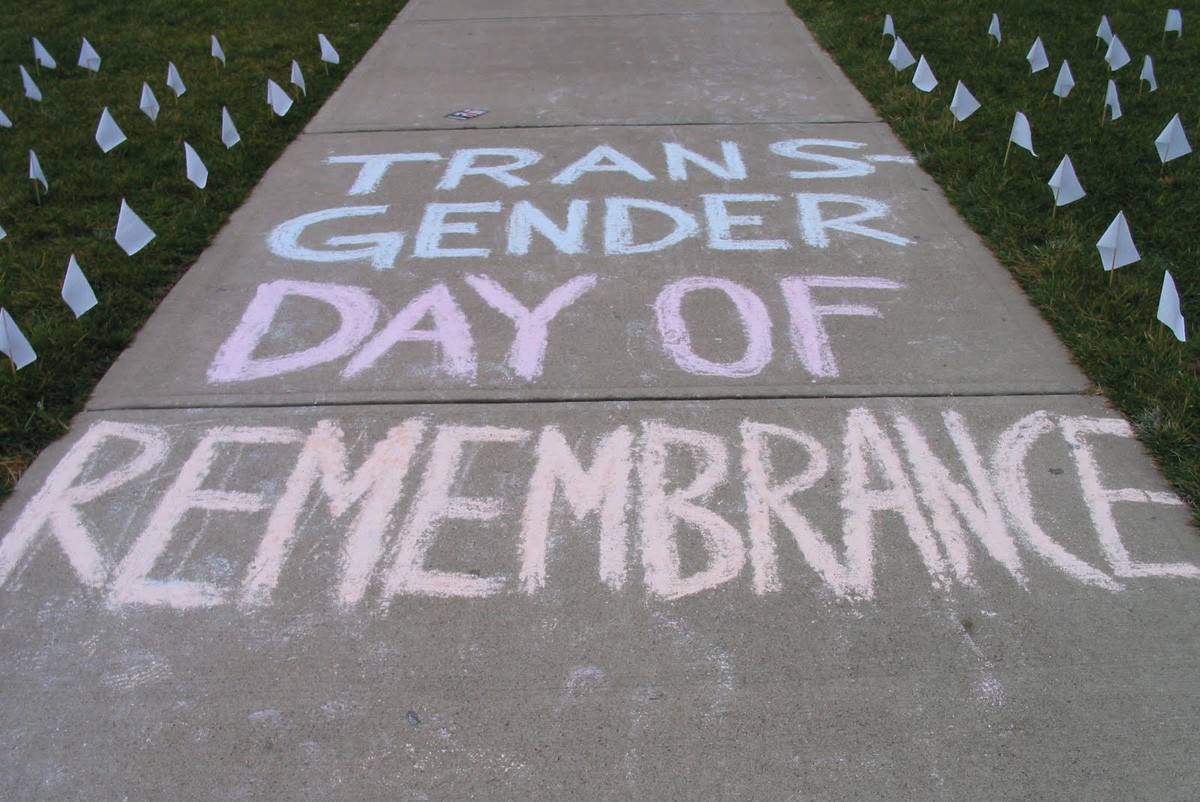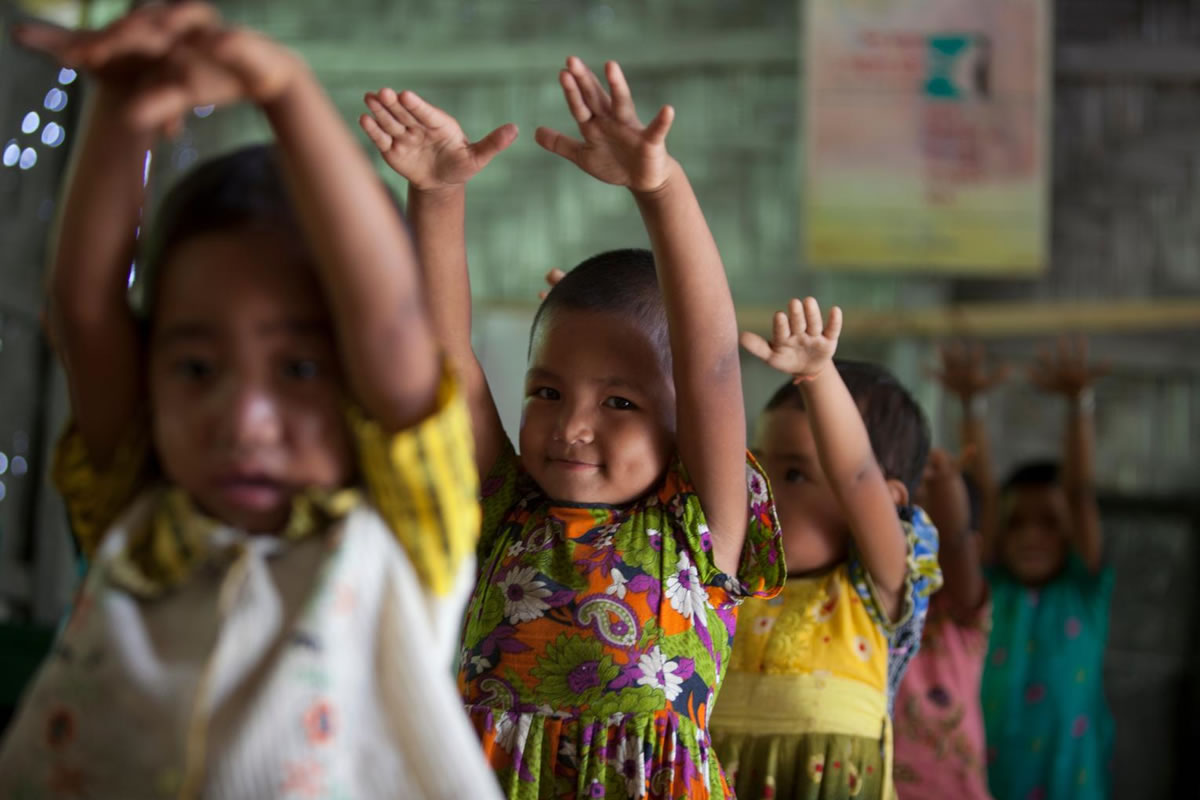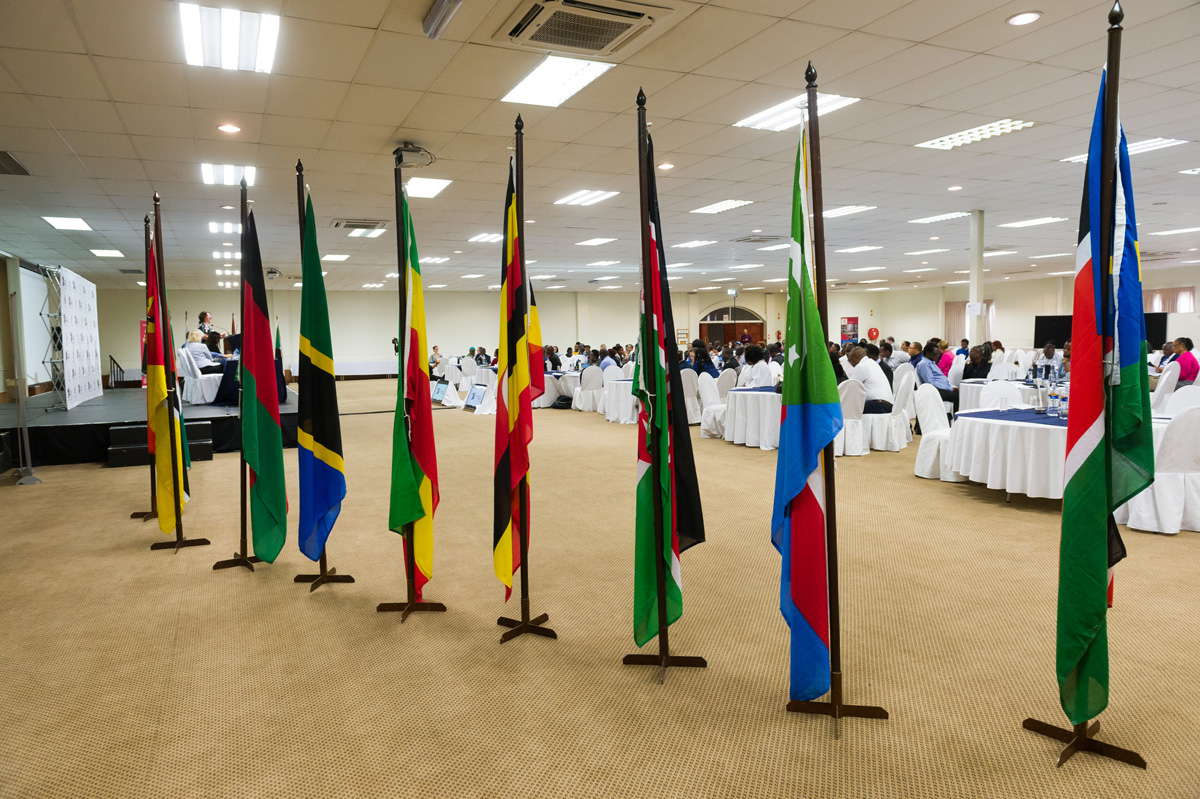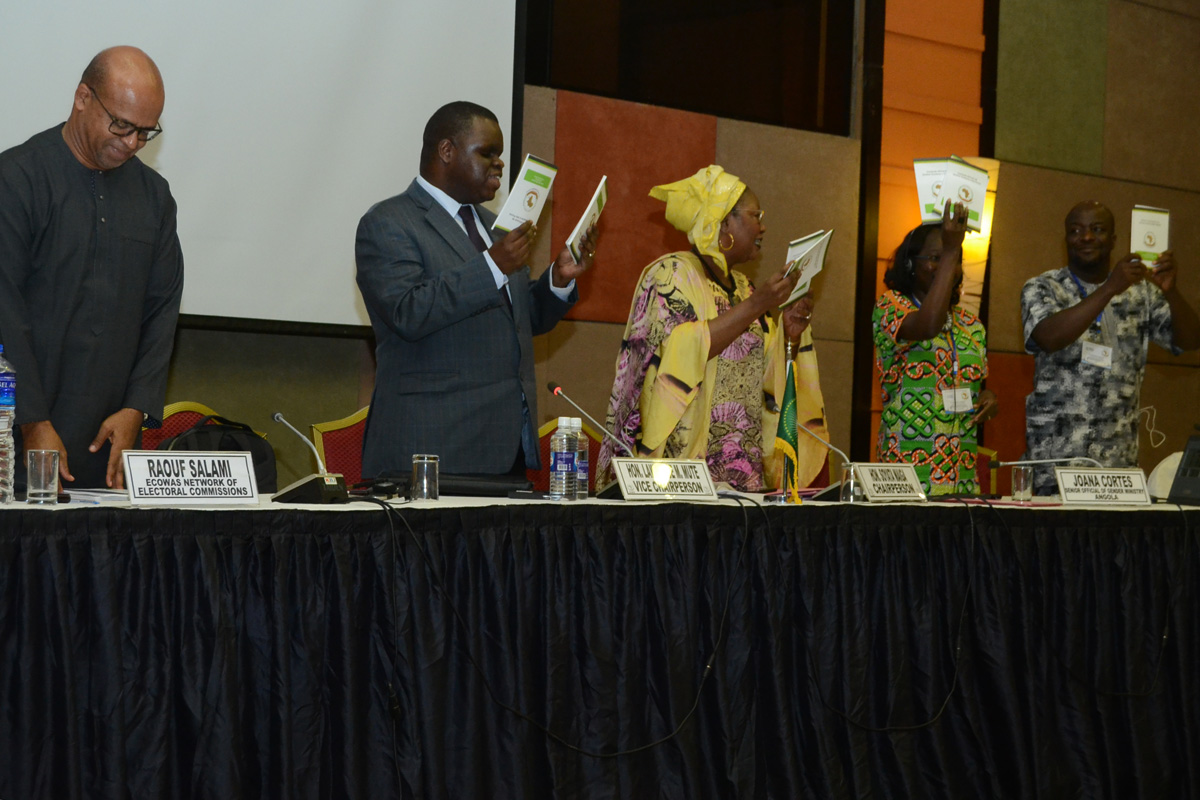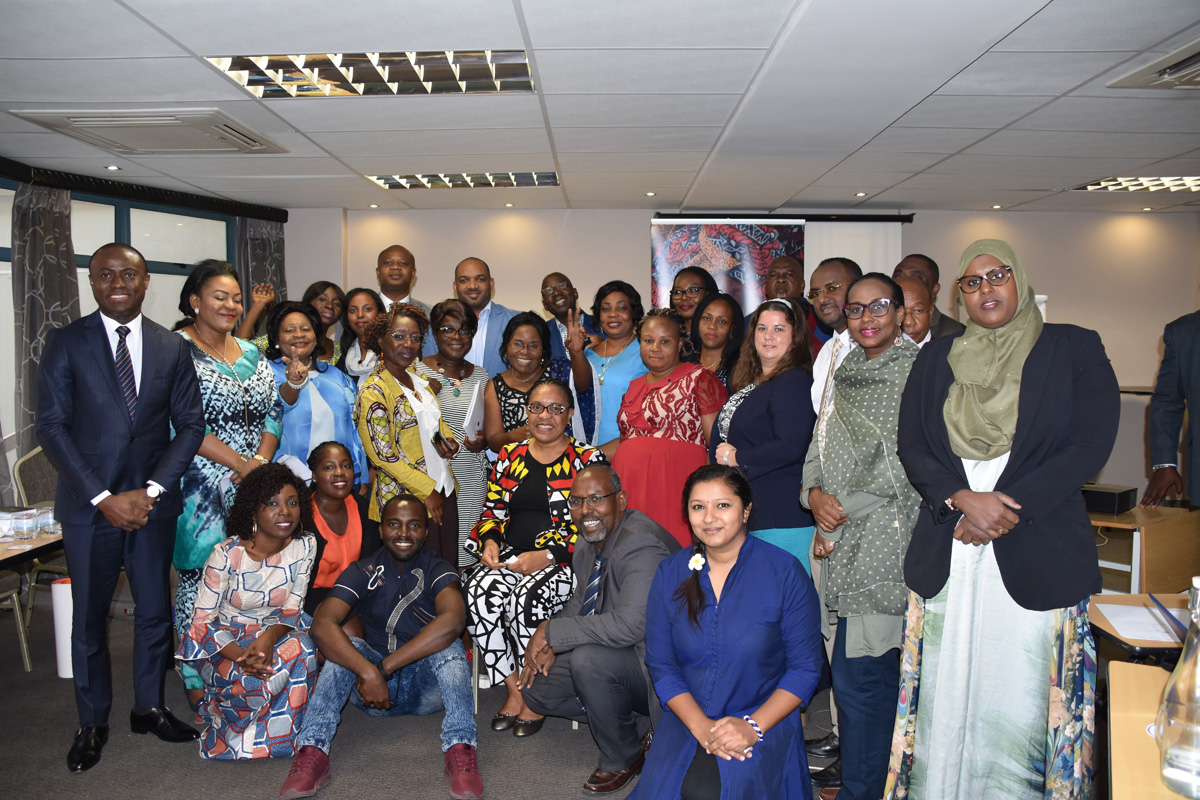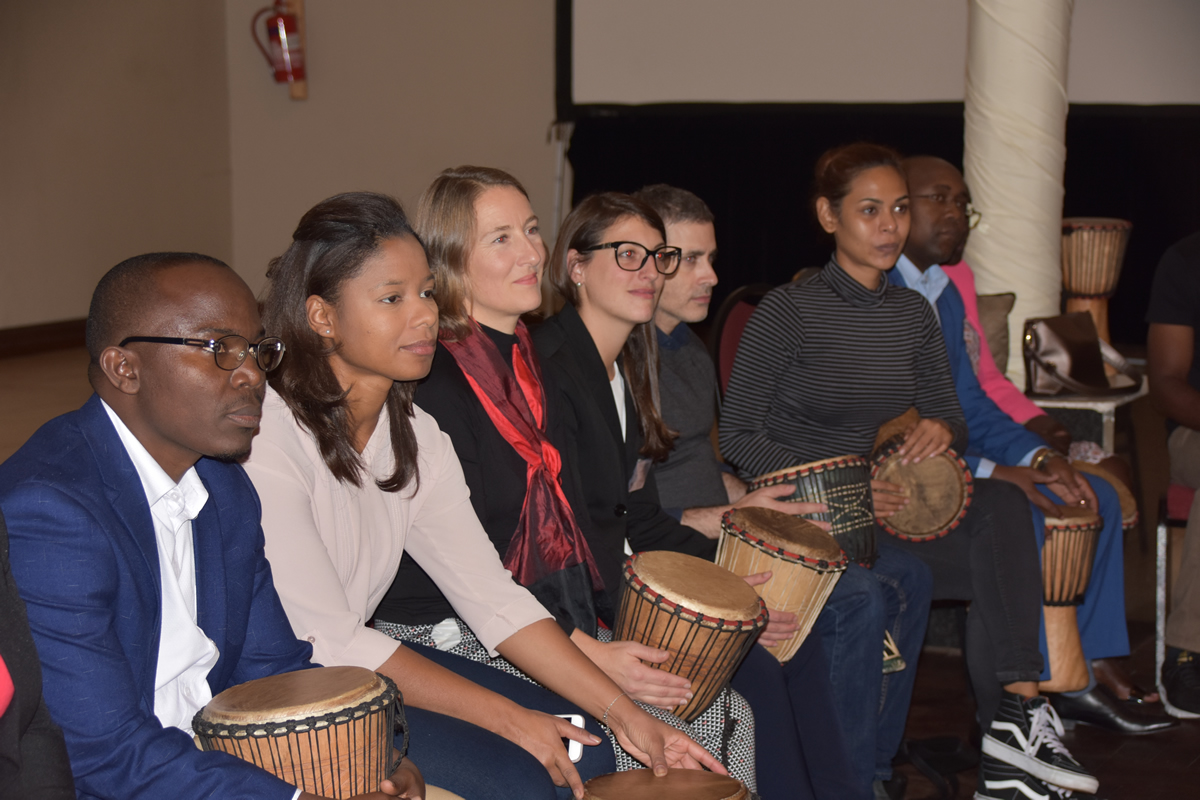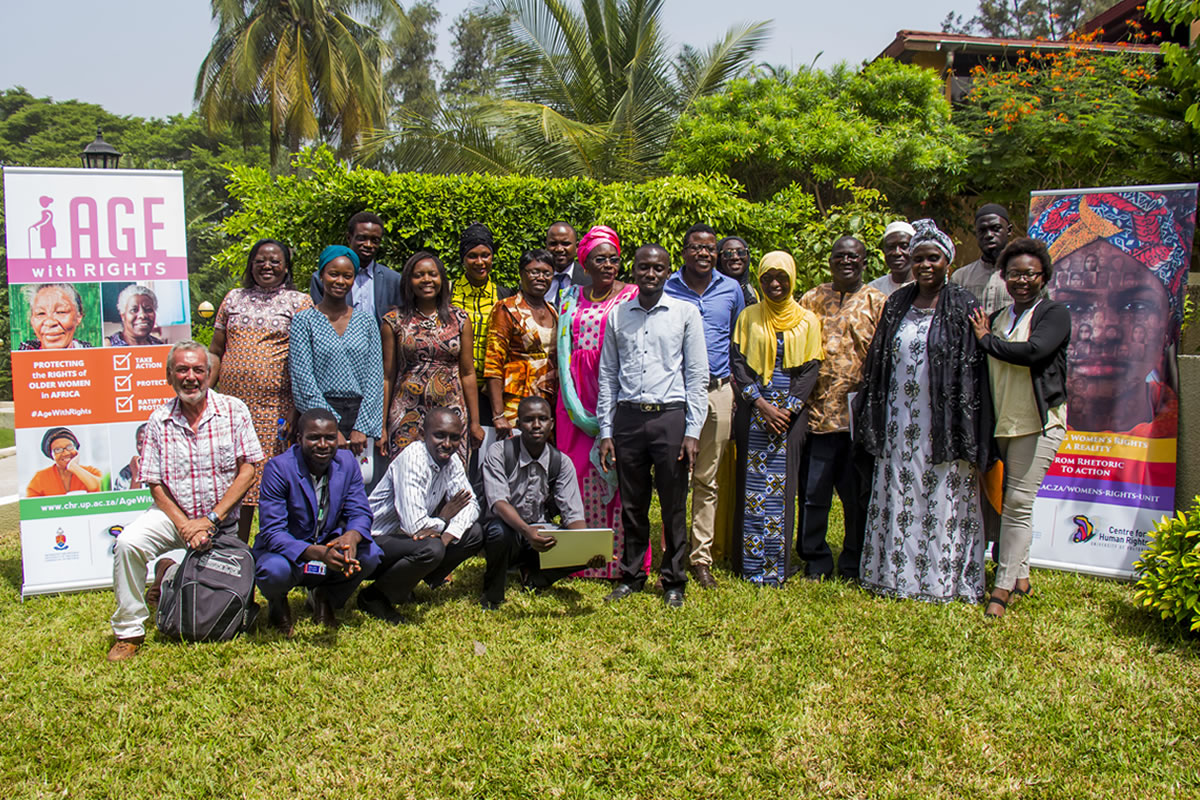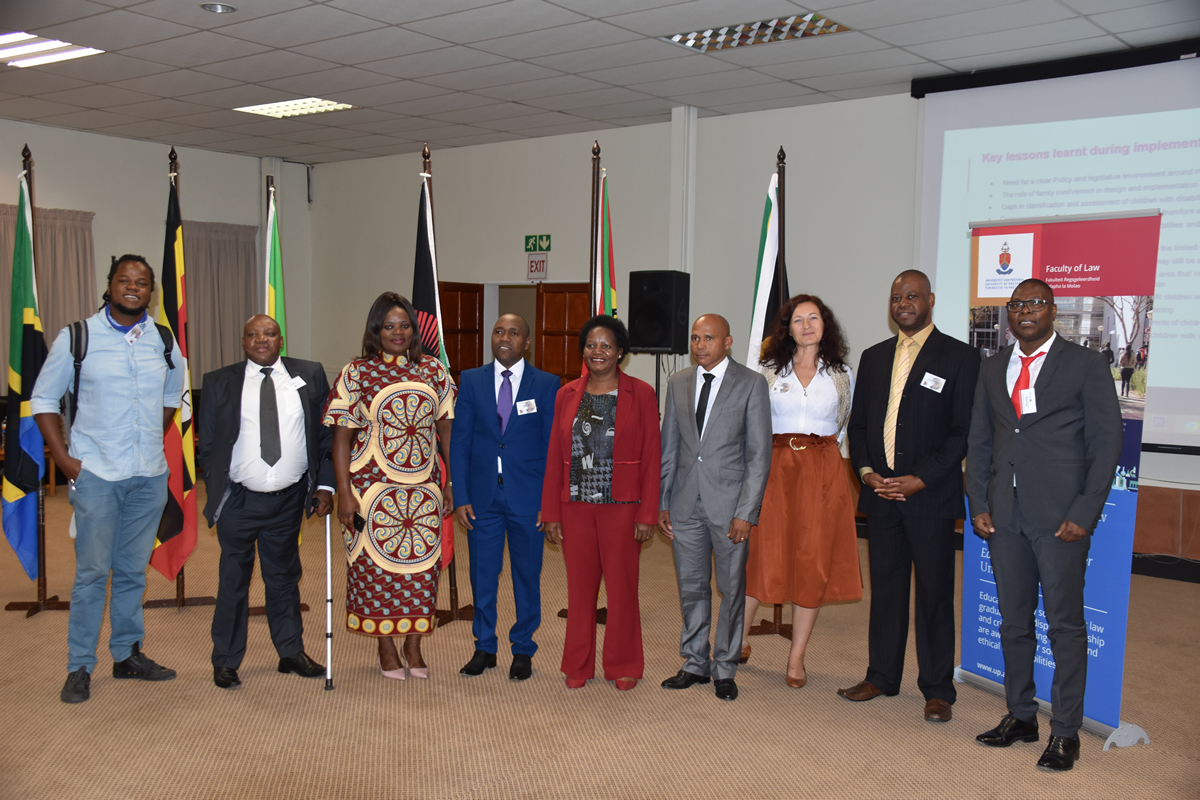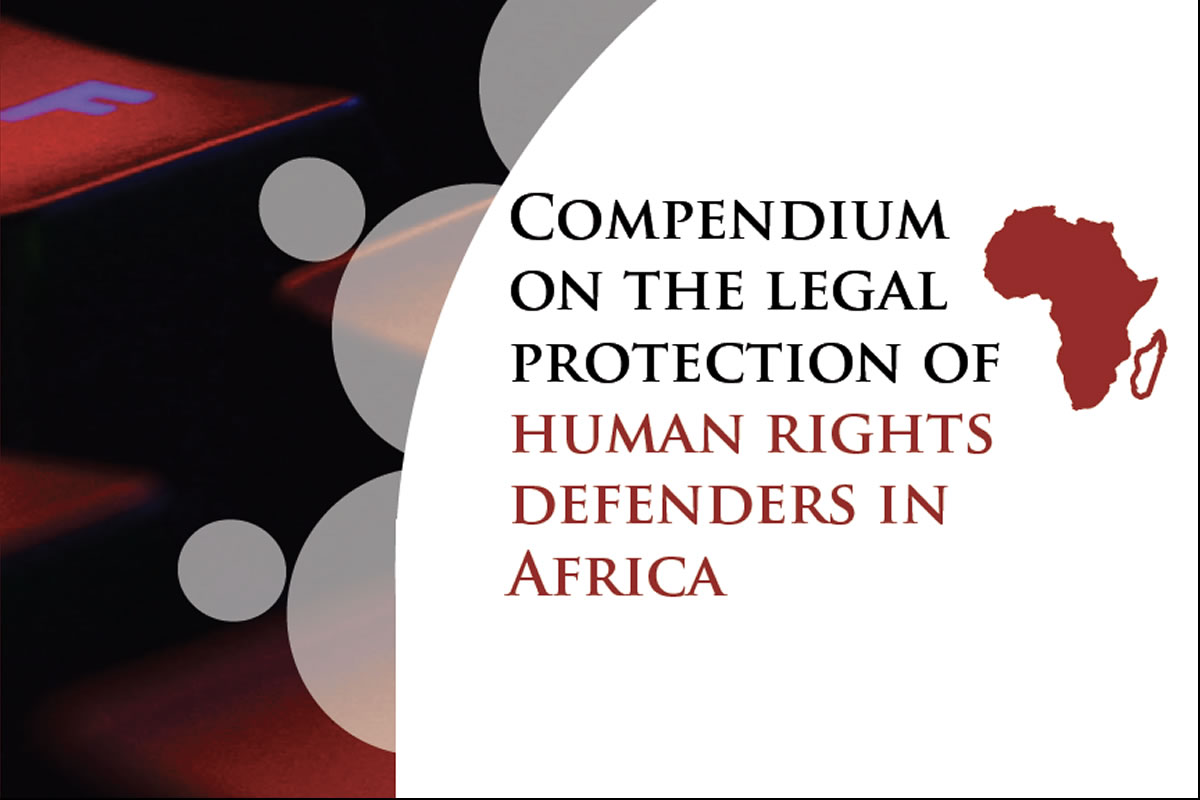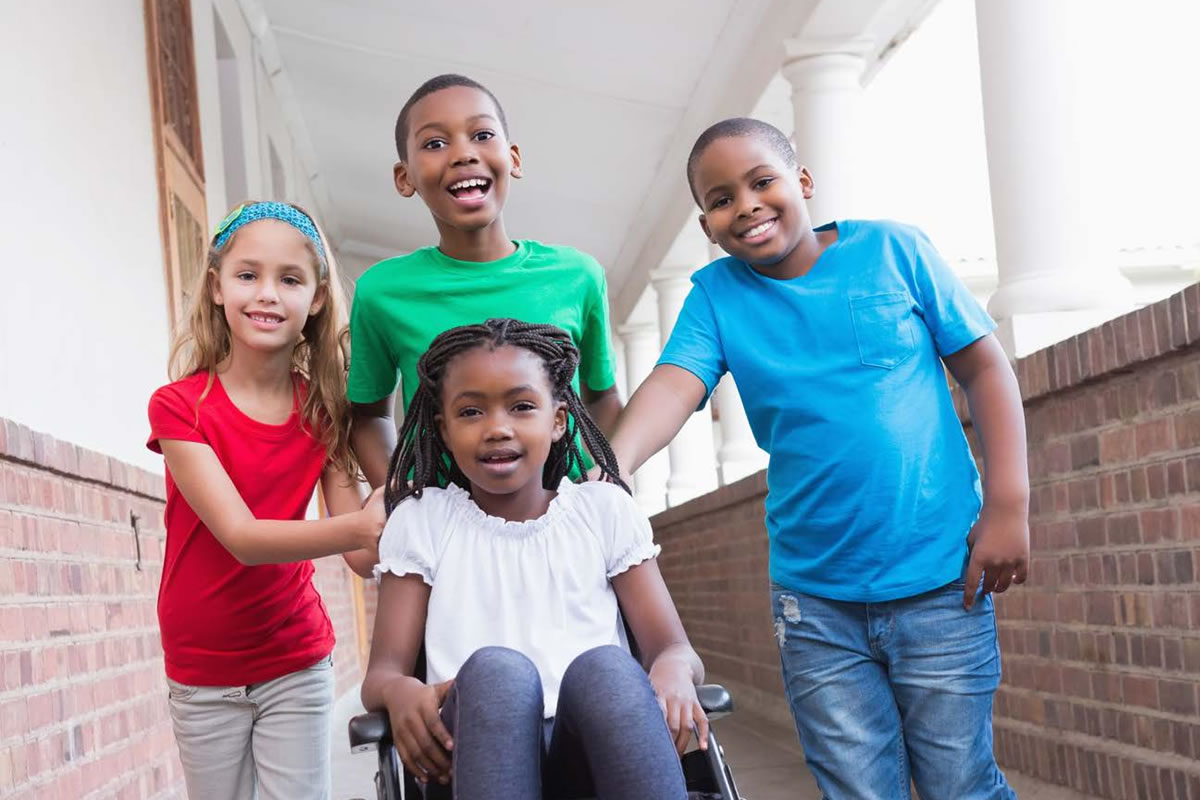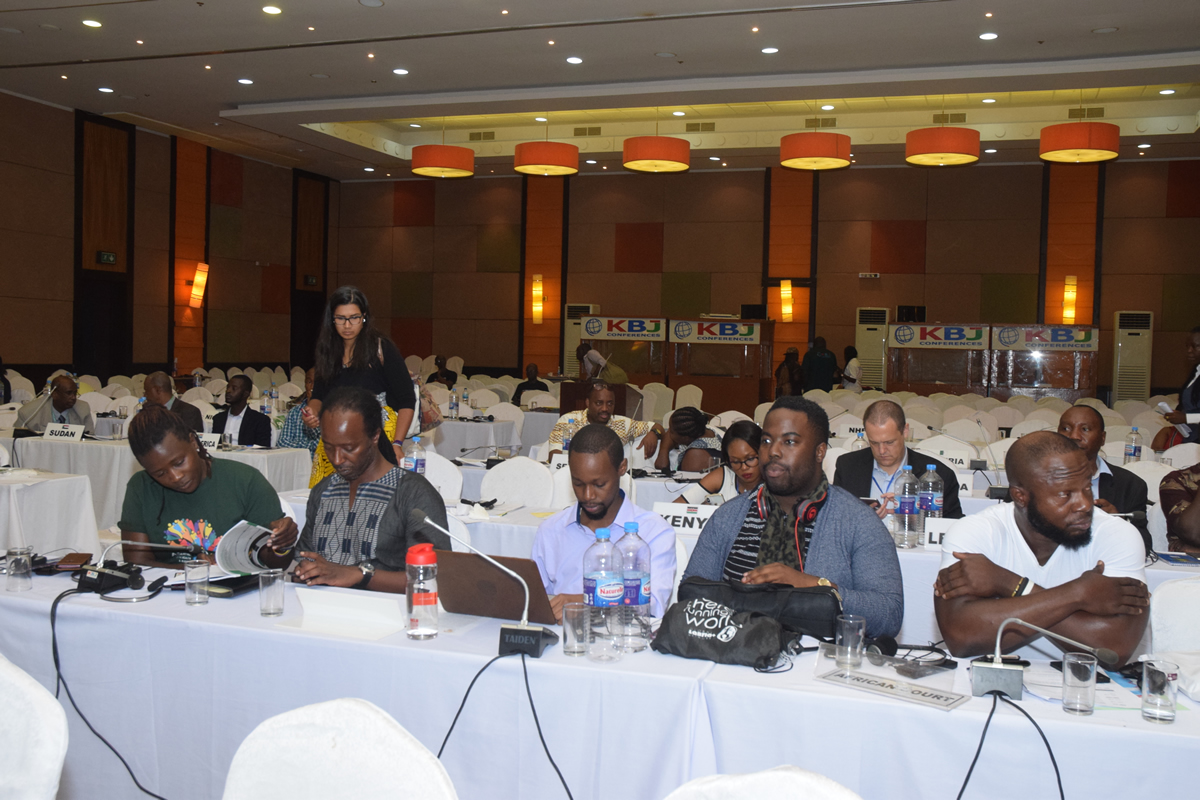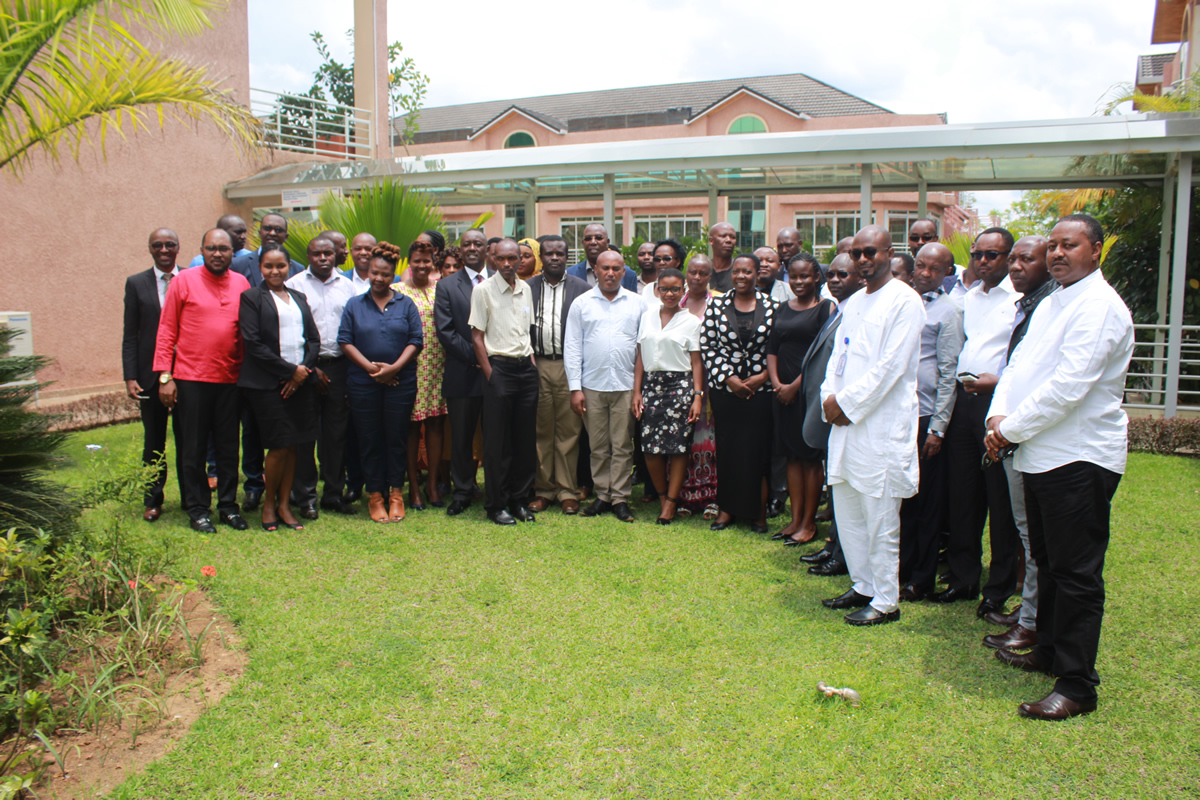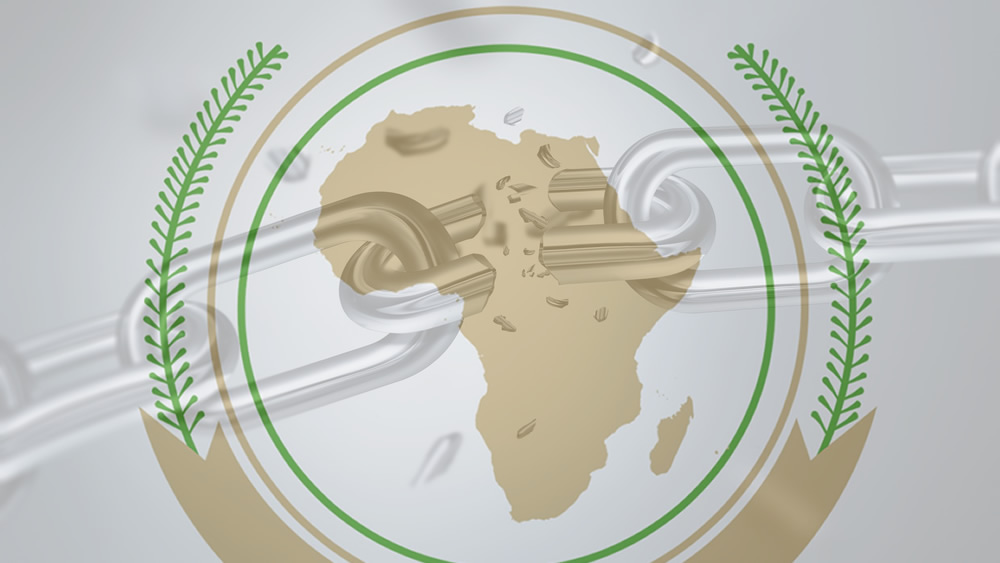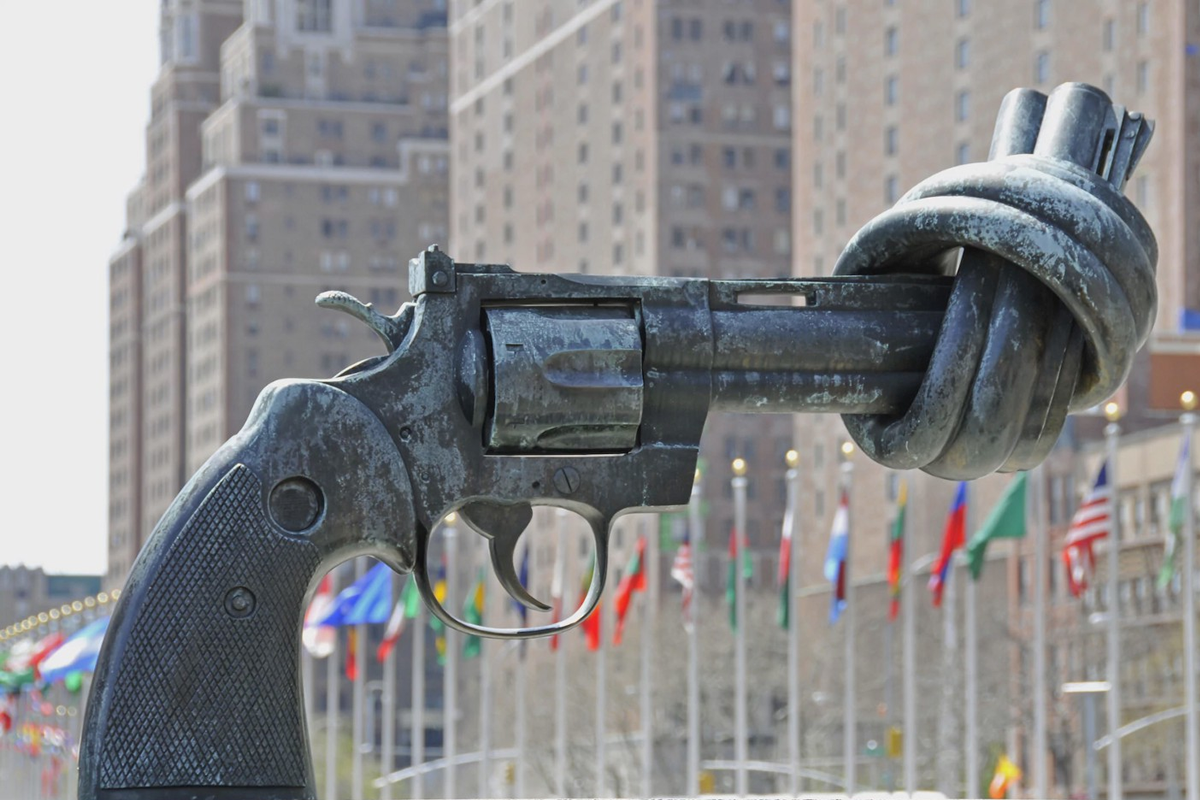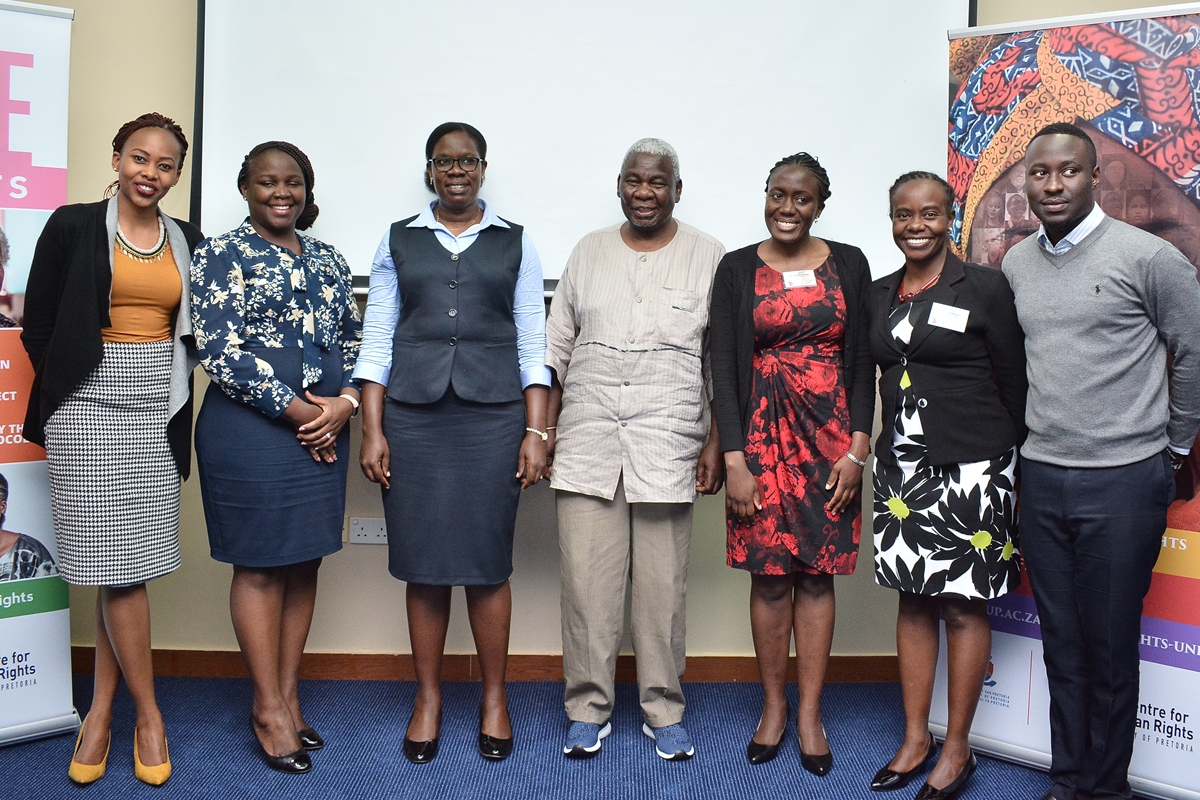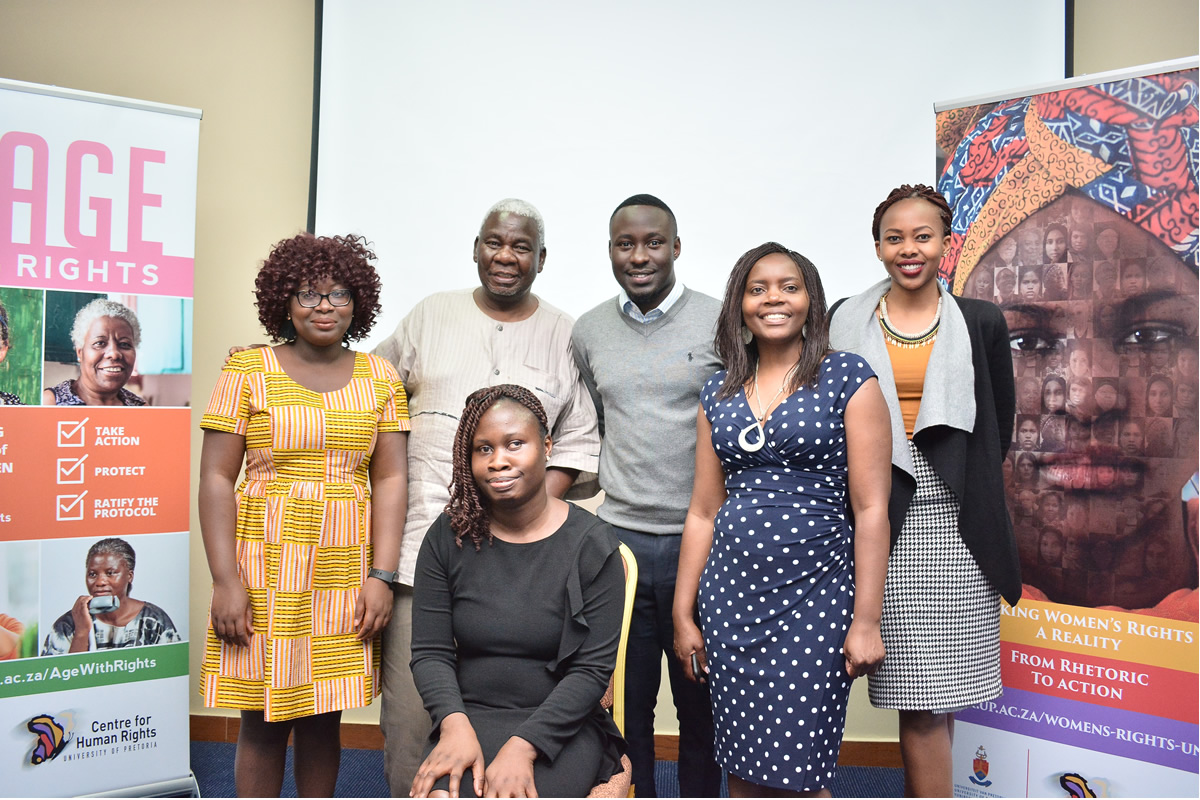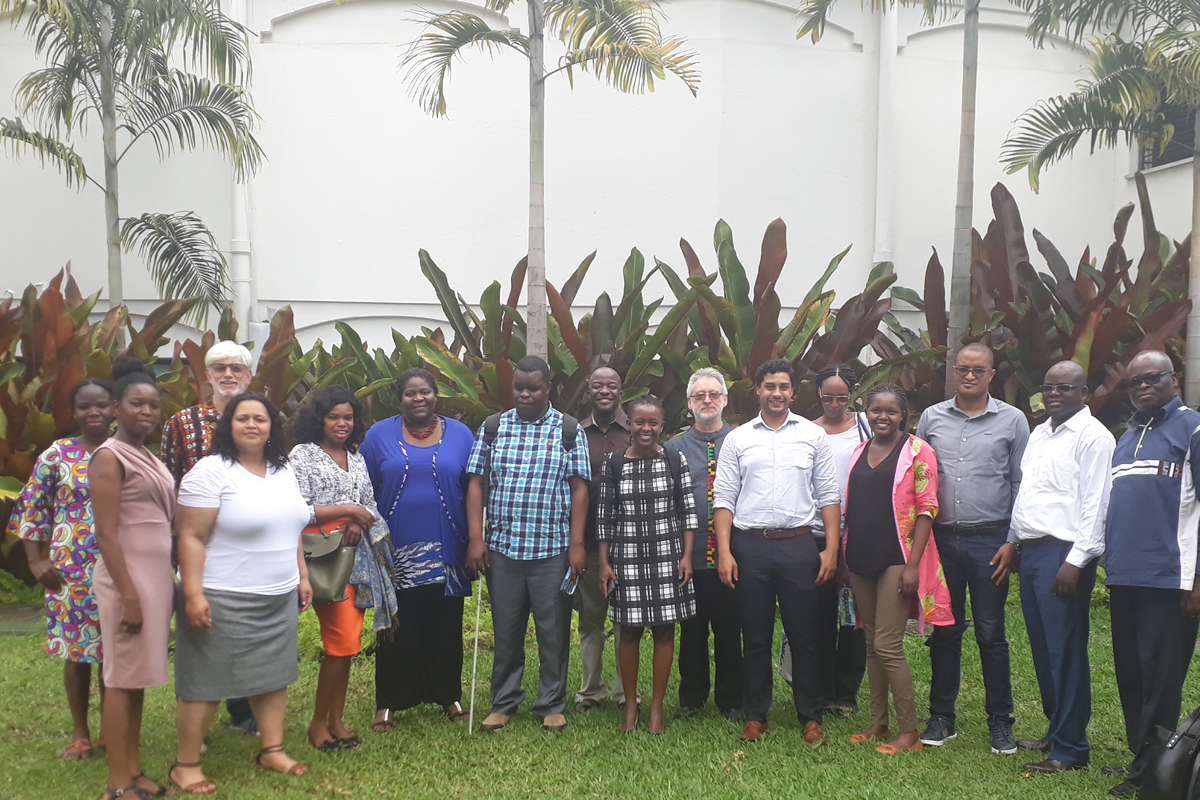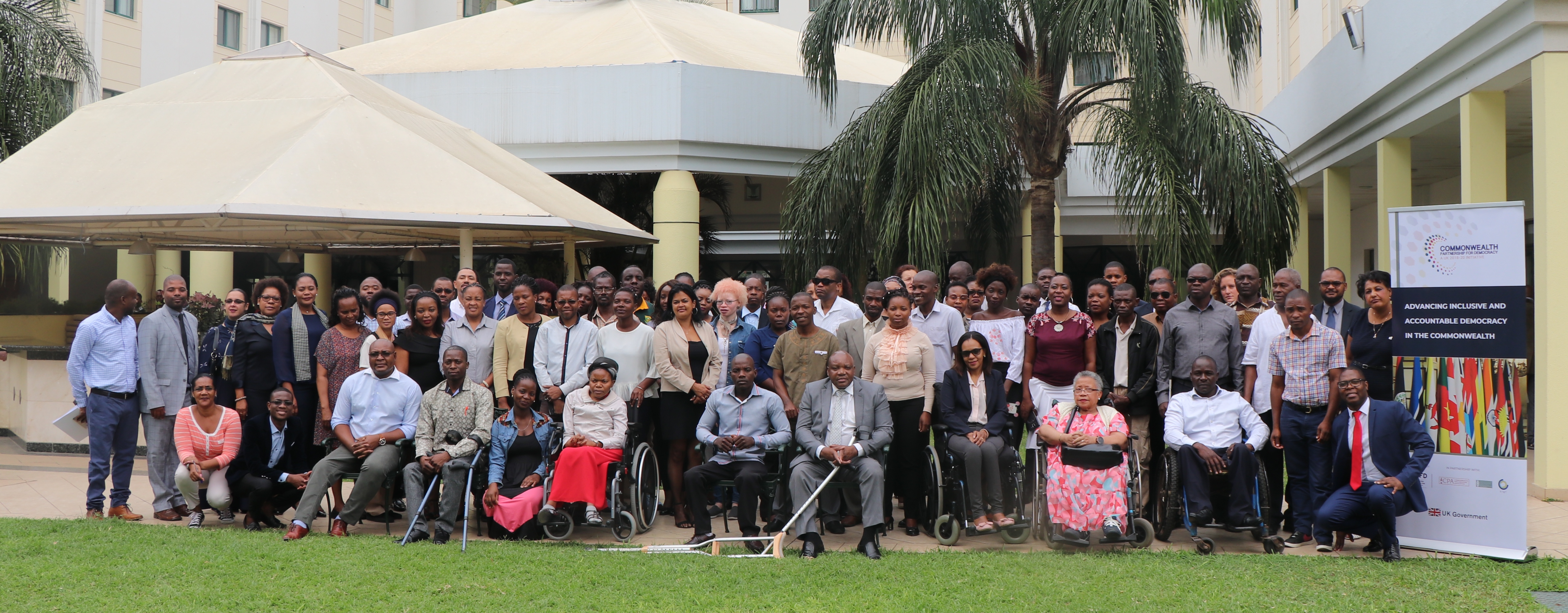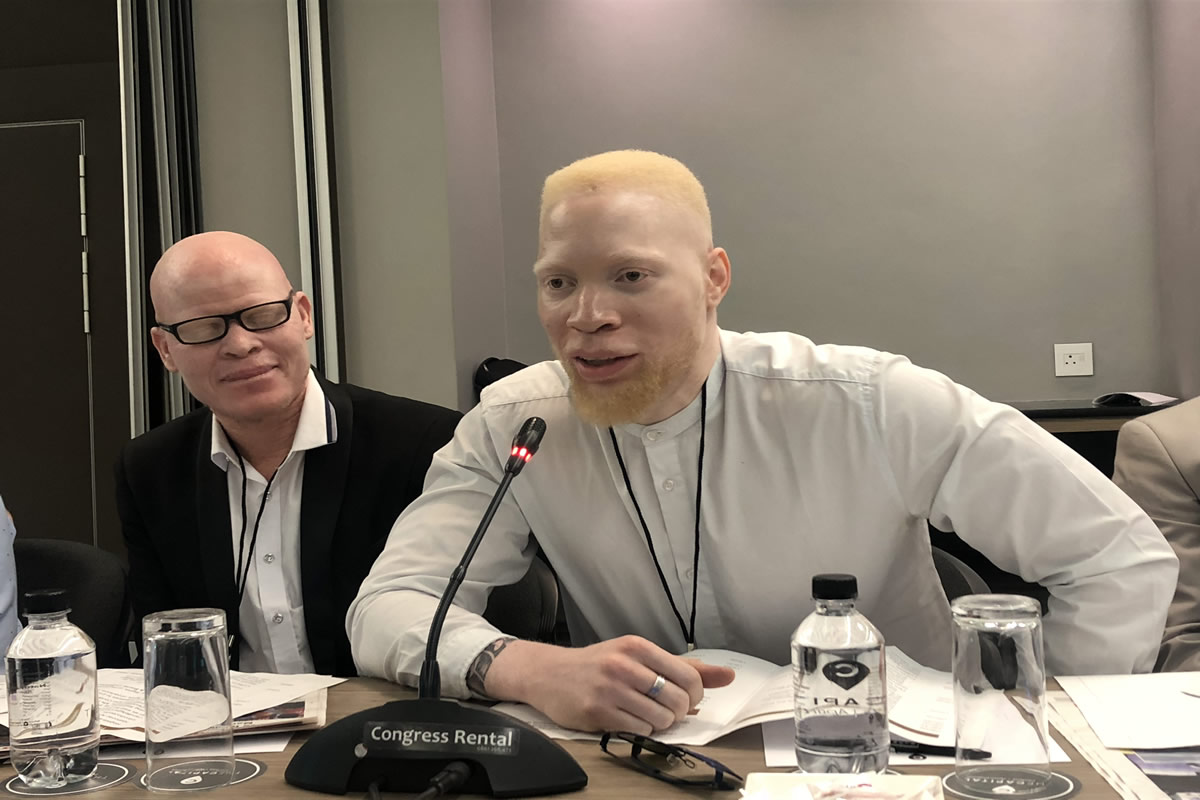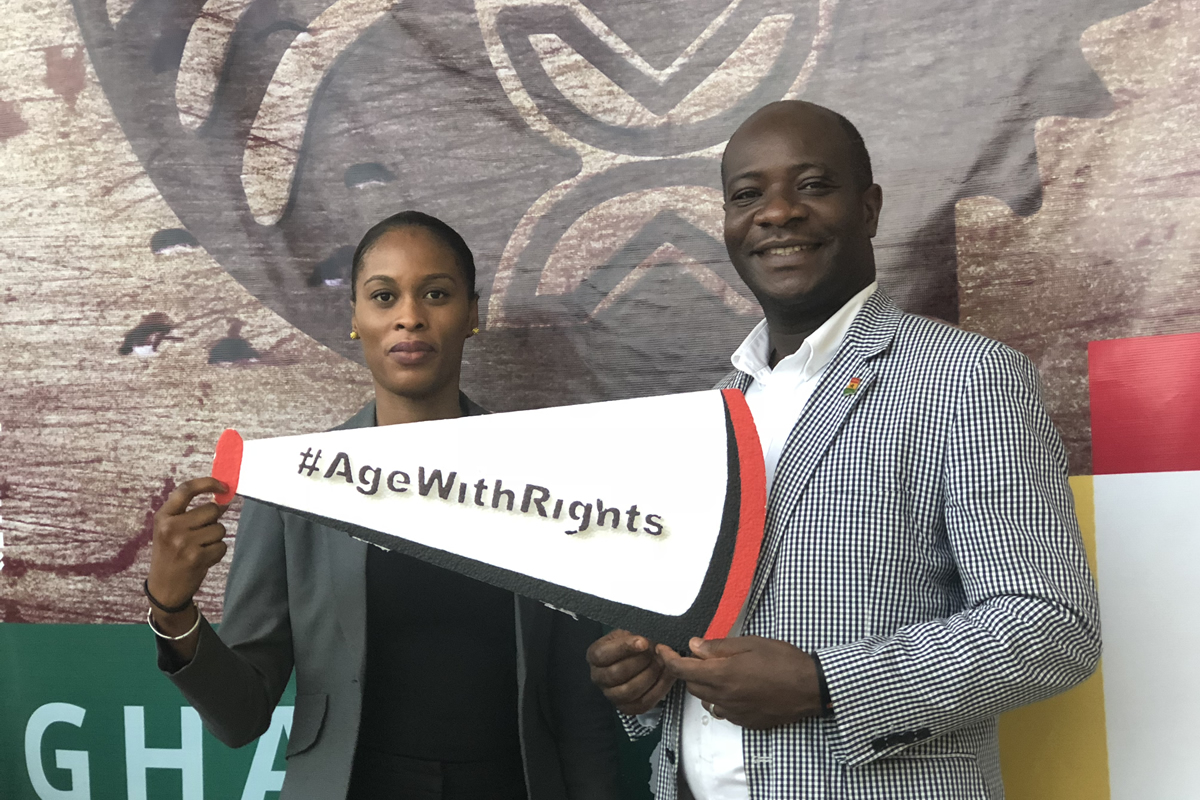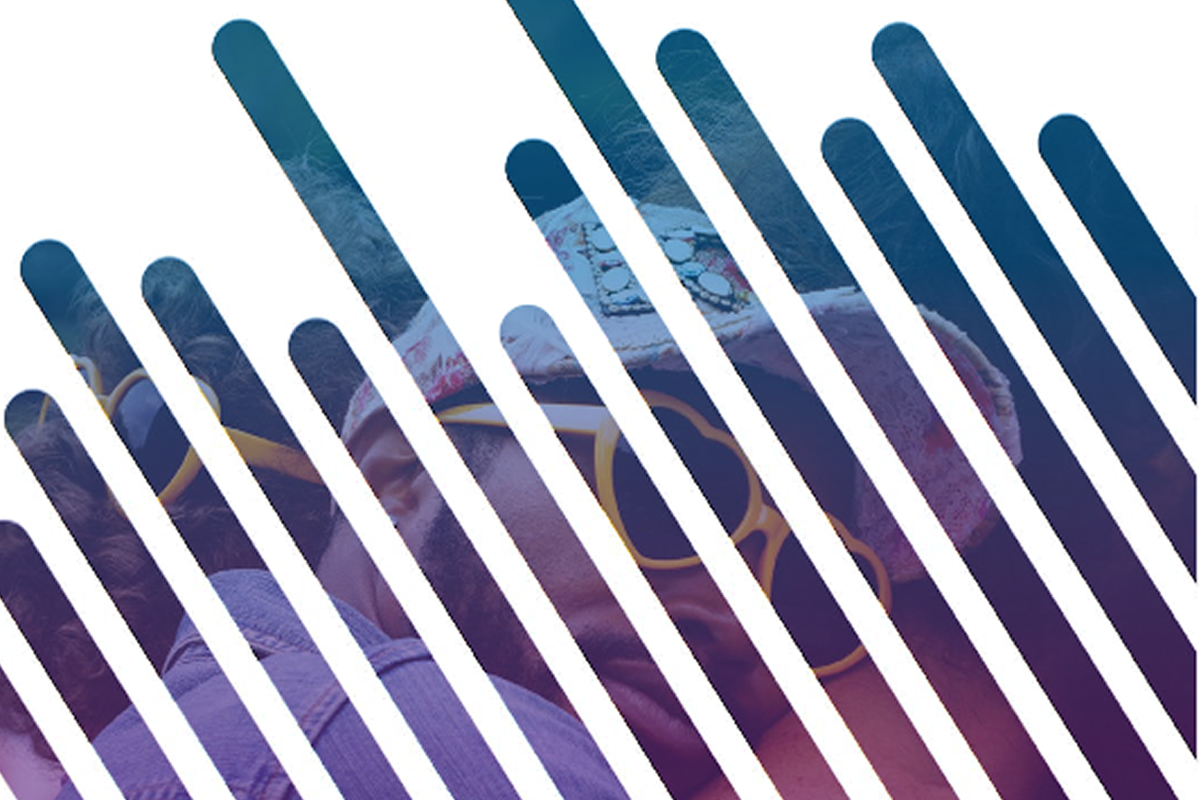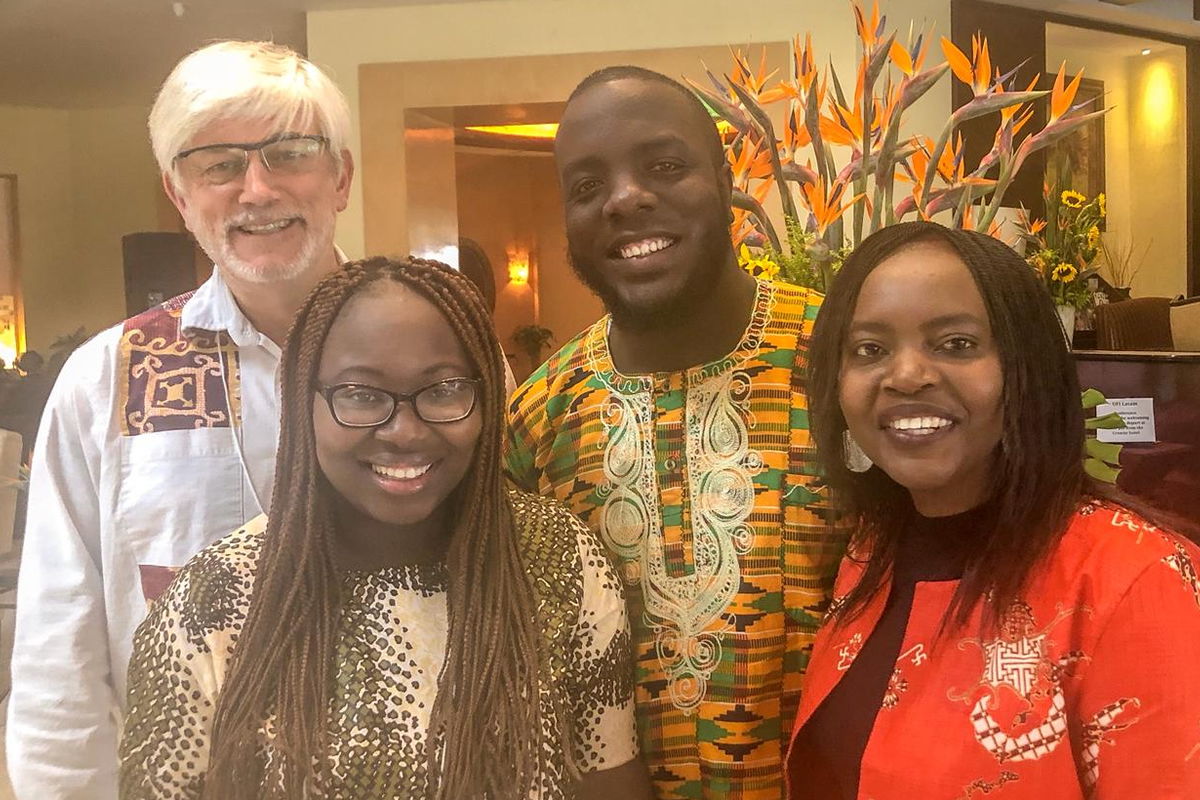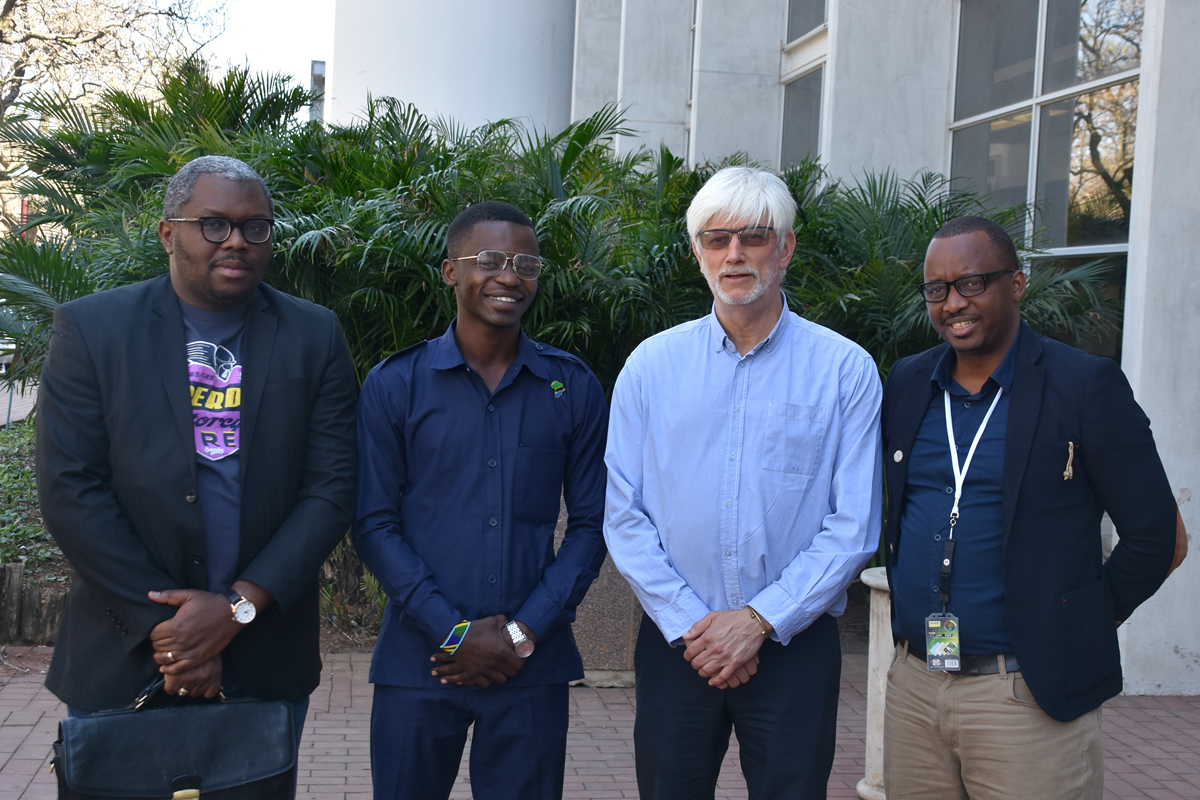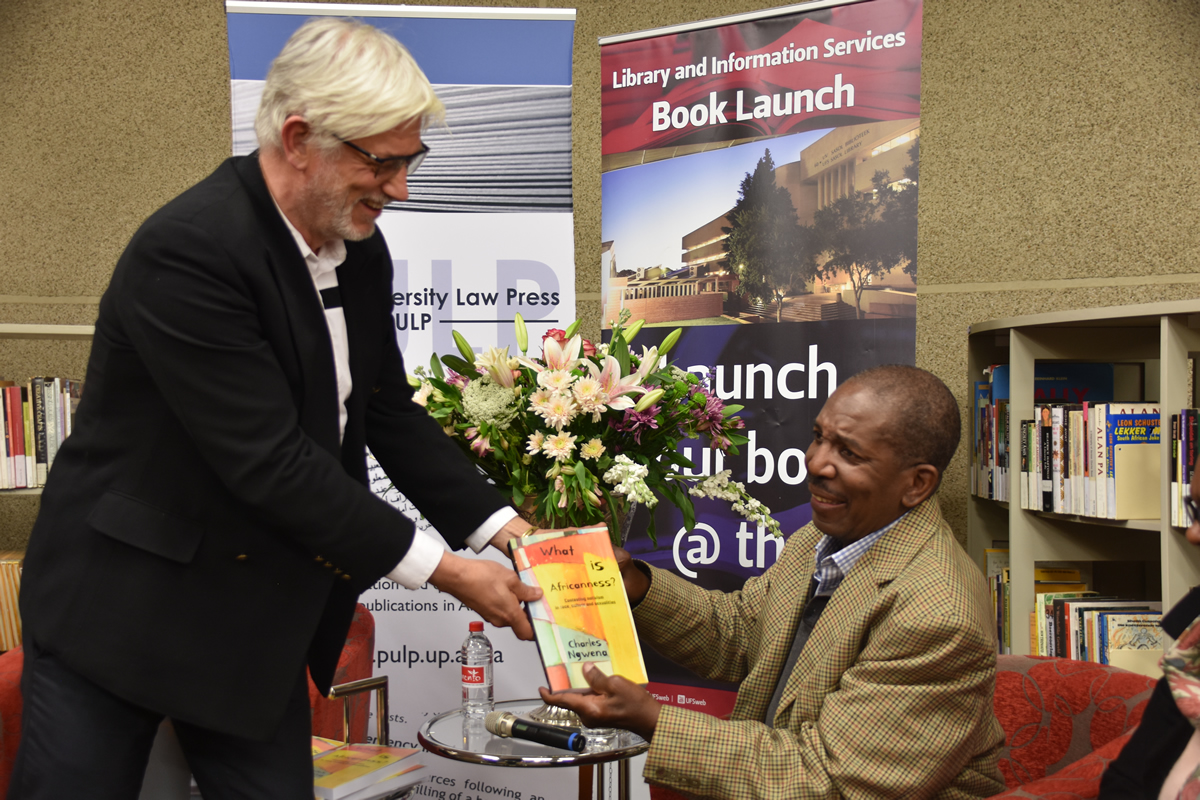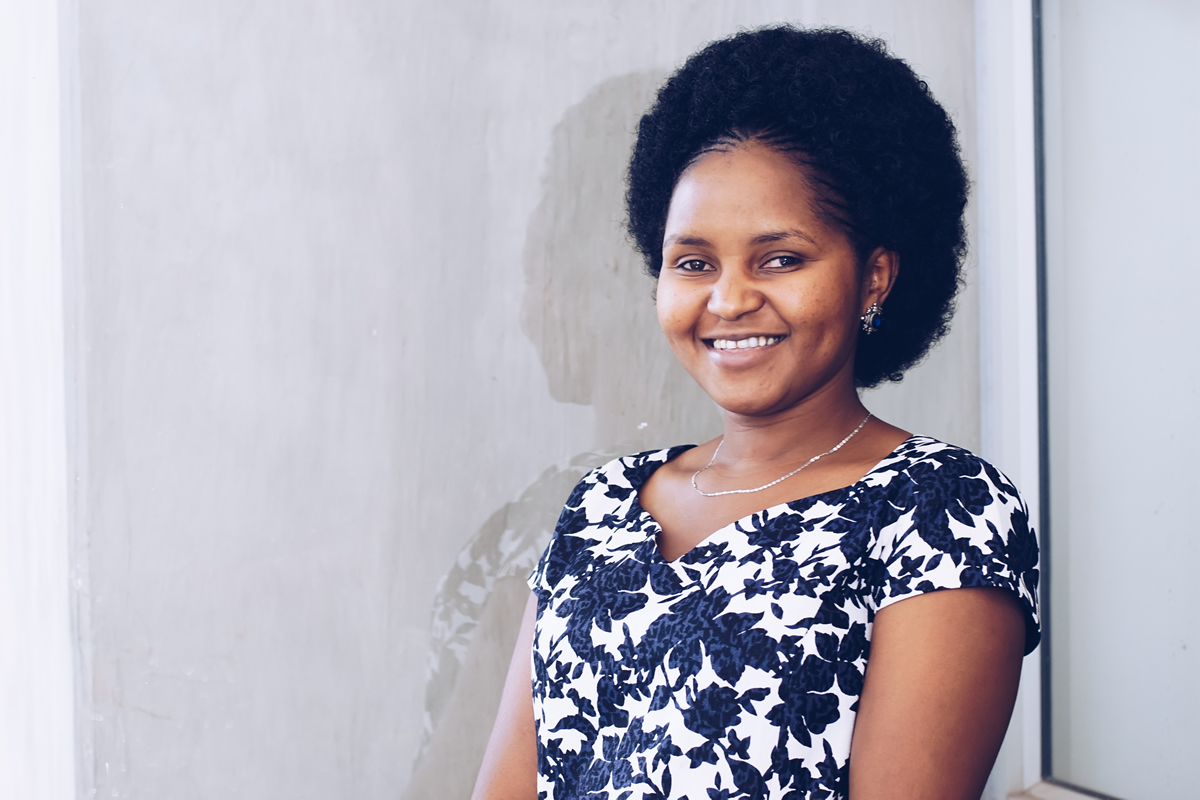- Details
As the world commemorates World Press Freedom Day, it is sad to note that Africa is yet to fully enjoy press freedom as several developments curtail the enjoyment of press freedom provided under article 9 of the African Charter on Human and Peoples’ Rights (the Charter). The continued presence of defamation, secrecy, insult laws and the overly stringent regulation of the internet which impede freedom of speech are causes for concern.
- Details
The Centre for Human Rights, University of Pretoria is seeking to recruit an experienced consultant with knowledge of human rights, particularly women’s rights and familiarity with the African Human Rights framework. The consultant is expected to develop a State Party report to the African Commission on Human and People’s Rights (African Commission), which comprises Part A on the African Charter on Human and People’s Rights (African Charter) and Part B on the Protocol to the African Charter on Human and Peoples’ Rights on the Rights of Women in Africa (Maputo Protocol) for Liberia.
- Details
The African Commission on Human and Peoples’ Rights’ Special Rapporteur on Freedom of Expression and Access to Information in Africa has launched the public consultation process of revising the 2002 Declaration of Principles on Freedom of Expression in Africa (the Declaration), during the African Commission’s 64th Ordinary Session in Sharm el-Sheikh, Egypt.
- Details
It’s Workers Day. What should ordinarily be a working day, is a day off.
It is a day to honour those who keep bread on the table, who sacrifice much to hold the body and soul of households together. It is an occasion to salute those who wake up in the dark of the early morning to travel long distances to provide a service as a means to an end: basic survival.
- Details
The periodic report of Egypt is scheduled to be examined during the 64th ordinary session of Commission on Human and Peoples' Rights, which takes place in Sharm El-Sheik, Egypt, in April/ May 2019. The Centre for Human Rights has compiled a 'shadow report', which highlights some areas of concern, identifies some questions that could be taken up with the Egyptian delegation, and suggests some recommendations to the state.
- Details
Statement by the Centre for Human Rights, Faculty of Law, University of Pretoria (NGO enjoying observer status) to the African Commission on Human and Peoples’ Rights, at its 64th Ordinary Session, Sharm El-Sheikh, Egypt, on 26 April 2019, on the situation of human rights in Africa.
- Details
On Sunday 28 April 2019, the Special Rapporteur on the Rights of Women in Africa (SRRWA), Commissioner Lucy Asaugbor hosted a panel discussion on State Reporting Obligations and Guidelines to Reporting under the Maputo Protocol which the Centre participated in during the 64th ordinary session of the African Commission on Human and Peoples' Rights which is currently been held in Sharm El Sheikh, Egypt from 24 April to 14 May 2019.
Commissioner Asaugbor noted that only a handful of states parties have actually fulfilled their reporting obligations. In particular, and dishearteningly, only 13 out of the 40 states parties which include Angola, Burkina Faso, Democratic Republic of Congo, The Gambia, Lesotho, Malawi, Mauritania, Namibia, Nigeria, Rwanda, Senegal, South Africa and Togo have included a section on the Maputo Protocol in their state reports. She acknowledged and commended The Gambia and Lesotho being the latest states parties to fulfil this obligation. She noted the need to popularise the Reporting Guideline on the Maputo Protocol adopted by the Commission in 2009, as well as, the importance of the state reporting process in which crucial information is received for giving an overview of the status of women and girls in Africa
- Details
The Centre for Human Rights, University of Pretoria, in collaboration with the Eswatini Ministry of Justice and Constitutional Affairs, organised a state party reporting workshop on the African Charter on Human and Peoples’ Rights (African Charter) and the Protocol to the African Charter on Human and Peoples’ Rights on the Rights of Women in Africa (Maputo Protocol). The workshop was held in Eswatini from the 15 to 17 April 2019.
- Details
On 23 April 2019, the Centre for Human Rights, University of Pretoria, in partnership with Living Stories & Memories, hosted a seminar on the legality of South Africa’s foreign policy towards the Republic of China (ROC)-Taiwan. The discussion centered on understanding the complexities of the policy shifts that have occurred towards ROC-Taiwan.
Centre for Human Rights enters into partnership with Center for Human Rights Science, Pittsburgh USA
- Details
The Centre for Human Rights, University of Pretoria, South Africa and the Center for Human Rights Science, Carnegie Mellon University, Pittsburgh USA have entered into a strategic partnership with the sole purpose of embarking on joint projects and academic activities that will foster human rights accountability through the use of technology.
This cross-continental partnership will also allow for a robust exchange of ideas, solutions, and approaches that will help the human rights community better prepared to tackle the challenges presented by rapid changes in technology.
- Details
This book project seeks to examine, clarify and unpack the nature, scope and practical implications of emerging business and human rights norms in international law. The project will create a platform for stakeholders, especially academics, corporate lawyers, and non-lawyers in business, economic and financial spheres, as well as government and policy leaders, community leaders, experts, researchers and academics, to discuss, debate and clarify how to support businesses in this emerging area.
- Details
The Centre for Human Rights, University of Pretoria, in partnership with Living Stories & Memories, cordially invites you to a Seminar on legality and South Africa’s foreign policy towards ROC-Taiwan.
- Details
De Jure Law Journal is currently making a call for papers from legal academics, practitioners and scholars within a broad legal spectrum.
- Details
The Centre for Human Rights, Faculty of Law, University of Pretoria, South Africa, is calling for applications for the Master's degree (LLM/MPhil) in Sexual Reproductive Rights in Africa (SRRA) for the Class of 2020. This degree is presented by the Centre for Human Rights, University of Pretoria. This two-year programme is offered as a blended learning course comprising of online interaction and residential block-weeks in Pretoria. Two contact sessions will be scheduled every year (four contact sessions over a period of two years).
- Details
The Centre for Human Rights, University of Pretoria, participated in a consultative meeting with United Nations (UN) Special Rapporteur Clément Voule, in Nairobi, Kenya on 21 and 22 February 2019. The meeting was organised by the International Center for Not-for-Profit Law (ICNL), the Collaboration on International ICT Policy for East and Southern Africa (CIPESA) and the Kenyan Civil Society Reference Group. Civil society organisations from Benin, Burundi, Cameroon, the Democratic Republic of the Congo, Ethiopia, The Gambia, Ghana, Kenya, Malawi, Nigeria, Rwanda, Sierra Leone, South Africa, Tanzania, Togo, Uganda, Zambia and Zimbabwe participated in the meeting. They deliberated on the rights to freedom of association and assembly in the digital age, identified threats to civic space in the digital era and proposed strategies to counter those threats. The meeting was part of the interactive consultations that the UN Special Rapporteur has been undertaking with stakeholder to contribute to his report on protecting freedoms of association and assembly in the digital era.
- Details
On 21 March 2019, the Centre for Human Rights, University of Pretoria, participated in the Media and Elections Regional Meeting (Southern Africa) which was organised by the Media Alliance of Zimbabwe in Johannesburg. The meeting was aimed at sharing lessons and experiences of the media’s role during elections in Southern Africa, with a view to strengthening advocacy for media freedom, access to information and freedom of expression in the region. To gain a critical understanding of the recently adopted Southern Africa Development Community Parliamentary Forum (SADC PF) Model Law on Elections, the meeting was attended by representatives from the media and civil society organisations from Malawi, Swaziland, South Africa, Mozambique, Botswana, and Zimbabwe.
- Details
The Special Rapporteur on Freedom of Expression and Access to Information in Africa, Commissioner Lawrence Mute, undertook an advocacy visit to Nigeria from 24 to 27 September 2018 to raise awareness on article 9 of the African Charter on Human and Peoples’ Rights which establishes the right to freedom of expression and access to information. Specifically, the Special Rapporteur sought to evaluate the implementation of the Freedom of Information Act (FOIA) that Nigeria adopted in 2011. He met relevant stakeholders in the access to information sector to understand the circumstances and challenges around the implementation of Nigeria’s Freedom of Information Act. Subsequent to this visit, the Special Rapporteur prepared an Advisory Paper and compiled recommendations on how the government and other stakeholders in Nigeria can fully implement the freedom of information law.
- Details
On 3 April 2019, the Centre for Human Rights, University of Pretoria, in partnership with Sandblast-Arts, Defense Forum Foundation, Africa Solidarity for Sahrawi, Western Sahara Campaign and Western Sahara Action Forum, hosted a debriefing on the Sahrawi Arab Democratic Republic (Western Sahara). The discussion centred on issues of decolonisation, self-determination for the Sahrawi people, and Morocco’s exploitation of the Sahrawi Republic’s natural resources.
- Details
The Centre for Human Rights, University of Pretoria, recently launched an online repository containing domestic laws on the use of force by law enforcement officials worldwide. This valuable resource now covers the laws of 200 countries worldwide.
- Details
Africa Rights Talk is a Centre for Human Rights podcast exploring human rights through conversations with academics, practitioners and activists.
- Details
The human rights movement: A truly universal system?
In conversation with Prof Makau Mutua
The fight for the protection of human rights is a global phenomenon, yet the claim to universality of the current human rights system is sometimes questioned.
- Details
A weakened African human rights system?
Conversation with Prof Frans Viljoen
- Details
Engaging the African Commission on sexuality matters
Conversation with Mr Berry Nibogora
- Details
On 28 and 29 March 2019, the Centre for Human Rights, University of Pretoria, participated in the third technical drafting meeting of revising the Declaration on Principles of Freedom of Expression and Access to Information in Africa (the Declaration). The meeting, held in Mombasa, Kenya, was organised under the auspices of the Special Rapporteur on Freedom of Expression and Access to Information in Africa (Special Rapporteur). The Special Rapporteur is undertaking the initiative to revise the Declaration which was adopted by the African Commission on Human and Peoples’ Rights (African Commission) in 2002 against the backdrop of the African Commission Resolution 362, Resolution 350 and Resolution 222. The resolutions gave the Special Rapporteur the mandate to revise the Declaration, include access to information and internet related issues as they apply to article 9 of the Charter.
- Details
The Centre for Human Rights, University of Pretoria and the University of Botswana, Gaborone are pleased to announce a one-day conference on protecting persons forcibly displaced in Africa and hereby invite proposals for papers. The conference will be held as part of the 28th African Human Rights Moot Court Competition.
- Details
The Centre for Human Rights, University of Pretoria, in partnership with Sandblast-Arts, Defense Forum Foundation, Africa Solidarity for Sahrawi, Western Sahara Campaign and Western Sahara Action Forum cordially invite you to a Debriefing on the Sahrawi Republic: Human Rights and Recent Developments.
- Details
The Centre for Human Rights hosted the Advanced Human Rights Course on Disability Rights in an African context from 11 – 15 March 2019. The course was organised by the Centre’s Disability Rights Unit, in collaboration with the Advanced Human Rights Courses (AHRC).
The course was attended by over 60 participants from 20 African countries. The participants included students on the LLM/MPhil (Disability Rights in Africa) and LLM/MPhil (Human Rights and Democratisation in Africa) programmes, doctoral candidates, practitioners working with persons with disabilities, human rights activists, government officials, judicial officers, civil society members and academia.
- Details
The Centre for Human Rights hosted the Advanced Human Rights Course on Women’s Rights in Africa from 25 – 29 March 2019. The course was organised by the Women’s Rights Unit, in collaboration with the Advanced Human Rights Courses (AHRC).
The course was attended by over 60 participants, from 24 different countries, 20 of which were African. Among the participants were the students on the Human Rights and Democratisation in Africa (HDRA) programme, PhD candidates, human rights activists, government officials, judicial officers, policy makers and academics.
The methodology used on the advanced course was based on two approaches: on one hand, presentations which consisted of a theoretical dispensation of important themes on the rights of women, and on the other hand, exercises and discussion points which aimed at enriching the practical examples and assimilated theories.
- Details
The African Court on Human and Peoples’ Rights, the African Commission on Human and Peoples’ Rights, and the African Committee of Experts on the Rights and Welfare of the Child are pleased to announce the call for papers for the third volume of the African Human Rights Yearbook (AHRY).
- Details
The Centre for Human Rights (the Centre) congratulates the National Gay and Lesbian Human Rights Commission (NGLHRC) of Kenya and its leadership upon winning the Court of Appeal case, in which the Kenya Non Government Organisations Coordination Board appealed the decision of the Kenya High Court to allow NGLHRC to register under the Kenya Non Government Organisations Coordination Act. The Court of Appeal delivered its decision on Friday 22 March 2019.
- Details
As South Africa celebrates 25 years of democracy in 2019, we are reminded of our history of struggle against oppression and tyranny through important national days like Human Rights Day.
- Details
(By Thiruna Naidoo)
In 1966, the United Nations General Assembly adopted Resolution 2142 (XXI), which proclaimed 21 March as the International Day for the Elimination of Racial Discrimination. This day commemorates the horrific events that took place in Sharpeville, South Africa in 1960. It is also a national day commemorated annually to remind South Africans about the sacrifices that accompanied the struggle for the attainment of democracy in South Africa. On 21 March 1960, police opened fire and killed 69 people at a peaceful demonstration against the racially discriminating apartheid ‘pass laws’. This was a gross violation of human rights.
- Details
On Monday 18 March 2019 the Centre for Human Rights, University of Pretoria (UP), welcomed the 2019 cohort of its Master’s degree students. The Centre’s 2019 Master’s programmes brings together 91 students from 28 countries across the African continent in order to further their postgraduate studies in human rights and related fields.
- Details
From 10 to 13 March 2019, the International Conference of Information Commissioners (ICIC2019) was held in Midrand, South Africa, to discuss ways in which to strengthen access to information internationally. The following statement provides an overview of the conference proceedings.
- Details
Statement delivered by the Centre for Human Rights, University of Pretoria at the 33rd Ordinary Session of the African Committee of Experts on the Rights and Welfare of the Child.
(18 March 2019, Addis Ababa, Ethiopia)
- Details
The Centre for Human Rights, Faculty of Law, University of Pretoria, South Africa, is calling for applications for the Master's degree (LLM/MPhil) in Human Rights and Democratisation (HRDA) for the Class of 2020. This prestigous degree is presented by the Centre in partnership with 12 leading African universities.The programme forms part of the Global Campus of Human Rights, with Pretoria as the hub of the African regional programme.
- Details
Mr Norman Taku, who worked with the Centre for Human Rights in various capacities over a period of more than two decades, and ultimately as Assistant Director of the Centre, has left the employ of the Centre, and the University of Pretoria.
- Details
On 4 March 2019, the Disability Rights Unit of the Centre for Human Rights (Centre), University of Pretoria, in collaboration with the with the office of the UN Independent expert on the enjoyment of human rights by persons with albinism, hosted a workshop at the Pan-African Parliament (PAP) on the rights of persons with albinism in Africa.
- Details
(By Satang Nabaneh)
Around the world, 8 March is celebrated as International Women’s Day. It is a global day celebrating the achievements of women with a rallying call to action for accelerating gender parity.
- Details
You are cordially invited to Centre for Human Rights Master’s Programmes Welcoming Ceremony where 91 students from 28 African countries will be individually introduced.
- Details
The Global Campus of Human Rights recently launched its latest Massive Open Online Course (MOOC) on the monitoring of human rights of LGBTI persons. The MOOC is open to participants around the world who are actively interested and engaged in LGBTI work at different levels and wish to deepen their knowledge about relevant human rights legal frameworks, monitoring mechanisms, and strategies.
- Details
Is South Africa regularly denying children their right to access education as well as health care on the grounds either of petty bureaucracy or by a misinterpretation of the country’s laws and international obligations?
- Details
On so many levels, the last week of February 2019 was a risky leap for the Queer Space Collective, comprising the Centre for Human Rights and the Centre for Sexualities AIDS and Gender, University of Pretoria. It was the maiden edition of the Invitation: Pride and Letters - Queer Literary Festival. The Pride and Letters ran hand in glove with the Advanced Human Rights Course: Sexual Minority Rights 2019, weaving its content through a more narrative and intimate approach than is the tradition. The three themes addressed in the course of the week were: queer exploration; queer resistance and queer celebration. These days have been chronicled in the week’s diary.
- Details
The Advanced Human Rights Courses (AHRC) and the SOGIESC Unit are currently hosting the annual short course on Sexual Minority Rights in Africa. The maiden edition of the Pride & Letters Queer Literary Festival forms part of the week-long programme.
- Details
The Centre for Human Rights (the Centre), University of Pretoria, fully supports the campaign by the South African Department of Sports and Recreation, against the enforcement of the International Association of Athletics Federations (IAAF) regulations against hyper-androgenic women in sports. This follows an appeal against the regulations made to the Court of Arbitration for Sport (CAS) by Olympic champion Caster Semenya and Athletics South Africa (ASA). The appeal, which is before the CAS, will be concluded on 29 March 2019. The regulations violate the right to bodily autonomy, physical integrity, freedom from non-discrimination and other bioethical considerations.
- Details
The Women's Rights Unit at the Centre for Human Rights, University of Pretoria, is seeking to recruit 3 experienced consultants with knowledge of human rights, particularly women’s rights and familiarity with the African human rights framework. The consultants are expected to develop a State Party report to the African Commission on Human and People’s Rights (African Commission) on the African Charter on Human and Peoples’ Rights (African Charter) and the Protocol to the African Charter on Human and Peoples’ Rights on the Rights of Women in Africa (Maputo Protocol) for Eswatini, Mauritius and Liberia respectively.
- Details
(By Prof Frans Viljoen and Dr Ashwanee Budoo)
Egyptian President Abdel Fattah al-Sisi has been sworn in as the African Union’s chairman until January 2020. A new chair is selected annually from among the members of the African Union Assembly of Heads of State and Government, which is the union’s “supreme organ”.
AL-Sisi’s ascent to this powerful position, even if it’s just for 12 months, should concern anyone who is committed to human rights. The legitimacy of his claim to the Egyptian presidency is tenuous: he came to power in 2013 after staging a coup d’état that overthrew President Mohamed Morsi. That’s in contravention of the AU’s own rules; in fact, Egypt was suspended from the AU after the coup.
- Details
“Poor and vulnerable people are made into criminals for being poor and vulnerable.” – On World Day of Social Justice, Professor Magnus Killander of UP’s Centre for Human Rights argues that some municipal by-laws are effectively criminalising poverty – and should be rethought.
- Details
The Centre for Human Rights, University of Pretoria, is proud to join Professor Danwood Chirwa (left) and Professor Bonolo Dinokopila (right), two of our LLM/MPhil Human Rights and Democratisation in Africa (HRDA) alumni, in celebration of their latest career achievements.
- Details
(By Prof Frans Viljoen)
Angola has decriminalised consensual same-sex acts between adults in private.
An erstwhile Portuguese colony, Angola inherited an ancient colonial statute – dating back to 1886 – that criminalised “indecent acts” and persons habitually engaging in “acts against nature”. These formulations have widely been interpreted as a ban on homosexual conduct.
- Details
The African Disability Rights Yearbook (ADRY) is calling for papers for consideration for publication in Section A of the ADRY in 2019. The ADRY publishes once a year with a focus on disability rights issues and developments of contemporary concern to persons with disabilities on the African continent. It comprises three sections – Section A containing doctrinal articles and for which we are calling for papers; Section B containing country-focused overviews of developments in disability rights in selected African countries; and Section C containing brief overviews of developments at the African regional and sub-regional levels.
- Details
Dear Africa
On 25, 27 February and 1 March 2019, the Queer Space Collective, University of Pretoria, will be hosting the Pride and Letters Queer Literary Festival. Pride and Letters forms part of the Advanced Human Rights Course on Sexual Minority Rights organised by the Centre for Human Rights. Pride and Letters will specifically address three themes Queer Exploration, Resistance and Celebration. The Queer Space Collective is a project run collaboratively by the Centre for Human Rights and Centre for Sexualities AIDS and Gender, both at University of Pretoria with the vision to make the University of Pretoria more inclusive of queer expression and identities through the use of creative writing and expression.
![]() Download this Invitation
Download this Invitation ![]() Download Programme
Download Programme
Spaces are limited. RSVP deadline is 20 February 2019.
- Details
Civil society organisations working on gender-based violence (GBV) express concern over the slow pace at which the South African Presidency is addressing issues identified at the National Summit against Gender-Based Violence and Femicide.
- Details
Professor Daniel Bradlow, International Development Law Unit in the Centre for Human Rights is looking to hire an LLM or LLD student as a Research Assistant to work with him on projects in the area of international economic law.
- Details
The Universal Declaration of Human Rights (UDHR) Multimedia Competition was launched in 2018 by the Centre for Human Rights with four creative categories: still image; audio-visual; oral/audio and written. This competition was open strictly to staff and students of the University of Pretoria. They were invited to think creatively around the specific articles in the UDHR and submit entries under these categories.
- Details
The Information Regulator (South Africa) and the Centre for Human Rights, University of Pretoria, cordially invite you to the 11th International Conference of Information Commissioners (ICIC 2019).
- Details
The African Human Rights Moot Court Competition will be held, for the first time, in Botswana. This year the competition is co-organised by the University of Botswana and will be held from 1 to 6 July in Gaborone.
Call for Applications: Internship opportunity at the Disability Rights Unit, Centre for Human Rights
- Details
The Disability Rights Unit at the Centre for Human Rights seeks to appoint an appropriately qualified individual (student) for its internship programme, based in Hatfield, Pretoria, South Africa
- Details
The Centre for Human Rights (the Centre) congratulates the government, parliament and people of Angola, for the brave steps taken, through its judicial reform programme, towards the decriminalisation of ‘habitual unnatural vices’, into which consensual adult same-sex sexual conduct was read. The Centre also expresses its pleasure towards the criminalisation of crimes based on discrimination including prohibiting crimes based on discrimination based on sexual orientation. To further galvanise the reforms, employment and service discrimination based on sexual orientation is also now illegal. These are major achievements towards respecting and promoting the rights of all citizens of Angola including sexual and gender minorities.
- Details
On Monday 28 January 2019, Mark Deng, a doctoral candidate at the University of Queensland in Australia, made a presentation on 'Constitution building in conflict-ridden South Sudan: A prerequisite for achieving peace and long-term political stability'
- Details
The Centre for Human Rights, University of Pretoria (the Centre) is deeply concerned by the reported ongoing human rights violations in our immediate northern neighbour, taking the form of excessive use of force and restrictions on the free flow of information. We urge the South African government to offer itself as a facilitator to assist in seeking a solution in the interest of Zimbabwe’s people.
- Details
The Information Regulator and the Centre for Human Rights, University of Pretoria invite you to the 11th International conference of information commissioners (ICIC 2019).
- Details
The Centre for Human Rights has awarded the 2018 edition of its prestigious Vera Chirwa Award to Solomon Joojo Cobbinah in recognition of his contribution towards the advancement of the socio-economic rights of the most vulnerable in Africa, especially in Ghana, through his courageous and impactful journalism.
- Details
The Centre for Human Rights, University of Pretoria, in collaboration with the Department of Public Law is launching a Master’s degree programme (LLM/MPhil) in Disability Rights in Africa. The programme is unique in that it is the first Master’s programme in disability rights in Africa. The Master’s programme focuses on the implementation of disability rights in Africa in line with the Convention on the Rights of Persons with Disabilities (CRPD) and the newly adopted Protocol to the African Charter on Human and Peoples’ Rights on the Rights of Persons with Disabilities in Africa (African Protocol). The mission of the programme is “[E]ducating passionate defenders of the rights of persons with disabilities with a deep understanding of the rights of persons with disabilities and providing tools to work towards reasonable accommodation and against discrimination and stigma of persons with disabilities.”
- Details
On 10 December 2018, staff of the Centre for Human Rights, University of Pretoria were at the University of Kwa Zulu Natal to mark the International Human Rights Day at the AfroGames 2018 which included a Symposium on ‘Decolonising of LGBTI rights in Africa’. The symposium of hosted by University of Kwazulu-Natal’s School of Law in collaboration with the AfroGames 2018.The symposium began with a key note address Justice Edwin Cameron. It was highlighted that this year 2018 is particularly important in the discourse on the human rights of LGBTI persons on the African continent because it jointly marks 70 years of the adoption of the Universal Declaration of Human Rights and 20 years of the passing of Simon Nkoli, one of South Africa’s most celebrated LGBTI rights and anti-apartheid activist.
- Details
On 10 and 11 December 2018, the Amsterdam Rainbow made its debut on the African continent in the Gauteng Province. The Amsterdam Rainbow dress is ‘ a work of art made from the flags of all countries in the world where homosexuality is illegal’. Being that most of the flags that make up the dress are African, it is important that the dress has come in its beauty to symbolise this sad truth.
- Details
At the Centre for Human Rights Graduation Ceremony on 7 December 2018, which was the last Graduation Ceremony presided over by the current Vice-Chancellor and Rector of the University, Professor Cheryl de la Rey, an honorary doctorate degree was awarded to former Deputy Chief Justice Dikgang Moseneke. The event, at which degrees were awarded to students in human rights, commemorates 100 years since the birth of former President Nelson Rolihlahla Mandela, and 70 years since the adoption of the Universal Declaration of Human Rights.
- Details
On the 28th of November, the Centre for Human Rights in Collaboration with Cliffe Dekker Hofmeyr Pro Bono and Human Rights Practice hosted the ‘Pride and Plight’ exhibition in Sandton, Pretoria. The exhibition brought together key partners, government representatives, and human rights advocates and showcased incredible art works by Helena Hugo, Cindy Awuor, Paulina Mazlbuko, Kenneth Nkozl, Charles Nkosl, Andrew Tshabangu, Dominic Tshabangu, Lisa Nettleton and our very own Advocacy Coordinator, Adebayo Okeowo and University of Pretoria’s Curator, Daniel Mosako.
- Details
The Keba Mbaye conference hosted by the Centre for Human Rights on 5 and 6 December 2018, aims to put Africa at the centre of scholarship and practice. It has brought together about a hundred scholars and students from across Africa, the Diaspora and India. The Centre partnered with the Makerere University, Strathmore University, and the University of Johannesburg in organising this event.
- Details
On 29 November 2018, The Centre for Human Rights, Media Institute for Southern Africa and Zimbabwe Lawyers for Human Rights organized a workshop in Harare, Zimbabwe, aimed at reflecting on Zimbabwe’s 2018 elections. This was in the context of access to information , freedom of expression and digital rights against the backdrop of the normative standards adopted by the African Commission on Human and Peoples’ Rights such as the Model Law on Access to Information in Africa and the Guidelines on Access to Information and Elections in Africa. The workshop was attended by representatives from the media, media organisations, political parties, election monitors and civil society organisations including women, youth and disability organisations.
- Details
The Sexual Orientation, Gender Identity and Expression and Sex Characteristics (SOGIESC) Unit continues to celebrate LGBTIQ+ Africans who have bravely served and are still bravely serving their communities in various capacities worthy of note.
- Details
- Details
Christof Heyns, professor in the Centre for Human Rights, University of Pretoria, was appointed by the United Nations Human Rights Committee, of which he is a member, to lead a two-year process to draft guidelines on the proper management of demonstrations. This will be the leading UN text setting out the international legal and other standards determining how States must approach mass protest and other forms of assembly.
The 18-member Human Rights Committee will start in March 2019 to draft the new guidelines, with inputs from the 172 States that are members of the International Covenant on Civil and Political Rights, as well as other interested parties, such as police organisations and NGOs
- Details
The Centre for Human rights in collaboration with Cliffe Dekker Hofmeyr Pro Bono and Human Rights Practice is organising an exhibition 'Pride and Plights' to draw attention to the critical challenges faced by older women whilst also celebrating their resilience and amazing contributions to the society.
Date: 28th November
Venue: Cliffe Dekker Hofmeyr , 1 Protea Place, Sandton
Time: 17:30 for 18:00
- Details
Statement by the centre for human rights in commemoration of transgender day of rememberance – 20 November 2018
November 20 is marked as International Transgender Day of Remembrance or TDoR. It is a day to remember all those who have been murdered because of their gender identity and expression as transgender persons. The Centre for Human Rights calls upon the affirmation of transgender lives and bodies through supportive laws and protections for transgender persons, as well as education around respect for the right to life and the identities of transgender people.
- Details
South Africa ratified the African Charter on the Rights and Welfare of the Child (the Children’s Charter) in 2000. Its main obligation under this African Union treaty is to ensure that the rights of children in the country are fulfilled. As a State Party to the Charter, South Africa is also required to periodically report on the progress that is has made towards implementing the Charter. In terms of article 43(1) of the African Children’s Charter, which regulates the reporting procedure, an initial report to the African Committee of Expert on the Rights and Welfare of the Child (the Committee) is required within two years of ratifying the Charter, and thereafter every three years.
- Details
The Centre for Human Rights, University of Pretoria hosted the 6th annual Disability Rights in Africa conference from the 6th to the 7th of November 2018 at St George Hotel in Pretoria. The theme for this year’s conference was “Are we learning together? Addressing barriers to inclusive education in the African region.”
- Details
The Centre for Human Rights (the Centre) organised a panel discussion on access to information and elections in Africa during the African Commission on Human and Peoples’ Rights’ (African Commission) 63rd Ordinary Session in Banjul, The Gambia. The panel discussion was held on 28 October 2018, and was moderated by the Special Rapporteur on Freedom of Expression and Access to Information in Africa, Commissioner Lawrence Mute. The panel consisted of Maxwell Kadiri, of the Open Society Justice Initiative; Raouf Salami, of the ECOWAS Network of Electoral Commissions (ECONEC) and Joana Cortes, a senior official of the Gender Ministry of Angola. The discussion was aimed at popularizing and facilitating dialogue on the Guidelines on Access to Information and Elections in Africa (the Guidelines), which the African Commission adopted during the 61st Ordinary Session in November 2017.
- Details
Du 30 octobre au 01 Novembre 2018, le département de droits de la femme du Centre des droits de l'homme de l’Université de Pretoria a organisé et animé un atelier régional de soumission de rapports sur la Charte africaine des droits de l'homme et des peuples (Charte africaine) et le Protocole à la Charte africaine des droits de l'homme et des peuples relatif aux droits des femmes en Afrique (Protocole de Maputo). Cet atelier a connu la participation de représentants du Gabon, de la République du Congo, du Djibouti et de la Guinée Équatoriale. L’atelier a eu pour cadre, la salle de conférence de l'hôtel Fortis à Pretoria.
- Details
On Monday 5 November 2018, participants from across the region came together to discuss critical issues of inclusive education in the African Context. The roundtable was organised by Open Society Foundation in collaboration, UNESCO and the Centre for Human Rights on the eve of the Center’s annual African disability rights conference, which is held on the 6-7 of November, 2018.
- Details
The Women’s Rights Unit of the Centre for Human Rights was involved in various activities at the 63rd ordinary session of the African Commission on Human and Peoples' Rights which is currently been held in Banjul, The Gambia from 24 October to 7 November 2018. The session was preceded by the NGO Forum and 37th African Human Rights Book Fair, which took place from 20 to 22 October 2018.
- Details
Day one of the two day conference on Disability Rights in Africa kicked off this morning at St George’s Hotel in Pretoria with welcome addresses from Professor Andre Boraine, Dean of the Faculty of Law, University of Pretoria and Professor Frans Viljoen, Director of the Centre for Human Rights, University of Pretoria. Professor Boraine in his address said the conference was a platform for participants to exchange and explore ideas on how the right to inclusive education as set out in Article 24 of the UN Convention on the Rights of Persons with Disabilities can be implemented. He went on point out that the over representation of persons with disabilities among the poor was due to their under representation in education systems. Professor Viljoen echoing Professor Borraine called on States to ratify the Protol to the African Charter on Human and People’s Rights on the Rights of Persons with Disabilities in Africa to ensure the right of education of children with disabilities in Africa. To date no African State has ratified the Protocol.
- Details
- Details
The Centre for Human Rights, Faculty of Law, University of Pretoria, will be hosting its annual disability rights in Africa conference from the 6 - 7 November 2018.The theme of this year’s conference is ‘Are we learning together? Addressing barriers to inclusive education in the African region’. The focus of the conference will be on addressing the barriers to implementation of inclusive education in the African region
- Details
The Centre for Human Rights, Faculty of Law, University of Pretoria on 26 October 2018 held a side event on Resolution 275 of the African Commission on Human and Peoples’ Rights. The Resolution passed by the African Commission in 2014 calls upon state parties to stop violence and other human rights violations against people who identify as gay, lesbian, bisexual or transgender. The purpose of the side event was to discuss how Resolution 275 can be implemented by state and non-state actors. Against this background, the Centre for Human Rights in partnership with Network of African National Human Rights Institutions (NANHRI) successfully launched the Implementation Guidelines on Resolution 275.
- Details
The Democracy and Transparency Unit of the Centre hosted an East African Civil Society round-table forum in Kigali, Rwanda at the sidelines of a session of the Pan-African Parliament (PAP). The forum participants included academics, law students from Rwanda University and Kigali University, a representative from Rwanda Ministry of Justice and members of various civil society organisations in Rwanda, Uganda, Tanzania and Kenya.
- Details
What brings us – states, Commission, civil society, and others – here, to the 63rd session if the African Commission on Human and Peoples’ Rights, is our joint pursuit to better protect the rights of Africa’s peoples – in all their diversity. We have just lived through the second year of the AU’s 2016-declared Human and Peoples’ Rights Decade in Africa 2017-2026. However, Africa’s people would be forgiven for feeling perplexed and disappointed, and question the legitimacy of both their states and the African Commission to claim to be protectors of their rights.
- Details
‘Freedom from Violence in Africa’ is a research programme that focusses on violence and securing the right to life in Africa. It is a multi-disciplinary programme that engages in the African context with the aspiration of the UN Sustainable Goal 16 to establish ‘peaceful societies.’
- Details
On Friday, 19 October 2018, there was a one-day technical support meeting for stakeholders from Uganda. The meeting was organised jointly by the Ministry of Justice and Constitutional Affairs and the Centre for Human Rights. The meeting was held at the Protea hotel, Entebbe. Participants for this meeting were drawn from Government ministries, National Human Rights Commissions and civil society in Uganda. Participants were also members of a task team that had been set up for the purposes of drafting state reports on all the treaties that Uganda is party to. The meeting was earmarked specifically to offer technical support to Uganda's current draft report as part of the state's efforts to fulfil its reporting obligations under the African Charter and the Maputo Protocol to the African Commission.
- Details
From Tuesday, 16 October 2018 to Thursday, 18 October 2018, the Women's Rights Unit of the Centre for Human Rights organised and conducted a regional state reporting workshop on the African Charter on Human and Peoples Rights (African Charter) and the Protocol to the African Charter on Human and Peoples Rights on the Rights of Women in Africa (Maputo Protocol) for four African countries namely, Uganda, Kenya, Ethiopia and South Sudan. The workshop was organised and hosted in collaboration with the Ministry of Justice and Constitutional Affairs, in Uganda. It was held at the Protea hotel, Entebbe.
- Details
On 11 and 12 October 2018, the Centre for Human Rights, University of Pretoria in collaboration with the Special Rapporteur on Freedom of Expression and Access to Information in Africa (Special Rapporteur), Commissioner Lawrence Mute, organised a technical draft meeting of experts on the Revision of the Declaration of Principles on Freedom of Expression in Africa, in Mombasa, Kenya.
- Details
The Westminster Foundation for Democracy (WFD) will be implementing a project on “Influencing Policy for Social, Political, and Economic Inclusion of Persons with Disabilities in Mozambique” over the next two years and has partnered with the Disability Rights Unit at the Centre for Human Rights and ADEMO (an organisation representing persons with disabilities in Mozambique) in the implementation of this project. As an initial step in the implementation of this project, a stakeholder engagement and project work plan validation workshop was held in Maputo from the 27th to the 28th of September 2018. Various stakeholders including government ministries, organisations of persons with disabilities, media, and the private sector were present at the meeting and gave an input into the project. The workshop received a lot of media coverage with several newspapers in Mozambique covering the workshop.
- Details
The Disability Rights Unit of the Centre for Human Rights, University of Pretoria participated in the roundtable on the development of an integrated plan to protect, promote and uphold the rights of persons with albinism held in Pretoria on 27 and 28 September 2018. The roundtable was hosted by the Department of Social Development (DSD), the department responsible for coordinating national strategies aimed at promoting the rights of persons with disabilities and other marginalised groups who are at risk of compounded marginalisation.
- Details
Today - 1 October 2018, the Centre for Human Rights, joins others in commemorating the International Day of Older Persons. The theme of this year’s observance, “Celebrating Older Human Rights Champion,” points to the leading role of older persons in championing human rights. The International Day of Older Persons is representative of a global push to prioritise, promote and protect the rights of ageing populations across regions. Current global trend shows an increase in the overall number of people who are living beyond the age of sixty. The 2016 World Health Organization (WHO) Global Report on Ageing posits that between 2000 and 2050, the proportion of the world’s population that is 60 and above will double from 11 per cent to 22 per cent. By 2050, 2 billion of the world’s population will be 60 or older. Thus, it is critical that we focus on addressing the specific and unique needs of individuals as they grow older.
- Details
The recent surge in scholarship on queer African visuality has brought into sharp focus the queer somapolitics of body-technics-visualitytechnology assemblages. In this frame, queer visuality can be understood as a new presentfuture philosophical and ethico-political horizon which views the body, visuality and technology as coimbricated and mutually interdependent in contemporary society.
- Details
The Centre for Human Rights, University of Pretoria partnered with the Network of Scholars on Gender, Sexuality and the Law (ALAS), the Raoul Wallenberg Institute for Human Rights and Humanitarian Law, the Center for Human Rights & Humanitarian Law at American University Washington College of Law in hosting a conference on Global Transformation towards Gender Equality and Agenda 2030: A conversation about innovative approaches to break the cycle of violence against women, which was held in México City, México from 17-18, September 2018. The Conference brought together researchers, academics and civil society from the world over.
- Details
The Centre for Human Rights, in partnership with African Men for Sexual and Health Rights (AMSHeR) and African Policing Civilian Oversight Forum (APCOF), ran a week-long capacity-building course on Policing and Vulnerability: Exploring Issues of Vulnerability, Policing and Oversight. It took place from 10 to 14 September 2018 at the University of Pretoria.
- Details
The Pretoria University Law Press (PULP) on 11 September 2018 marked its 200th publication with the launch of a monograph by Charles Ngwena, titled What is Africanness: Contesting nativism in culture, race and sexualities. This book has already been lauded as a significant contribution to ongoing discussions about race and identity.
- Details
Dr. Nkatha holds the degrees LLB (Moi), LLM (UP), LLD (UWC). She is an alumna (of the Class of 2009) of the Centre’s Master’s in Human Rights and Democratisation in Africa. She is also an advocate of the High Court of Kenya. She completed her doctorate at the University of the Western Cape, on the topic: "The significance of article 24(2) of the UN Convention on the Rights of Persons with Disabilities for the right to primary education of children with disabilities: A comparative study of South Africa and Kenya".
- Details
For the last 22 years, on the first Friday of every September, South Africans from all works of life have celebrated Casual Day. This year Casua is celebrated on 7 September. Day Casual Day is a leading fundraising and awareness campaign for persons with disabilities and a flagship project of the National Council of and for Persons with Disabilities. This campaign was launched in 1995 as a way to create awareness and raise funds for persons with disabilities. The campaign encourages the public to contribute financially through a small donation of R10 for a sticker, and at the same time lobbies for the full inclusion and equity of persons with disabilities.
- Centre for Human Rights welcomes African Commission visit as opportunity to clarify South African government’s position on interference with Commission’s independence
- Strategic litigation and advocacy workshop for African LGBTI Human Rights Defenders
- Invitation: Geneva Guidelines on less-lethal weapons and related equipment in law enforcement
- Invitation: PULP Book launch - What is Africanness: Contesting nativism in culture, race and sexualities

